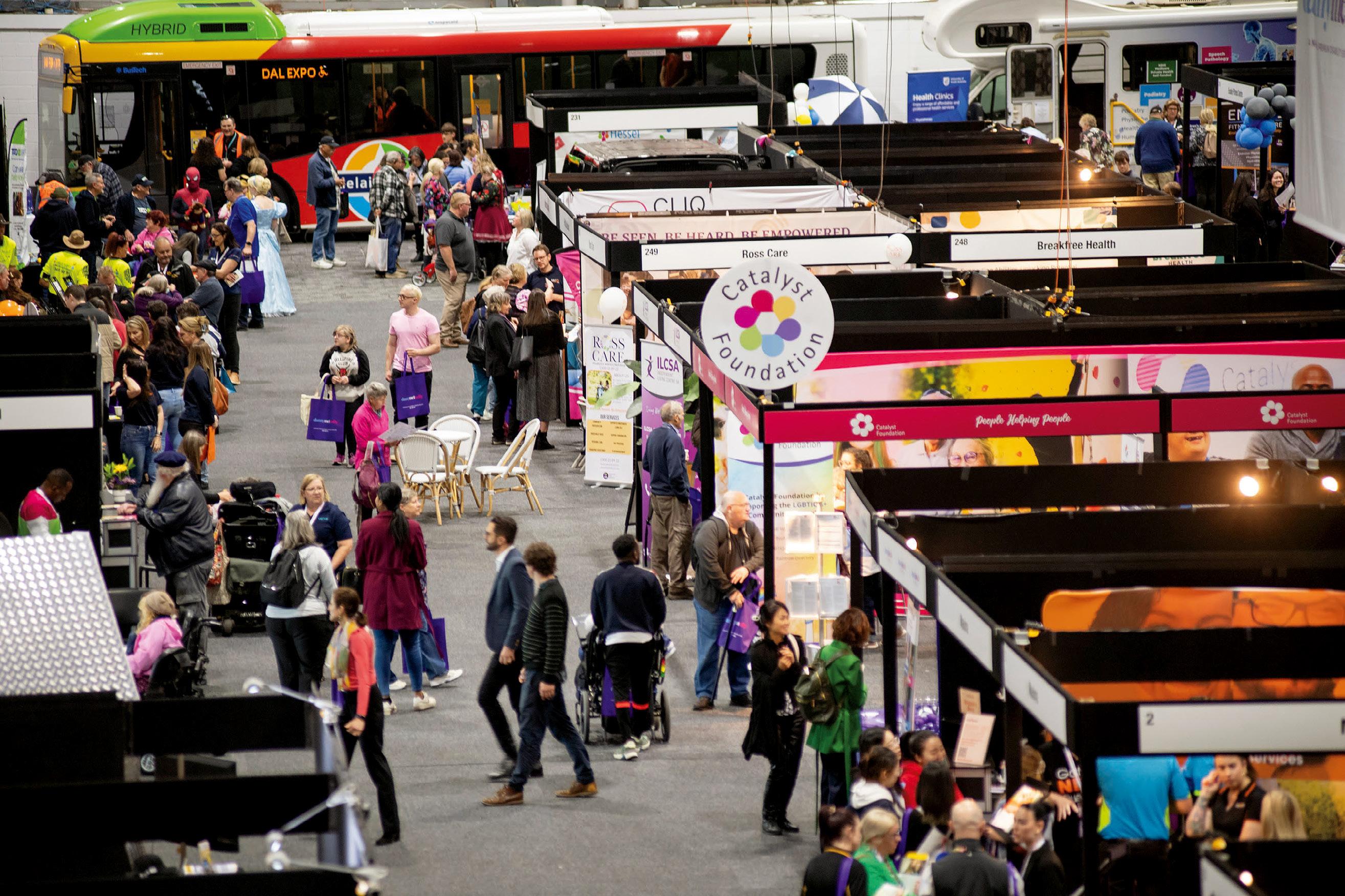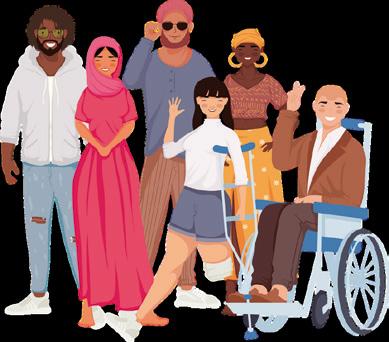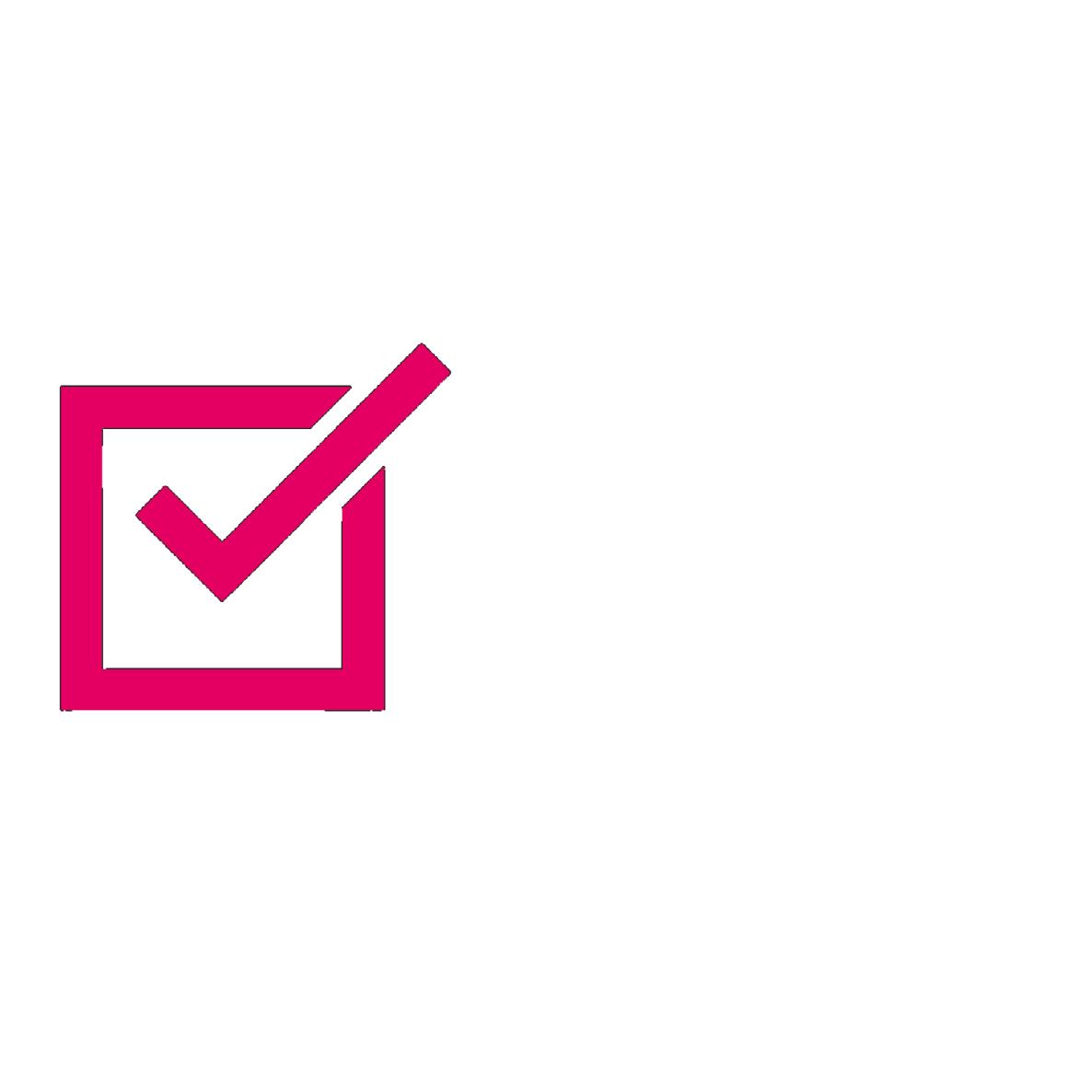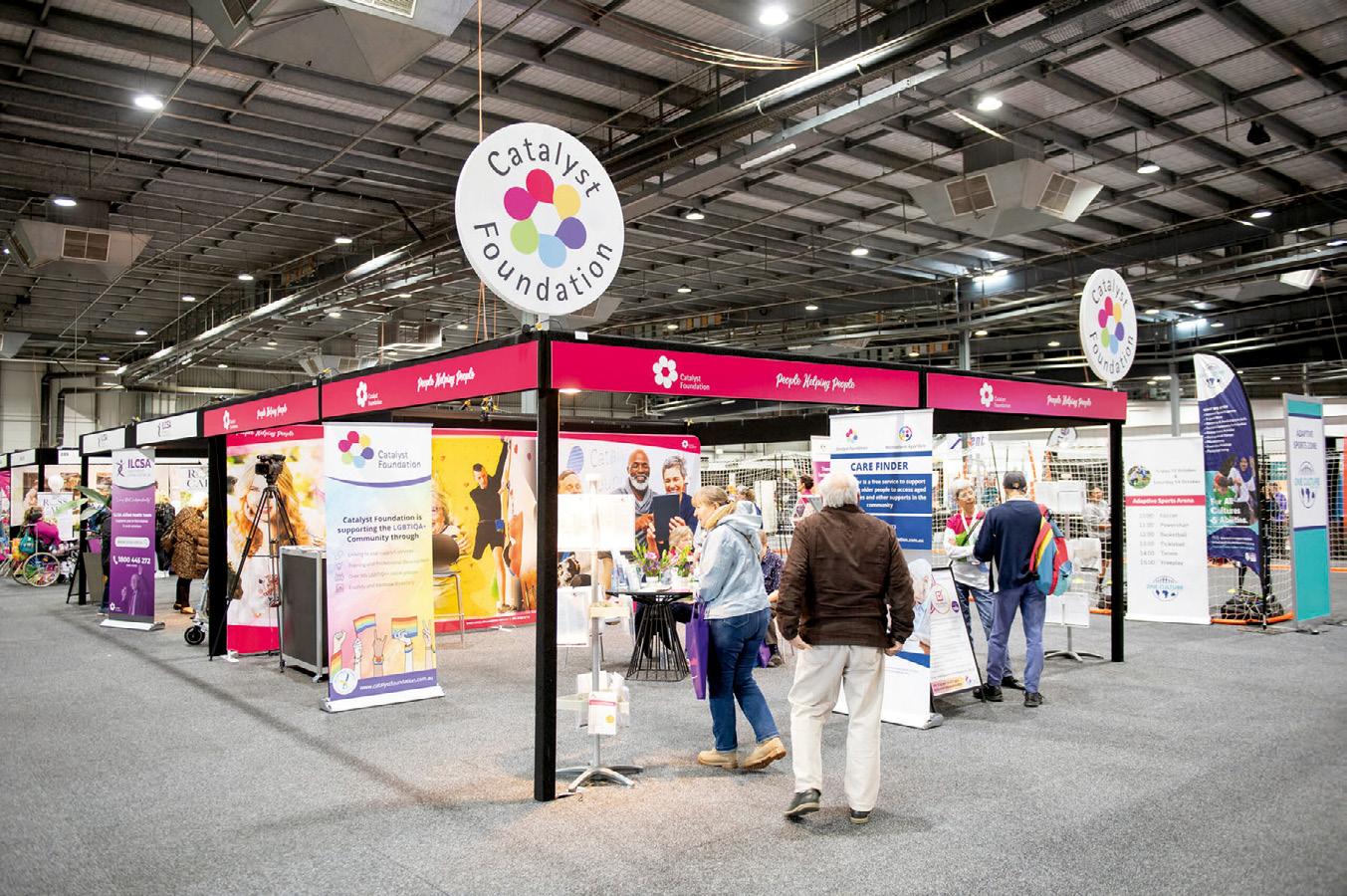Advocating for the disability sector for 45 years
August-September 2025 | Volume 35 Issue 4
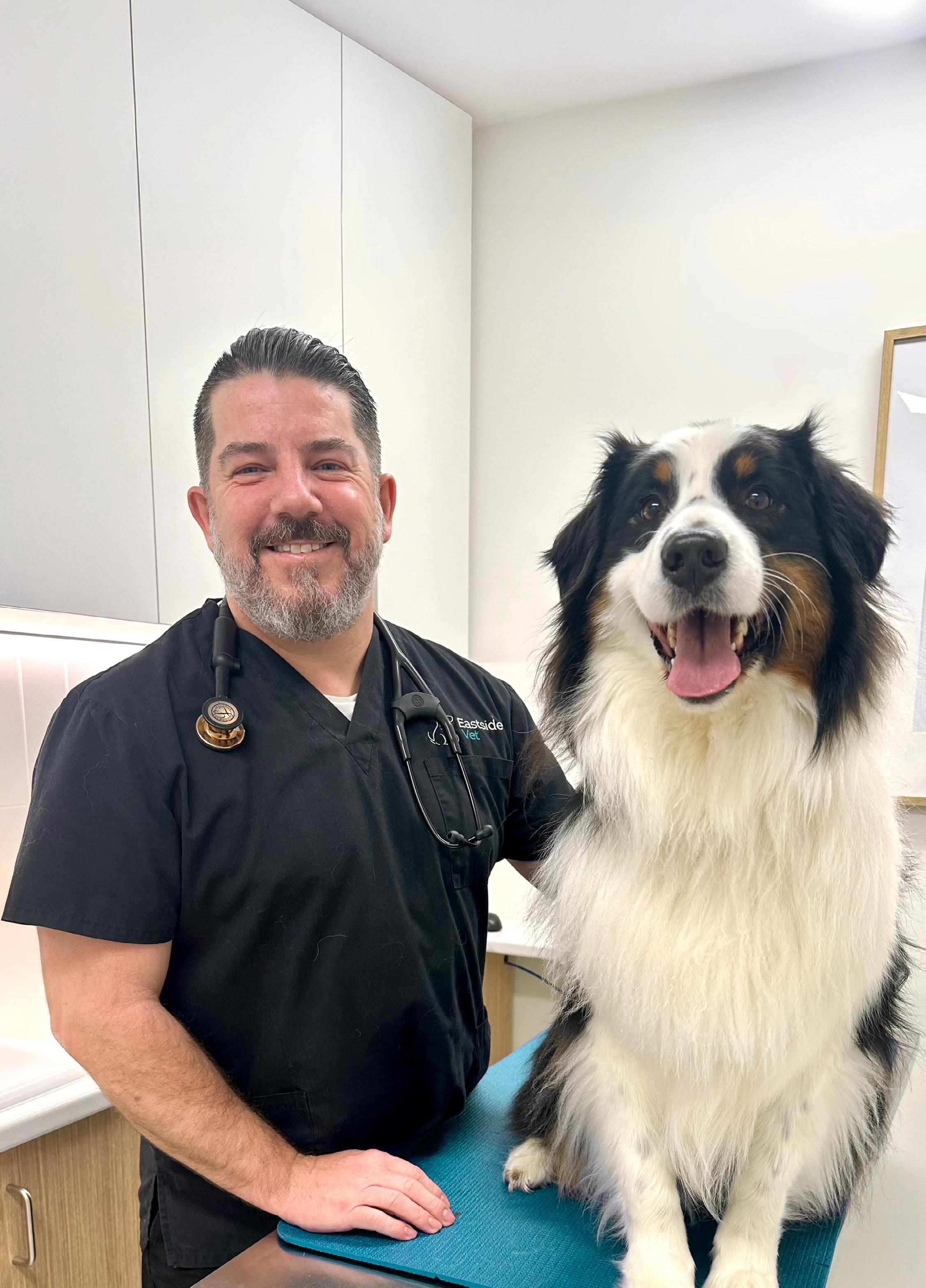

Advocating for the disability sector for 45 years
August-September 2025 | Volume 35 Issue 4

In this issue:
ATSA Expo highlights / Diversity on the catwalk / AT reforms underway / Meet supported employment workers / SDA & history collaborate / Q&A with actor Eduardo
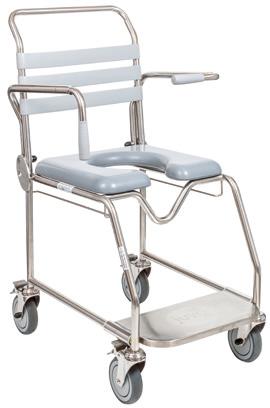
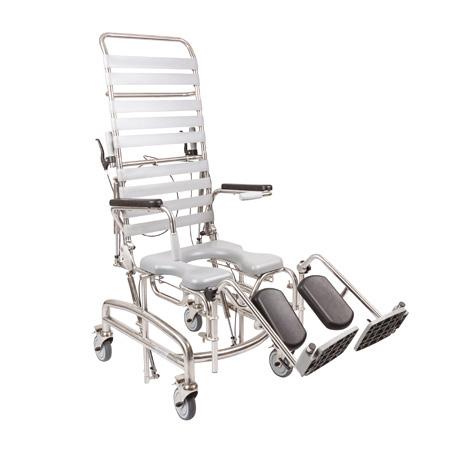
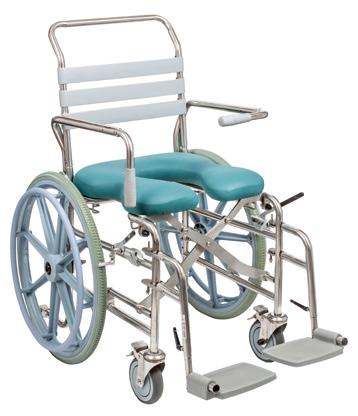

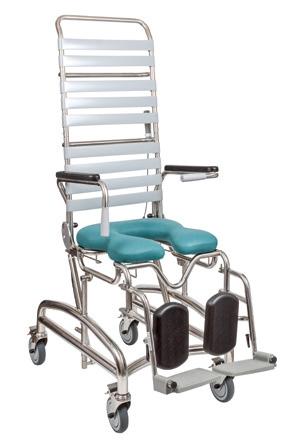
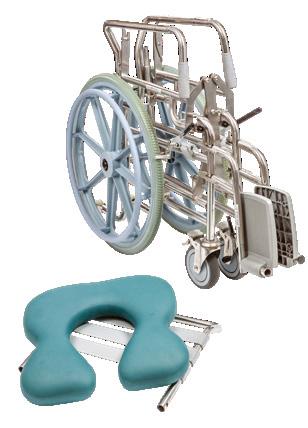


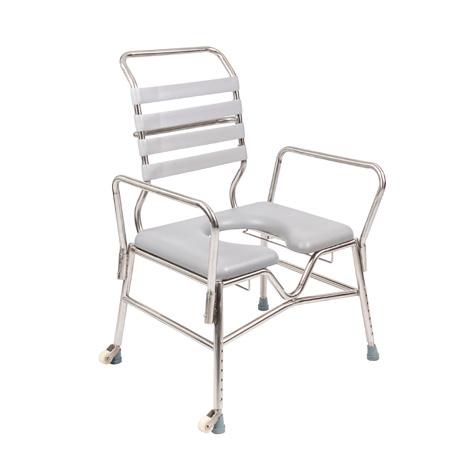
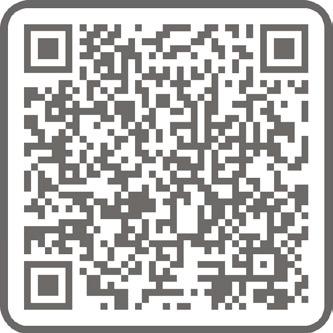
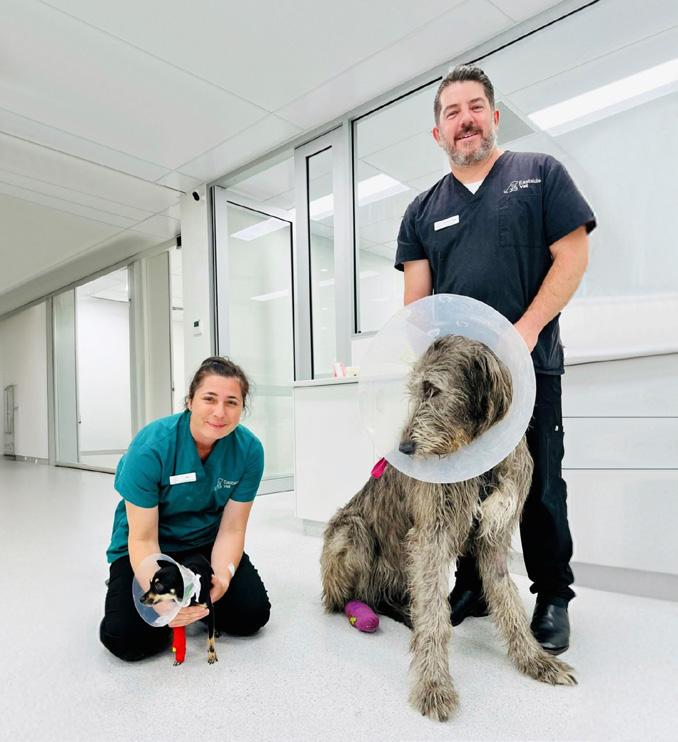

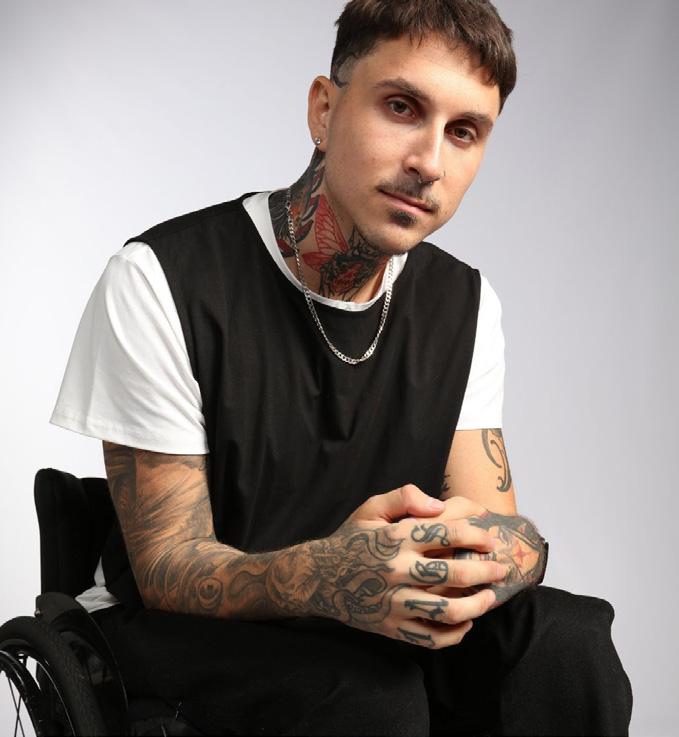
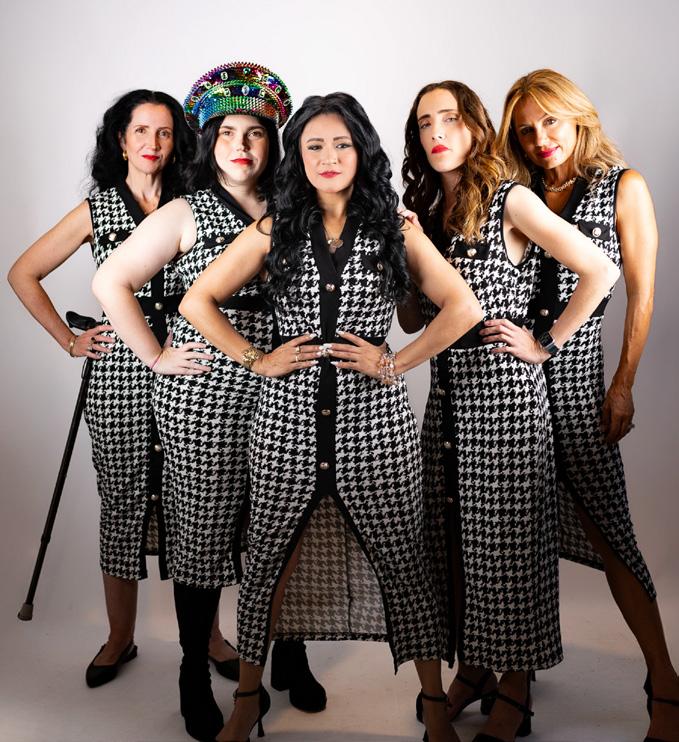
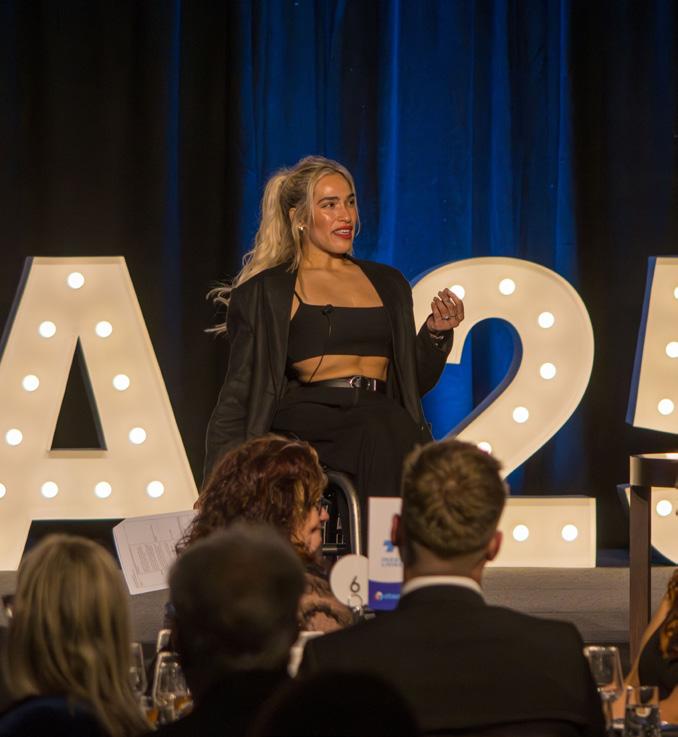

Publisher
Simon Cooper
Editor
Kymberly Martin
kymberly@intermedia.com.au
Advertising
Michelle Stevens mstevens@intermedia.com.au 0419 822 717
Design
Sarah Vella
Prepress
Tony Willson
Production Manager
Jacqui Cooper
Subscribe
To subscribe visit www.intermedia.com.au
P: 1800 651 422 or E: subscriptions@intermedia.com.au www.linkonline.com.au
Link is published six times a year by Interpoint Events Pty Ltd.
ABN: 9810 451 2469
A: 41 Bridge Road, Glebe NSW 2037
P: +61 2 9660 2113
F: +61 2 9660 4419
Reprints from Link are permitted only with the permission of the publisher. In all cases, reprints must be acknowledged as follows: ‘Reprinted with permission from Link Magazine’, and must include the author’s byline.
The opinions expressed in this publication are those of the authors and do not necessarily represent those of the publisher.
The Intermedia Group takes its Corporate and Social Responsibilities seriously and is committed to reducing its impact on the environment. We continuously strive to improve our environmental performance and to initiate additional CSR based projects and activities.
As part of our company policy we ensure that the products and services used in the manufacture of this magazine are sourced from environmentally responsible suppliers. This magazine has been printed on paper produced from sustainably sourced wood and pulp fibre and is accredited under PEFC chain of custody.
PEFC certified wood and paper products come from environmentally appropriate, socially beneficial and economically viable management of forests.
Link is celebrating its 45th anniversary with this issue…which is quite a milestone in publishing. Five years ago, Intermedia acquired the magazine and what incredible years they have been since then. From the gathering of the Covid storm clouds to the ongoing saga around the NDIS and what is shaping up to be delays to the long-awaited foundational supports program.
We have packed many stories into this edition and the high calibre of products in the disability sector are prominent with our coverage of the ATSA Melbourne and Perth expos. Read about the movers and shakers at the Disability Awards, that brings the industry together every year to acknowledge their achievements (pages 44-45).
Another industry event was the Australian Disability Network’s Disability Confidence Awards that recognise organisations and individuals helping to shape the future of disability inclusion (page 59).
And just how far has the disability sector progressed when it comes to advertising and marketing? Has it become simply a box-ticking exercise
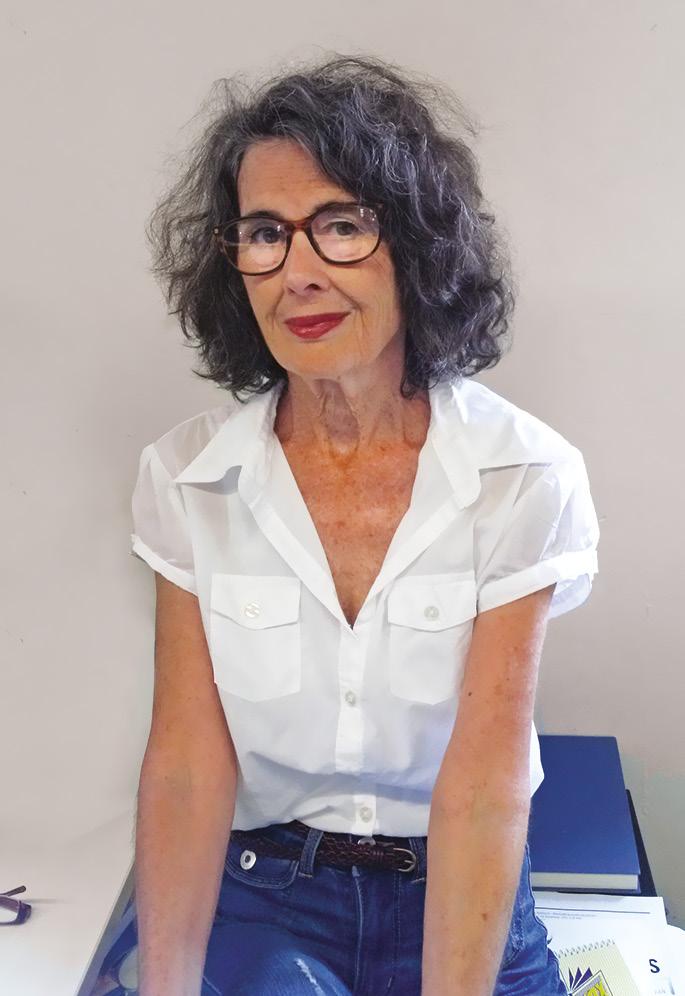
that is falling short of expectations? (page 58).
Our cover story takes you into a veterinary clinic and South Australian vet Alex Harrison’s battles with inclusion and accessibility. (Pictured with Ariel)
Still on dogs! Go to page 62 for our book giveaway – and meet Jemima… one of our four-legged guide dog friends who lives with blind disability advocate Olivia Muscat.
October/November 2025
• Accessible Travel & Tourism
• Personal Care & Equipment
• Education Access & Innovations
Advertising book date: August 22, 2025
Advertising material deadline: August 27, 2025
Publication date: October 1, 2025
For article proposal, contact the Editor: kymberly@intermedia.com.au
For advertising, contact the Advertising Manager: Michelle Stevens 0419 822 717 mstevens@intermedia.com.au
August/September 2025


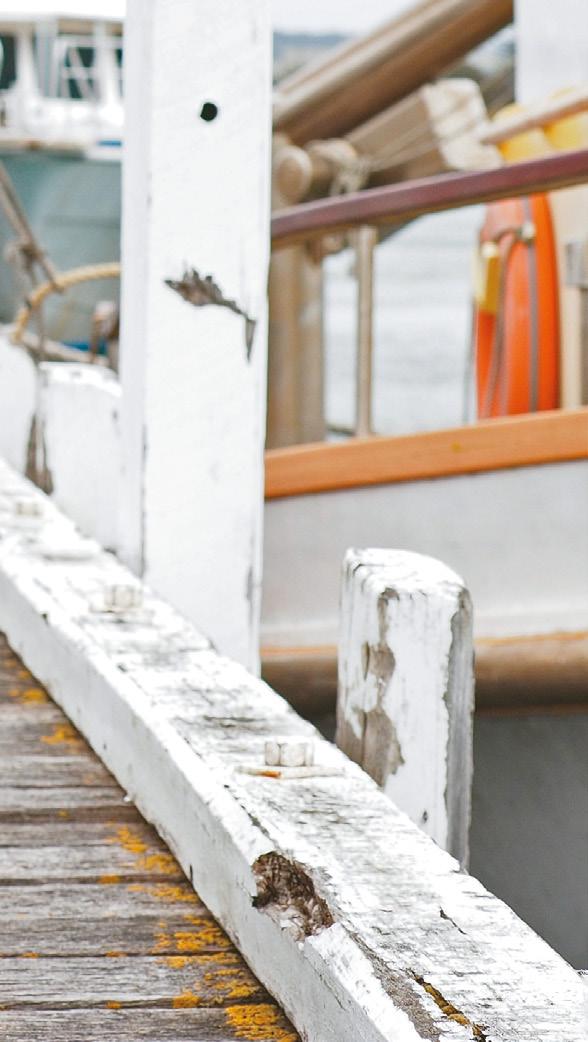
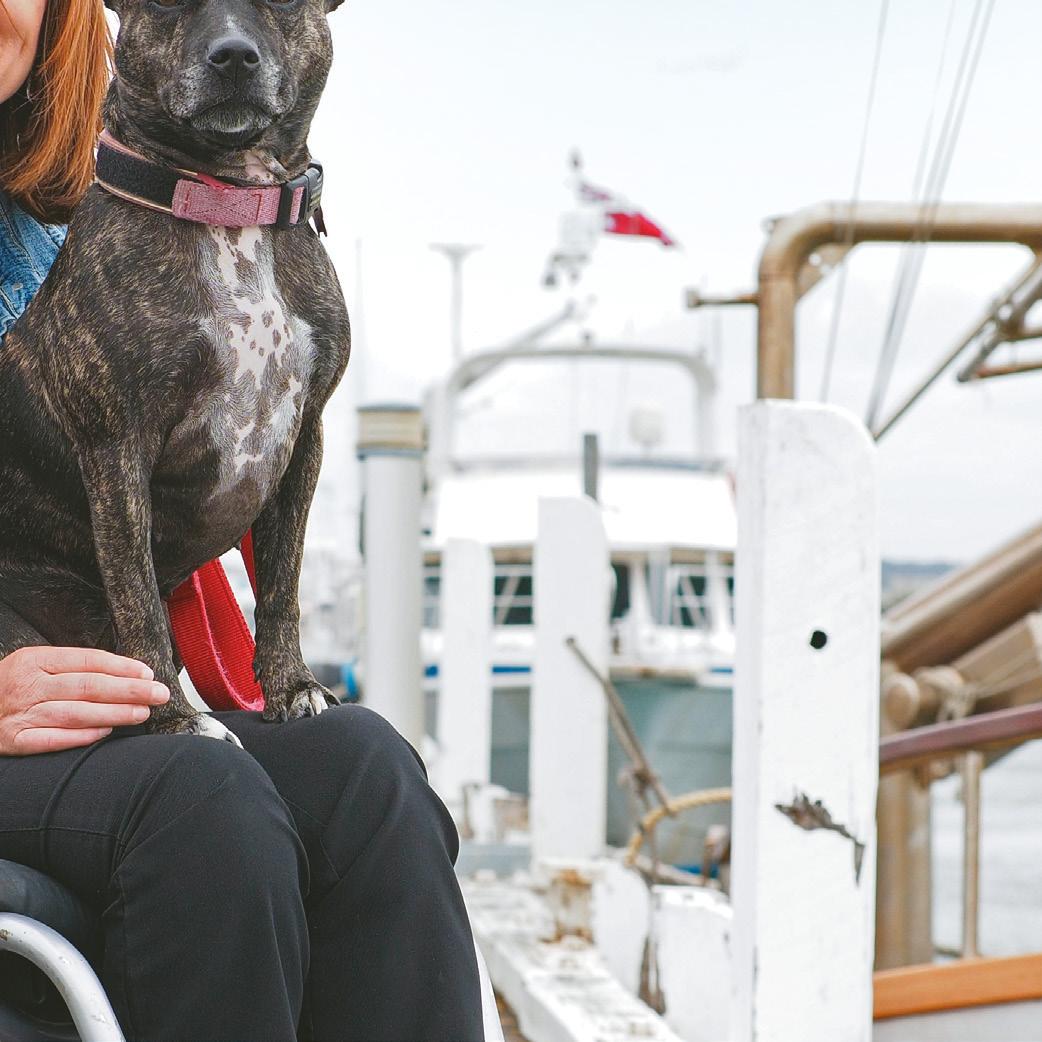
Dr Alex Harrison doesn’t want the next generation of vets to face discrimination for their differences. As the first profoundly deaf veterinarian to join Australia’s vet sector, he’s been through his fair share of microaggressions around his disability.
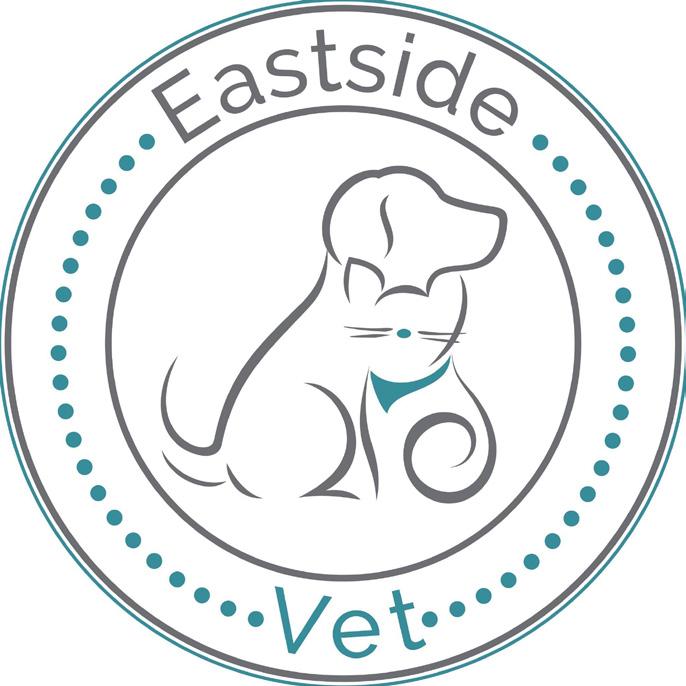
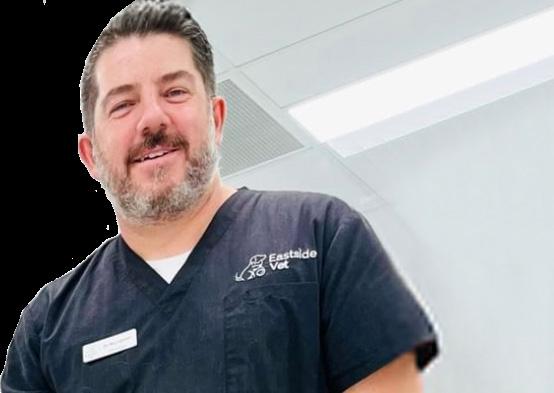

But it has served to motivate him to do something to change the profession he loves, and now the senior veterinarian at Eastside Veterinary Clinic in South Australia is forcing the profession to have the tough conversations about inclusion and accessibility. He spoke to Danielle Kutchel.
Alex Harrison has experienced various microaggressions during his university study that almost caused him to give up his dream of being a vet altogether. This was in addition to the barriers inherent in studying, like note taking during lectures. AI transcribing meant captioning was prohibitively expensive. Harrison knew he couldn’t lip read the lecturer and take notes at the same time, so he would copy the notes of a helpful peer.
Once out on the job, there were more challenges to confront. “I had to deal with how I was going to cope with lip reading in [the operating] theatre,” he said.
He came up with his own solution and would spend two or three hours a week making customised surgical masks.
“I would… [cut] a hole in a normal surgical mask and then put in a window, made from transparent antifog material. I used to make them by hand; they weren’t commercially available back then.”
Many of the tools used in the veterinary profession rely on audio signals. Harrison hunted down electronic stethoscopes that converted the sound waves into a visual format that he could interpret. Lecturers helped him work through the audio library of heart and lung sounds to teach him what their sound waves would look like, as opposed to how they would sound on a scope.
In some ways, Harrison believes graduates these days have things a bit easier - and he has played a part in smoothing the way.
“With the advocacy work that I do, I’m actually a bit of a lightning rod for vets with disabilities, neurodivergence and chronic illness,” Harrison said.
A survey conducted by the Australian Veterinary Association found that
38 per cent of vets have a disability, neurodivergence or chronic illness.
Harrison said that’s not a surprise when you compare that to the general population. Despite this, many vets face the same sorts of barriers that he has when it comes to thriving in their workplace.
He said although there are many ways that vets with disabilities, chronic illnesses or different neurotypes can work in the profession in ways that suit them and the accommodations they need, the profession hasn’t yet “fully grasped that”.
The consequences of inaccessibility in the workplace are all too real for the senior vet, who has experienced them first-hand: and around seven years ago, Harrison burnt out.
He was working a 60-hour-week in the clinic as he sought to develop expertise in every area of animal care, including ultrasonography, chemotherapy, orthopaedics and scanning.
“I had internalised ableism… that was very damaging. I was trying to prove myself so much that I was massively overcompensating,” he said.
The burnout almost caused him to walk away from the profession, but after a period of introspection he felt it was better to stay and make change. He began talking about his mental health with colleagues and found that many of them were struggling too.
“We have a mental health crisis in the profession, and the suicide rate is about four times that of the general population. I’ve spent time trying to raise awareness that our unrealistic expectations of what we can do might be contributing to that, especially if 38 per cent of the profession has disability or chronic illness or neurodivergence,” he said.
“We’re very good at looking after the animal, but sometimes we’re very tough on ourselves and on each other. I’d like to change that.”
That’s where projects like The Veterinary Kaleidoscope come in. Harrison’s involvement came about
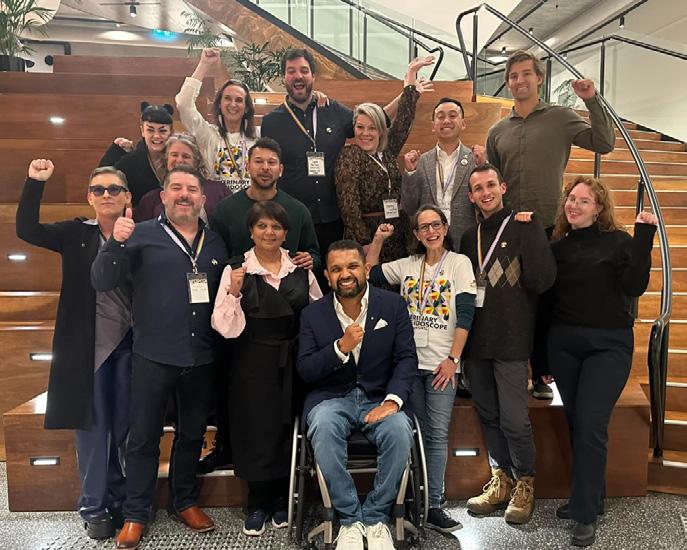
after he appeared on The Veterinary Kaleidoscope podcast, which saw hosts Kate Toyer and Cam Raw interview other vets about their lived experience and diversity, equity and inclusion.
The three quickly realised they could better advocate for change in the profession by combining their efforts.
This led to a focus on intersectionality by joining up vets from the disabled, chronically ill, neurodivergent, Indigenous, LGBTQIA+ and other marginalised communities, which Harrison said has “helped a lot” with their advocacy efforts.
The Veterinary Kaleidoscope now runs an annual summit and speaks with professional bodies about how to create a more supportive profession for vets – including by potentially removing mandatory reporting of disability or chronic illness on annual licence registrations, if deemed ‘detrimental’ to the ability to practice, as this can make people feel stigmatised.
In addition, The Veterinary Kaleidoscope is calling for changes to so-called ‘poverty placements’. A veterinary degree requires up to 52 weeks of unpaid clinical placement in a typical sixyear degree, which has disproportionate impacts on working parents, people with disability and other marginalised cohorts who simply can’t afford to do weeks of unpaid work.
The organisation also reaches out to universities to mentor students and early career graduates who are struggling with marginalised identities.
On top of this, Harrison has now launched his own consultancy, Vetquity. This will tie in with the advocacy work that The Veterinary Kaleidoscope does by offering
the vet profession practical actions it can take to embrace diversity and become more equitable and inclusive.
Earlier in the year, Harrison’s efforts in pushing for systemic change were recognised at the 2025 Australian Veterinary Association Awards, where he was presented with the President’s Award. It was a moment for him to reflect on his 25-year career.
“When I graduated, there was no visibility; there was no representation. The vet world didn’t really know about Deaf or other disabled people,” he told Link
He’s pleased to have played a role in creating space for visibility, so that new entrants to the profession are able to be their true selves in the workplace. While he acknowledged there is still a long way to go, he said newcomers now have some breathing space.
“It’s work that should have been done years ago. These things unfortunately don’t happen overnight, they take time. But I’ve persisted and I’ve stayed when sometimes it would have been easier to walk away. Now, there’s space being made for people to be able to reach out for support.
“I’m proud of the fact that I’ve been able to make the conversation happen. It certainly hasn’t been easy, it’s been tough at times. It can feel like shouting into the void, but I do have a lot of love for the profession,” Harrison said.
Finding a community of other like-minded people who share your experience, as he has through The Veterinary Kaleidoscope, has helped immensely.
For Harrison, people and community are what motivate him – like seeing the newly connected community of vets from traditionally marginalised or vulnerable backgrounds come together and flourish.
With such strong connections, he believes positive change for the benefit of all vets is only a matter of time.
“I do have a lot of hope for the profession. There are a lot of good people in it,” he said.
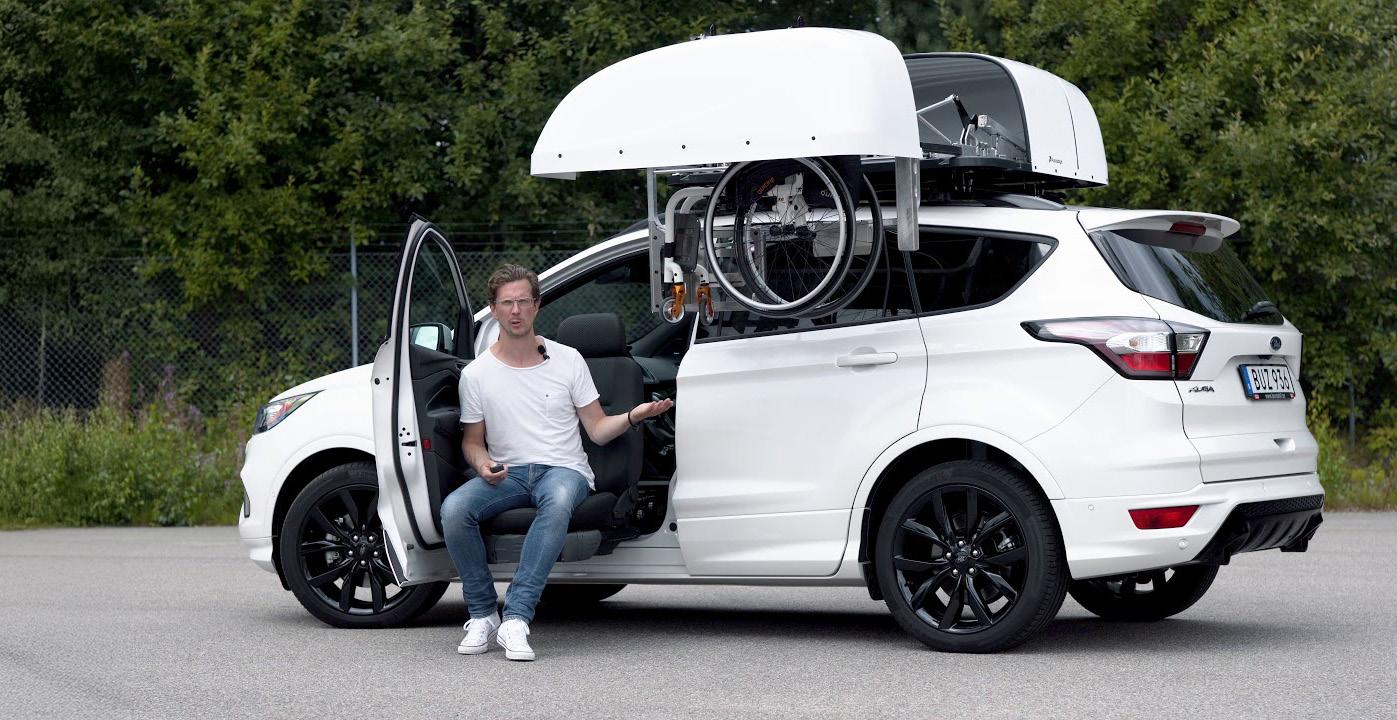
For thousands of Australians living with limited mobility, everyday travel can be a daunting challenge. Getting in and out of a vehicle or transporting essential mobility equipment often means relying on others—or not going at all. Freedom Motors Australia is working to change that.
With decades of experience in vehicle modifications and mobility solutions, Freedom Motors Australia provides custom modifications designed to restore independence and freedom of movement.
Getting in and out of a car is one of the most significant barriers for people with mobility limitations. Freedom Motors offers a range of access solutions that make this process safer and smoother.
The Turny Evo is a fully automatic, programmable swivel car seat that extends outside the vehicle to assist with transfers. Operated by remote control, it lifts the occupant into position using a customisable sequence of movements tailored to each individual’s body mechanics and
range of motion. This ensures optimal comfort, leg space, and safety during every use.
The IBIS Hoist is a removable, powerassisted device that helps people with limited mobility enter a vehicle without the need for permanent modifications. It attaches to the door hinges of most cars and operates via push-button control, powered by the vehicle’s 12-volt outlet. With assistance from a carer or companion, users can transition from a wheelchair to a car seat smoothly and without manual lifting.
For many individuals, transporting mobility equipment such as wheelchairs or scooters is a daily necessity. Freedom Motors installs systems that eliminate the physical strain of loading and unloading heavy devices.
The Autochair Smart Lifter is a hoist that lifts wheelchairs, powerchairs, or scooters into the boot of a vehicle at the push of a button. Available in three models to accommodate different weights and sizes, the Smart Lifter is compatible with most cars if the boot opens wide enough to fit the device.
The Chair Topper is another innovative solution that stores a folding wheelchair in a weatherproof rooftop box. Controlled by remote, the Chair Topper takes just 30 seconds to load or retrieve a wheelchair, making it an ideal option for independent drivers or passengers. It mounts on standard roof racks and requires no permanent vehicle modifications, while preserving valuable interior space.
The Chariot Lift offers a unique way to transport power wheelchairs and scooters—without requiring any modifications to the towing vehicle. It is a fully suspended trailer that supports the full weight of the mobility device, with a capacity of up to 159 kg. The Chariot’s independent suspension ensures that it remains level, even on uneven terrain, providing a smooth and stable ride. A self-lowering ramp allows for effortless loading and unloading, and its compact design makes it easy to store when not in use.
What sets Freedom Motors Australia apart is its commitment to personalised service. Every vehicle modification is tailored to the user’s specific needs, lifestyle, and goals.
The experienced team collaborates closely with clients, occupational therapists, and funding bodies like the NDIS to develop practical, long-lasting solutions that genuinely improve quality of life.
“Our customers often tell us their lives have completely changed. They can go where they want, when they want. That’s the difference we aim to make— to deliver freedom.”
To learn about the various products we can install or book a demonstration, visit freedommotorsaustralia.com.au or call 1800 672 437
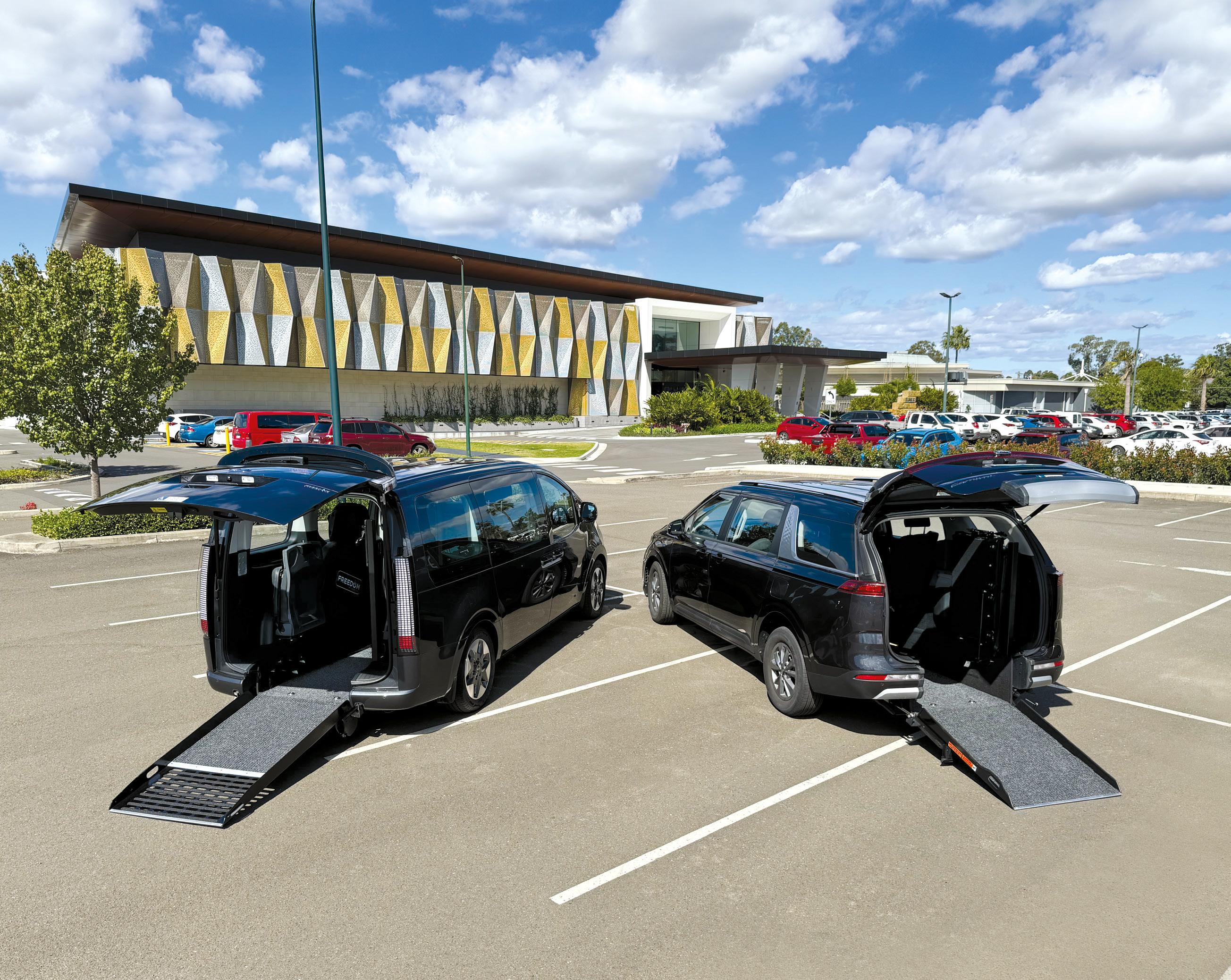




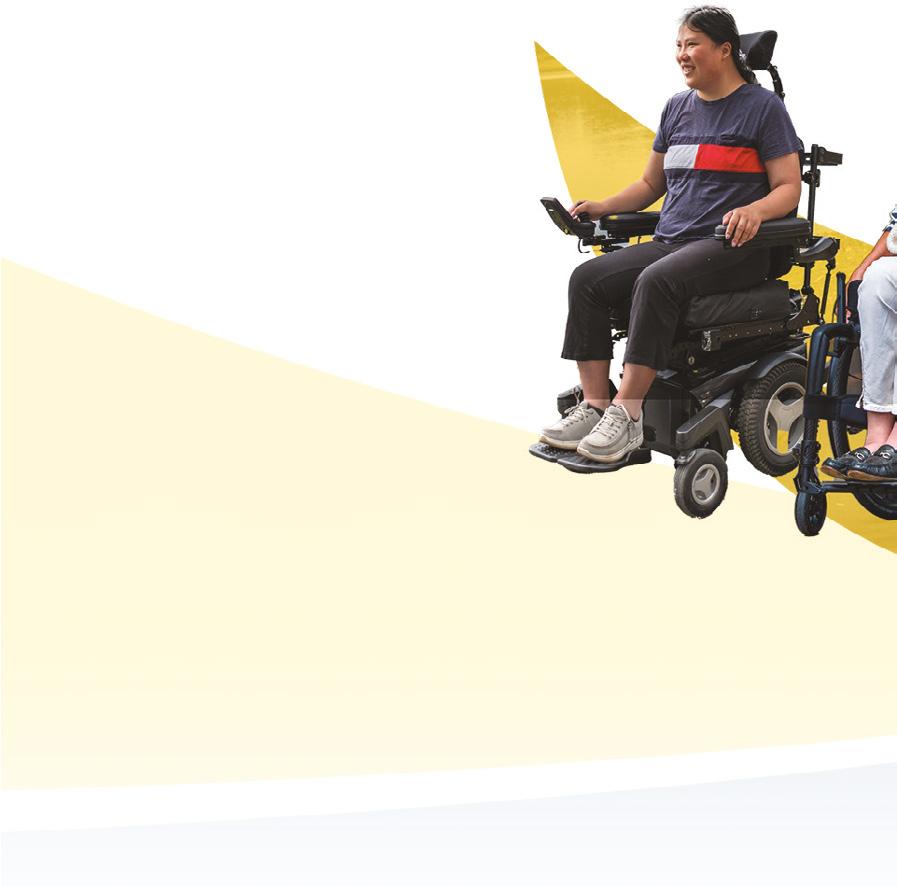

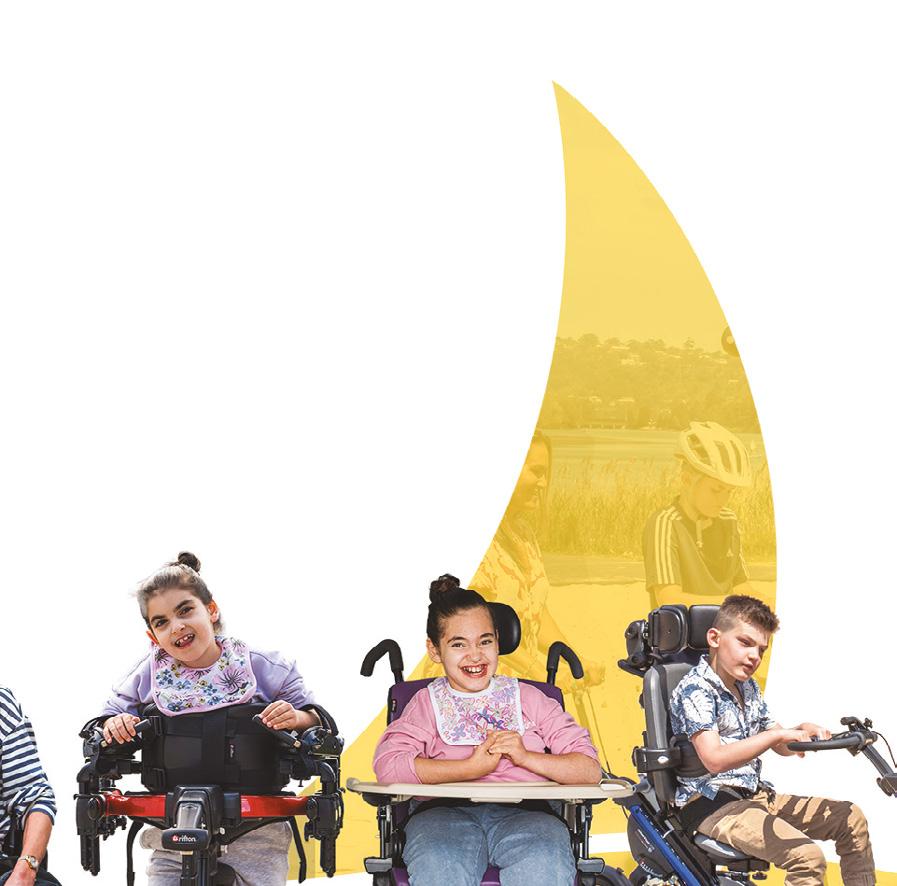
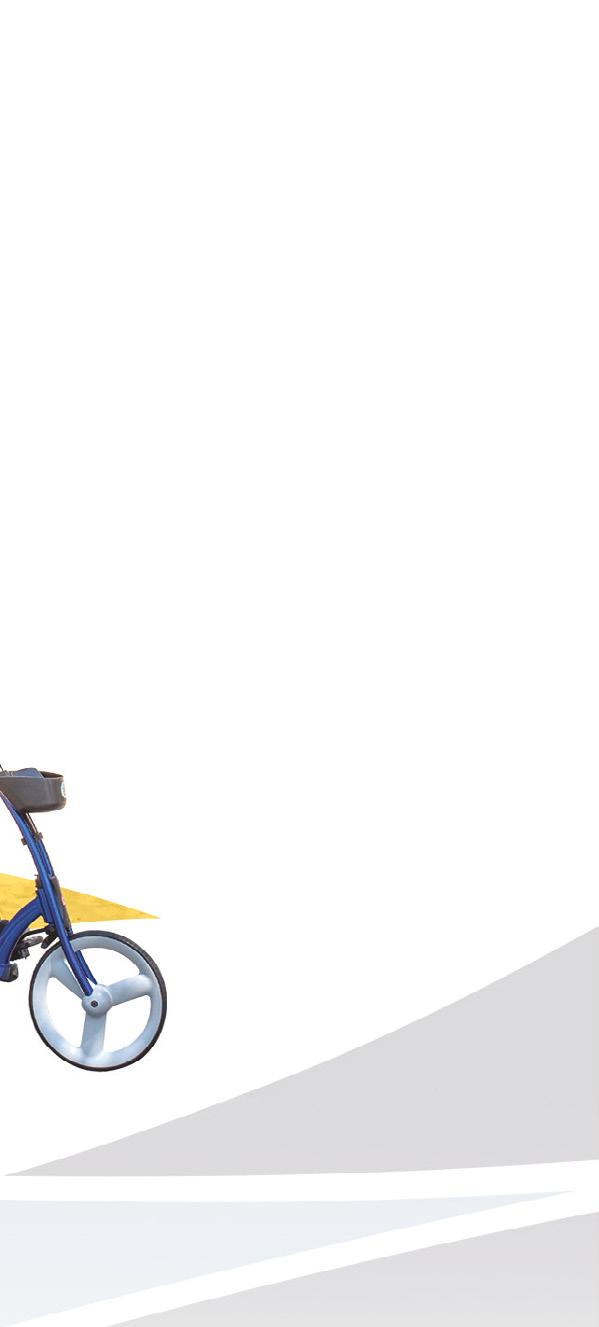
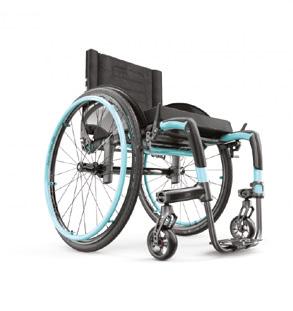



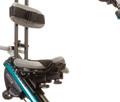
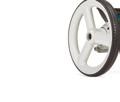
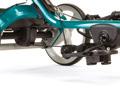
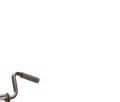
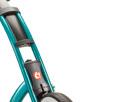
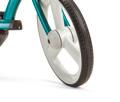


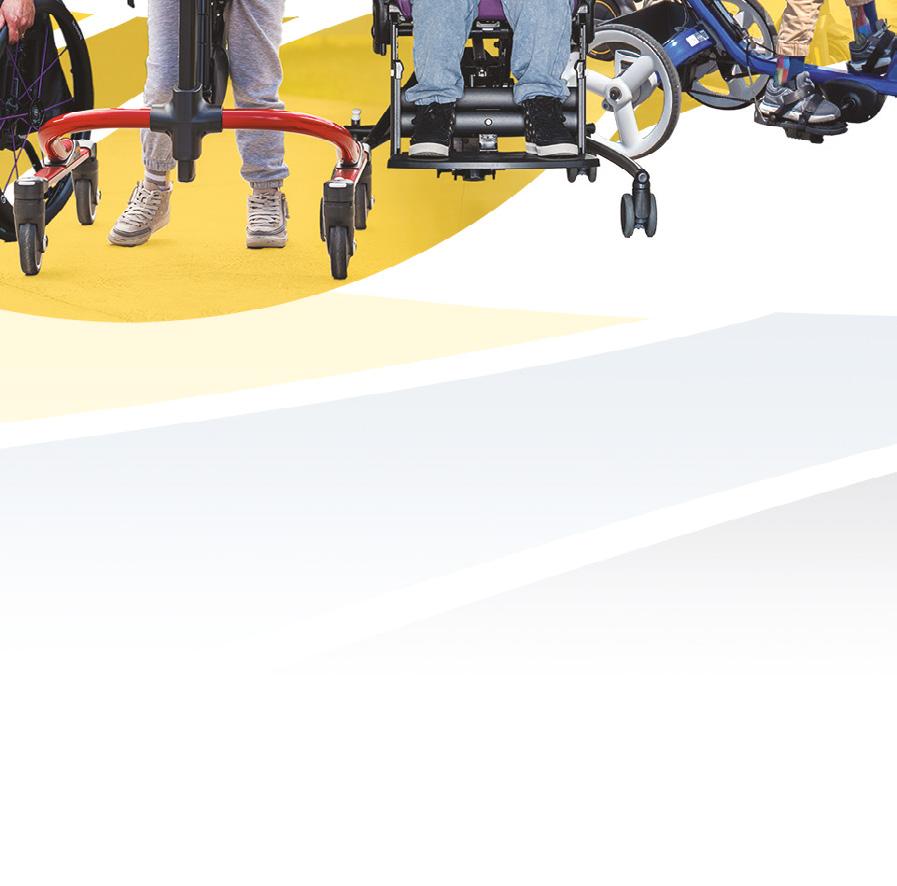

Astris PME is now supporting more Australians than ever. With new branches recently opened in Launceston, Perth, Bundaberg, and Melbourne, we’re bringing our trusted expertise and tailored Assistive Technology solutions to even more communities across the country. We work closely with therapists to achieve the best outcomes for people of all ages and abilities. With an extensive range of trial equipment available, we make it easier to find the perfect solution for comfort, mobility, and independence.


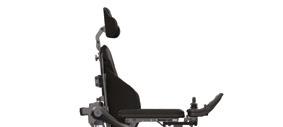
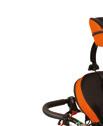
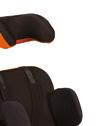

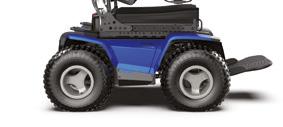
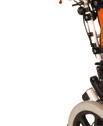
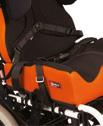
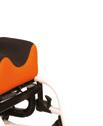

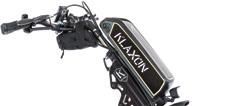

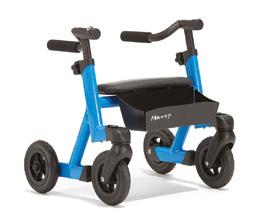
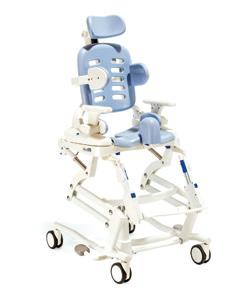


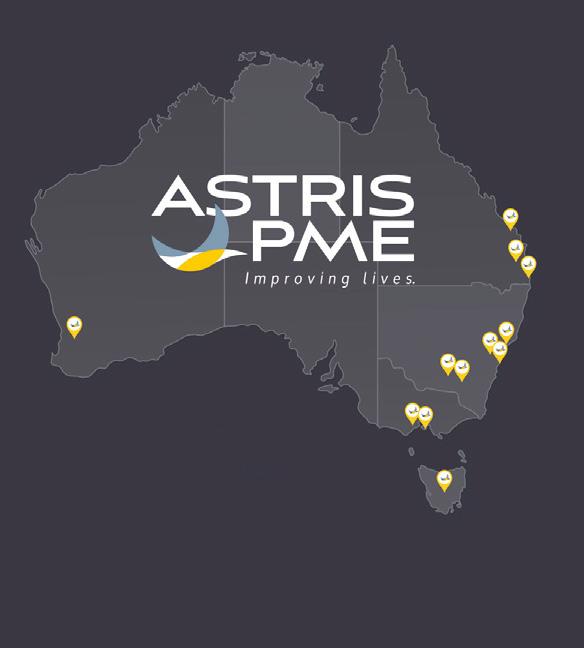
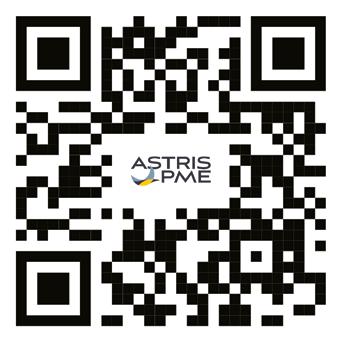
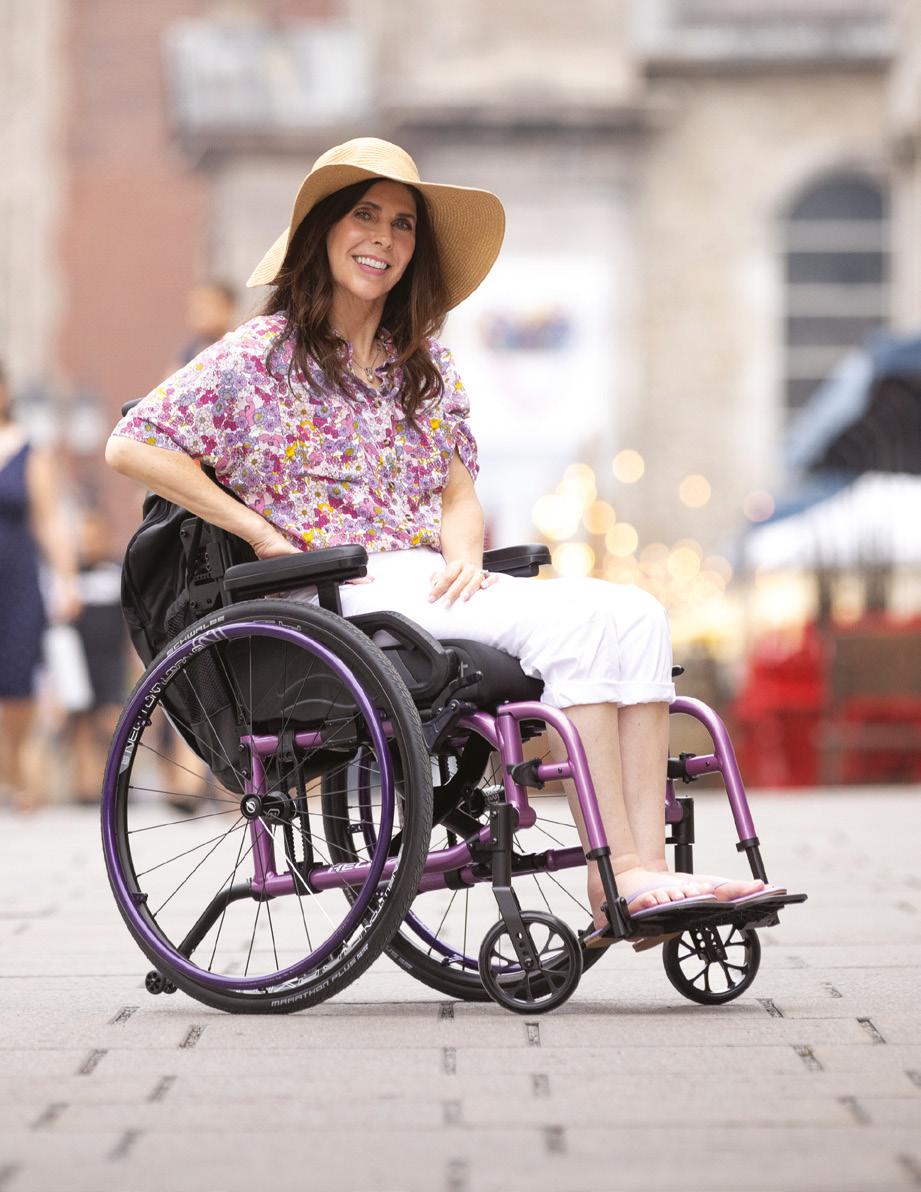








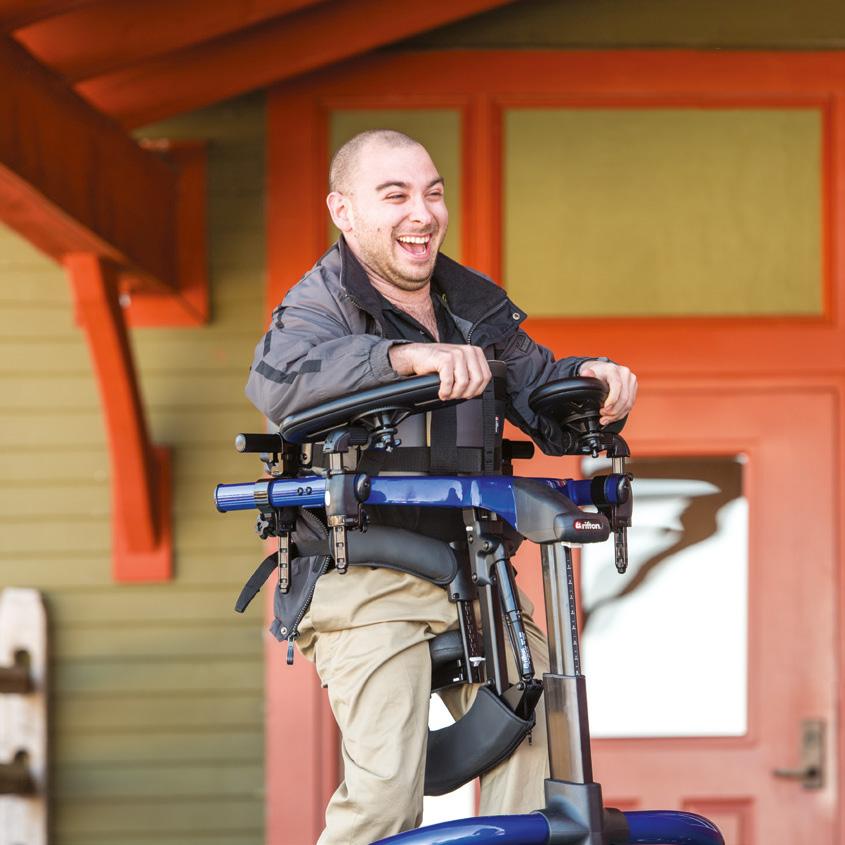
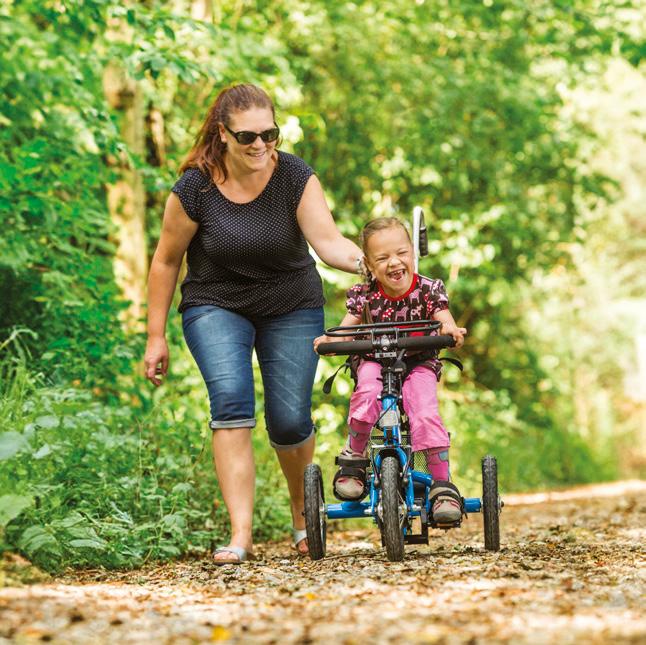

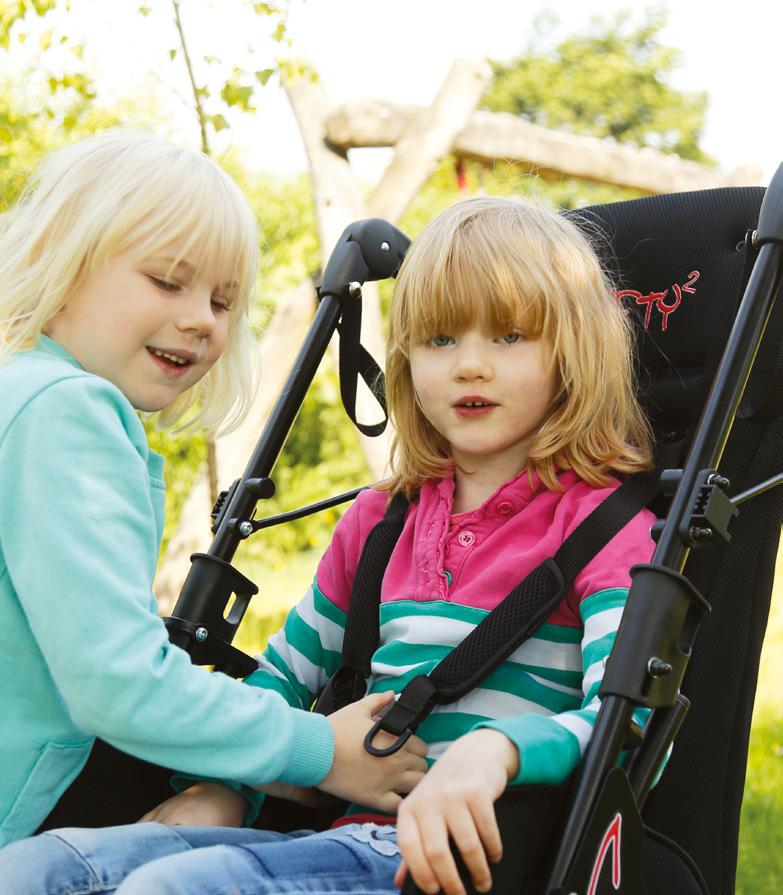
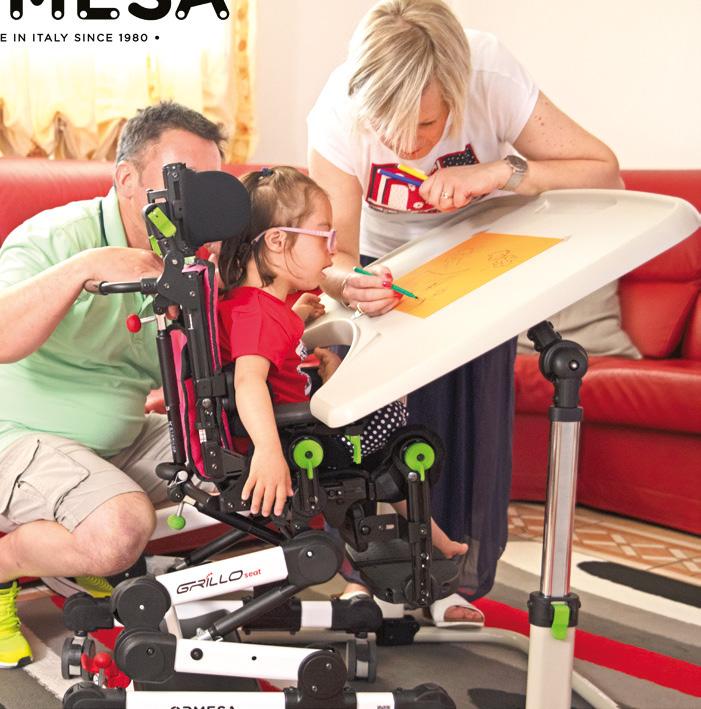





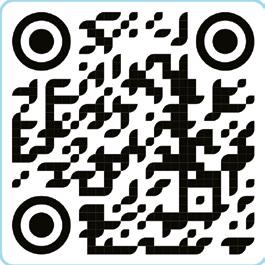


The National Disability Insurance Scheme (NDIS) is undergoing one of its most significant transformations since its inception. With the passage of the Getting the NDIS Back on Track No. 1 Act in 2024 and the introduction of new rules such as “Supports for Participants” and Section 33 on funding periods, the disability sector is being asked to rethink the way we work, and fast.
At ATSA Melbourne, our seminar room was standing room only, a clear sign that the profession is hungry for clarity. The mood? A mix of frustration, concern, and determination. While the intention behind these reforms is to improve the sustainability of the scheme, they’re already generating confusion and, in some cases, unintended consequences.
One major shift is the new definition of what constitutes an “NDIS support.” Under the updated Section 10 rules, many items that OTs previously recommended to address functional limitations such as low-cost, effective tools like standard kitchen aids, smartwatches for safety or communication, or even electric can openers, are now considered “not an NDIS support.” These are not simply lifestyle upgrades; they’re practical, enabling tools that can reduce the need for paid support.
What’s more concerning is that when these cost-effective items are removed from the scheme, the “replacement” pathway often leads to higher-cost alternatives. For example, removing a $250 food processor that would have allowed a participant to prepare meals independently could mean introducing a support worker instead.
At approximately $60/ hour, this amounts to
$120 per fortnight or $3,120 annually. A $250 solution was replaced with a support that costs over twelve times more per year.
This example reflects a broader trend. As therapists, we are now required to complete additional documentation such as the Replacement Support Form for items previously approved without issue. Once submitted, these requests can sit in limbo with participants and providers alike waiting for approvals with no guarantee of outcome. And if declined, the rules stipulate a 12-month wait before the same support can be requested again, with no review mechanism available in the interim.
Meanwhile, Section 33 introduces new time-based funding components within plans. Funding is now released in segments, often quarterly rather than as a full plan budget. This has a direct impact on front-loaded work such as AT assessments, Trials, or home modification scoping. If the first quarter’s allocation doesn’t cover the work, the claim may be rejected, even if sufficient funding exists across the entire plan.
It’s a reality that OTs in particular are grappling with. We’re having to break up interventions into stages that align with funding periods and not function, potentially reducing the quality and responsiveness of our work. Service agreements and billing practices are being overhauled just to keep up.
The NDIA has been clear: sustainability is key. But in focusing so intently on immediate cost containment, we risk missing the bigger picture. A support might not meet a narrowly defined rule today but what is the cost of not funding it tomorrow? If an excluded item would have supported greater independence, reduced long-term reliance on support workers, or delayed entry to more intensive care settings, the financial and human cost would far outweigh the original price tag.
In our rush to “get the NDIS back on track,” we must be careful not to derail the core purpose of the scheme: to provide people with disabilities the reasonable and necessary supports they need to live ordinary lives. Rules like Section 10 and Section 33 must be implemented with a full understanding of their ripple effects - on providers, participants, and the scheme itself.
Let’s not lose sight of what this scheme was built for: empowering people with disabilities to live ordinary, meaningful lives. The cost of getting that wrong could be far greater than we think.
By Sarah Collison*
*Sarah Collison, occupational therapist, director Verve OT.
My Future, My Choice Disability Expos
My Future, My Choice Disability Expos are more than just events—they’re empowering spaces that open doors, spark connections, and provide vital access to information, services, and opportunities. For individuals with disability, their families, carers and support networks, the expos are a one-stop shop for everything from assistive technology to inclusive education, employment options, and community programs.
One of the most valuable aspects of these expo’s is the chance to connect face-to-face with a wide range of service providers. Navigating the NDIS or finding the right support can be overwhelming, especially when done
online or over the phone. The expos remove that barrier by offering realtime conversations, and the chance to ask questions and get answers on the spot.
Families and carers gain a huge amount from attending too. Whether it’s discovering new therapies, finding out about respite options, or simply learning from others on a similar journey, the collective knowledge and shared experience can be both reassuring and inspiring.
There’s also an employment focus at the Sydney and Canberra Expos – WorkAbility - with open employers showcasing inclusive job opportunities and recruitment support. It’s a powerful reminder that the disability community
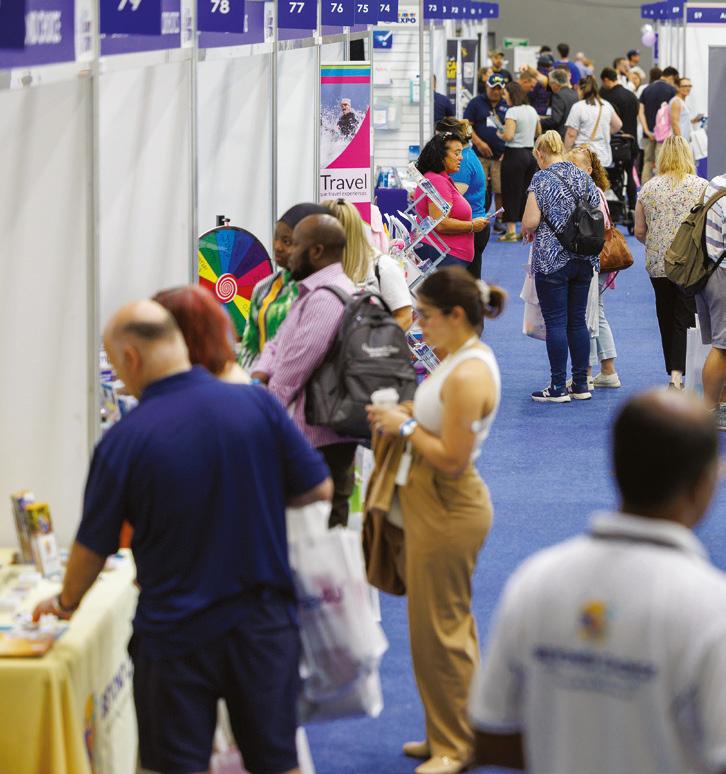
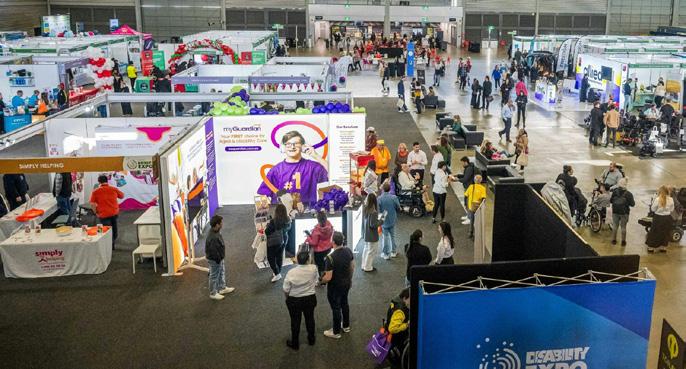
has so much talent to offer—and that more workplaces are embracing diversity and accessibility.
Come and join us for one of our Disability Expos…We can’t wait to welcome you.
Sydney Disability & WorkAbility Expo August 8 -9; Canberra Disability & WorkAbility Expo September 12-13; Brisbane Disability Expo October 31 – November 1; Melbourne Disability Expo November 21-22, 2025.
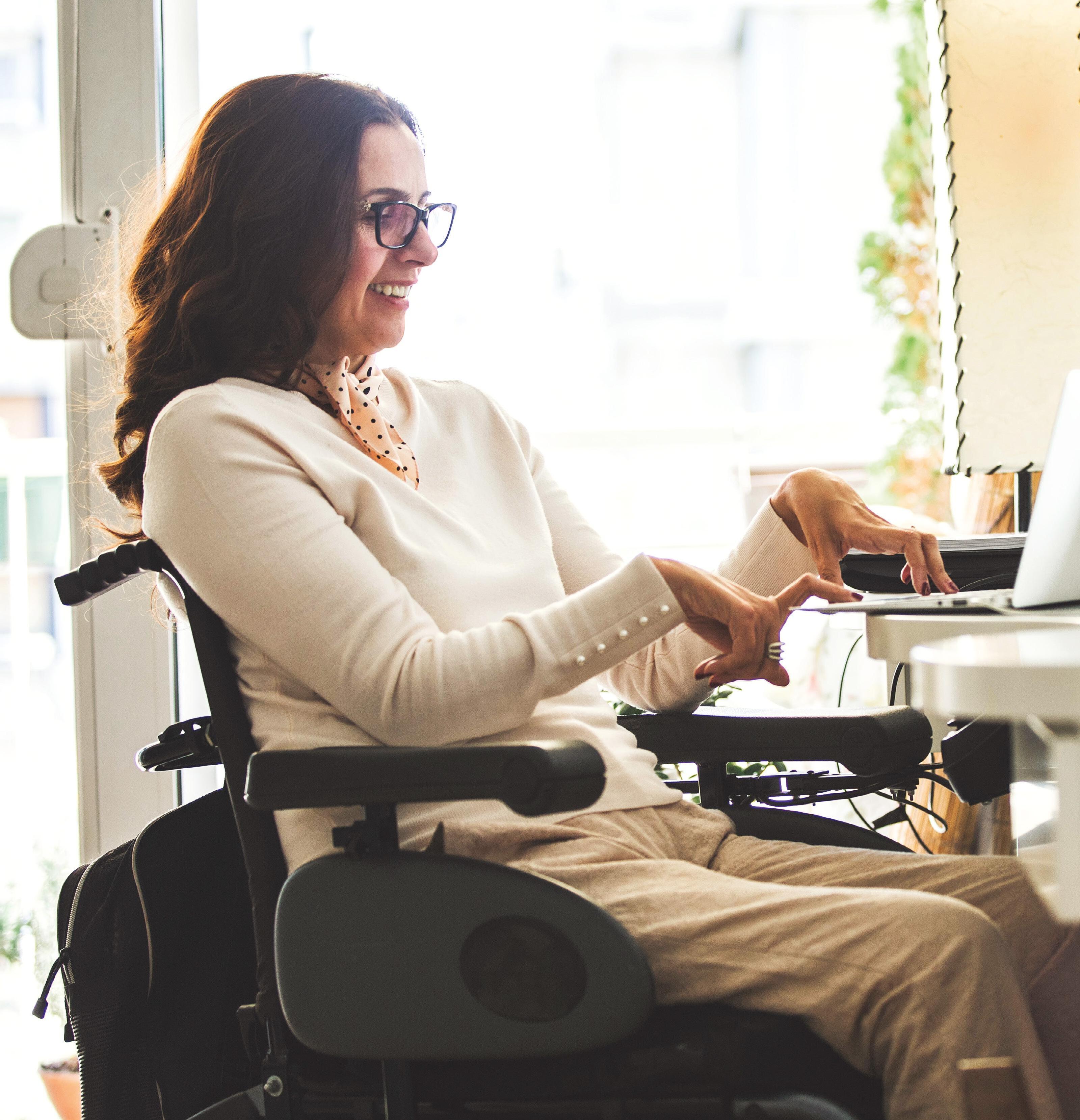

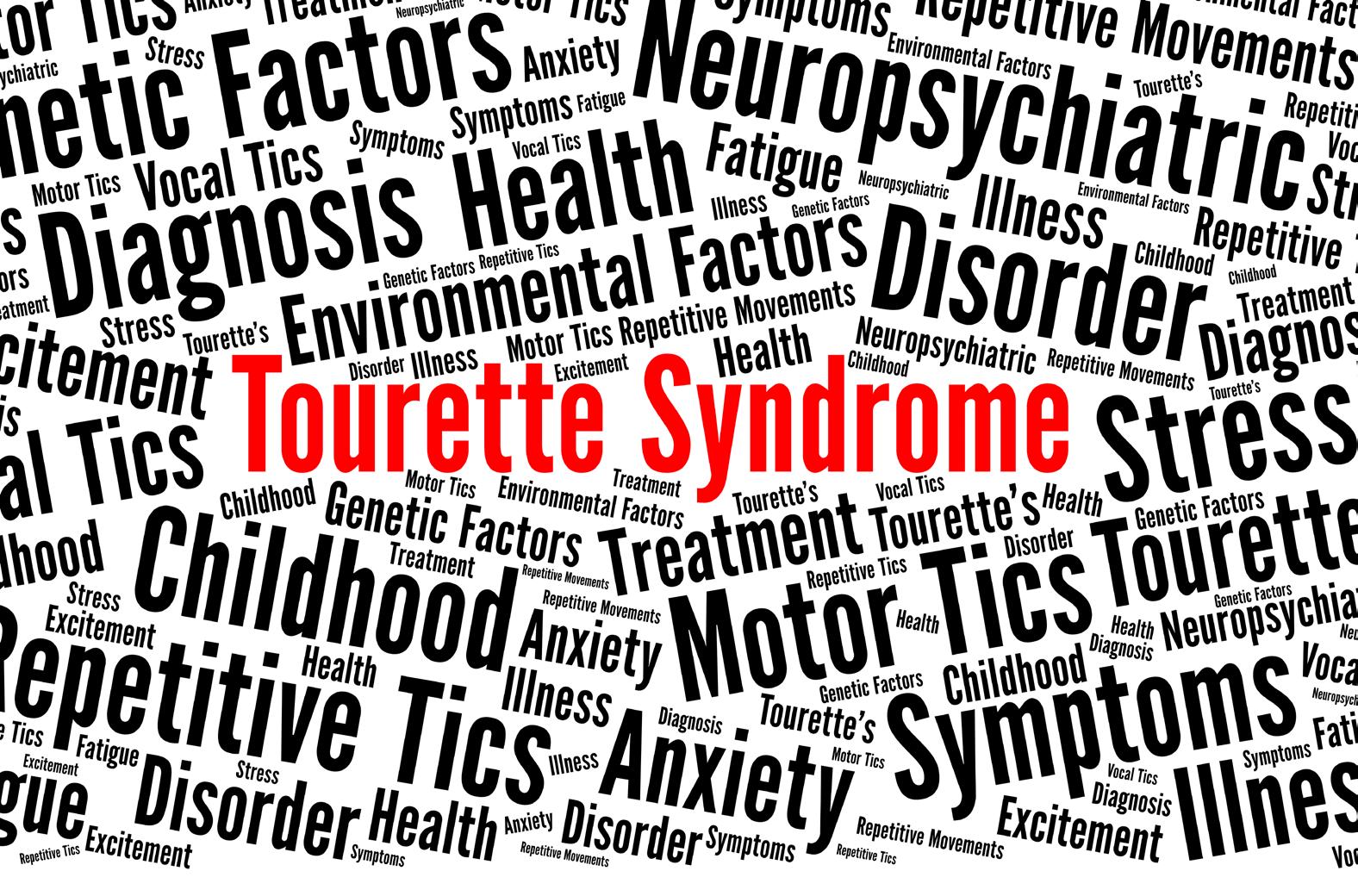
By Olivia Karaolis
Arecent study, The Impact for Tourette’s,* co-designed with individuals living with Tourette Syndrome and led by Dr. Melissa Licari (Research Officer, The Kids Research Institute Australia; University of New South Wales) and Professor Valsamma Eapen (Chair of Infant, Child and Adolescent Psychiatry, University of New South Wales), sheds light on the lived experiences of people with this condition and provides insights to improve their quality of life.
Gilles de la Tourette syndrome (commonly known as Tourette’s) is a neurological disorder characterised by involuntary, repetitive movements and vocalisations known as ‘tics’. These are broadly classified as either motor or vocal tics. Contrary to common misconceptions, only around 10 per cent of people with Tourette’s exhibit coprolalia—the use of obscene or inappropriate language. More frequently, individuals experience tics such as blinking, grimacing, sniffing, throat clearing or body
twitches. They may shout out words or sounds repetitively.
Jess Thom, co-founder of Tourette’s Hero, said that tics are spontaneous and do not reflect a person’s inner thoughts or emotions. Individuals are aware of their tics but cannot control or suppress them.
Tourette syndrome is typically diagnosed by a healthcare professional such as a neurologist, paediatrician, or psychiatrist. As symptoms vary widely between individuals, diagnosis can be complex. A key criterion includes the presence of both motor and vocal tics for a minimum of 12 months.
The Impact for Tourette’s study (Licari et al., 2025) reports the average age of tic onset as 6.1 years. Caregivers usually seek medical advice when the child is around 7.7 years old, with formal diagnosis occurring at an average age of 8.9 years. However, the journey to diagnosis can be prolonged—41 per cent of children were diagnosed within
12 months of seeking help, 33 per cent within 1–2 years, and 26 per cent after more than 2 years. For adults, the diagnostic process can be even more delayed.
One young participant recalled: “I remember when all my tics started and the GP told me to try and be calm... that my tics were just anxiety and to listen to music, be calm, and do meditation.”
Despite two-thirds of respondents reporting that tics significantly disrupted their daily lives—including education and mental health—many families face considerable challenges accessing support. There remains a lack of targeted services, including funding for therapy, resources for families and professional development for educators.
This report is a vital step toward improving outcomes for children and young people with Tourette’s Syndrome. It advocates for greater awareness, earlier diagnosis, betterinformed professionals, and increased understanding of this frequently misunderstood condition.
More information can be found at Tourette Syndrome Association of Australia.
*Licari, M.K., Eapen, V., McQueen, M.C., and the Impact for Tourette’s Team. (2025). National Survey Evaluating the Impact of Tourette’s Syndrome and Tic Disorders in Australia: Summary of Results. The Kids Research Institute Australia, Perth, Western Australia.
For more information go to: touretteshero.com
Dr Olivia Karaolis, lecturer, Special and Inclusive Education, University of Sydney.
Bernie joined Aspect Adult Community Services (ACS) St Albans centre in 2021. From the beginning, her happy personality stood out. She’s talkative, expressive, and quick to smile, but can experience high levels of anxiety, especially when she feels misunderstood. When Bernie first joined, she was reluctant to be involved in activities in the community.
“She wouldn’t even go outside,” said Andrew Smith, team leader at Aspect ACS. “By working with Bernie and focusing on her personal goals and interests, our team has supported her to better express herself and communicate how she’s feeling.”
The team implemented a checklist that included visual supports to aid understanding. A consistent and predictable environment, supported by unified language across staff, helped Bernie feel safe and confident. The team also developed strategies to assist Bernie when she fixates,
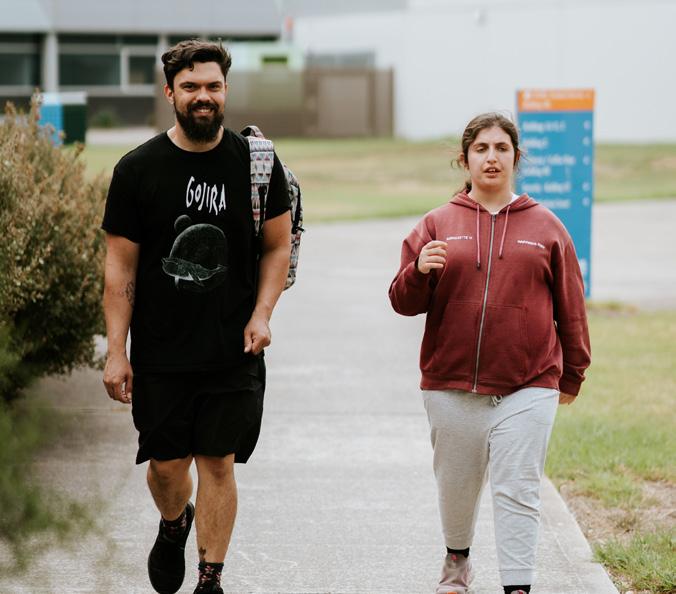
displays anxiety or looping behaviour, such as reducing and removing triggering environmental factors in her daily interactions. The team started supporting her in activities on campus requiring a short walk, such as going to the café and gym. Bernie was given choice and control over her day, with clear boundaries and expectations written into her checklist to promote independence and self-assurance. Bernie is joining participants shopping for Healthy Meal Prep, going to Bike
Support that respects you. A community that welcomes you. Opportunities that grow with you.
At Aspect Adult Community Services in Melbourne, our experienced team works alongside you with:
• Individualised support plans based on your strengths and interests
• Choice and control over your day
• A welcoming space to build friendships and life skills
Now enrolling NDIS-funded Autistic participants at aspect.org.au/acs
Education and working on her fine motor skills through Art Therapy. She now freely expresses herself and manages her emotions.
“Regular discussions among staff ensured a strong, shared understanding of her goals and cohesive support. There is no stopping Bernie now,” Smith said. “She’s engaged in every activity and enjoying every minute she’s at Aspect. It’s been great to work alongside her as she continues to grow as an active member in the community.
Bernie’s family is thrilled and seeing her out and about, building relationships and engaging with the world, has brought them tremendous joy. “We’re now exploring her future interests and long-term goals together,” Smith added.
If you’re looking for individualised support, learn more at our Melbourne locations (St Albans, Hawthorn, Heatherton and Northcote) at aspect.org.au/acs
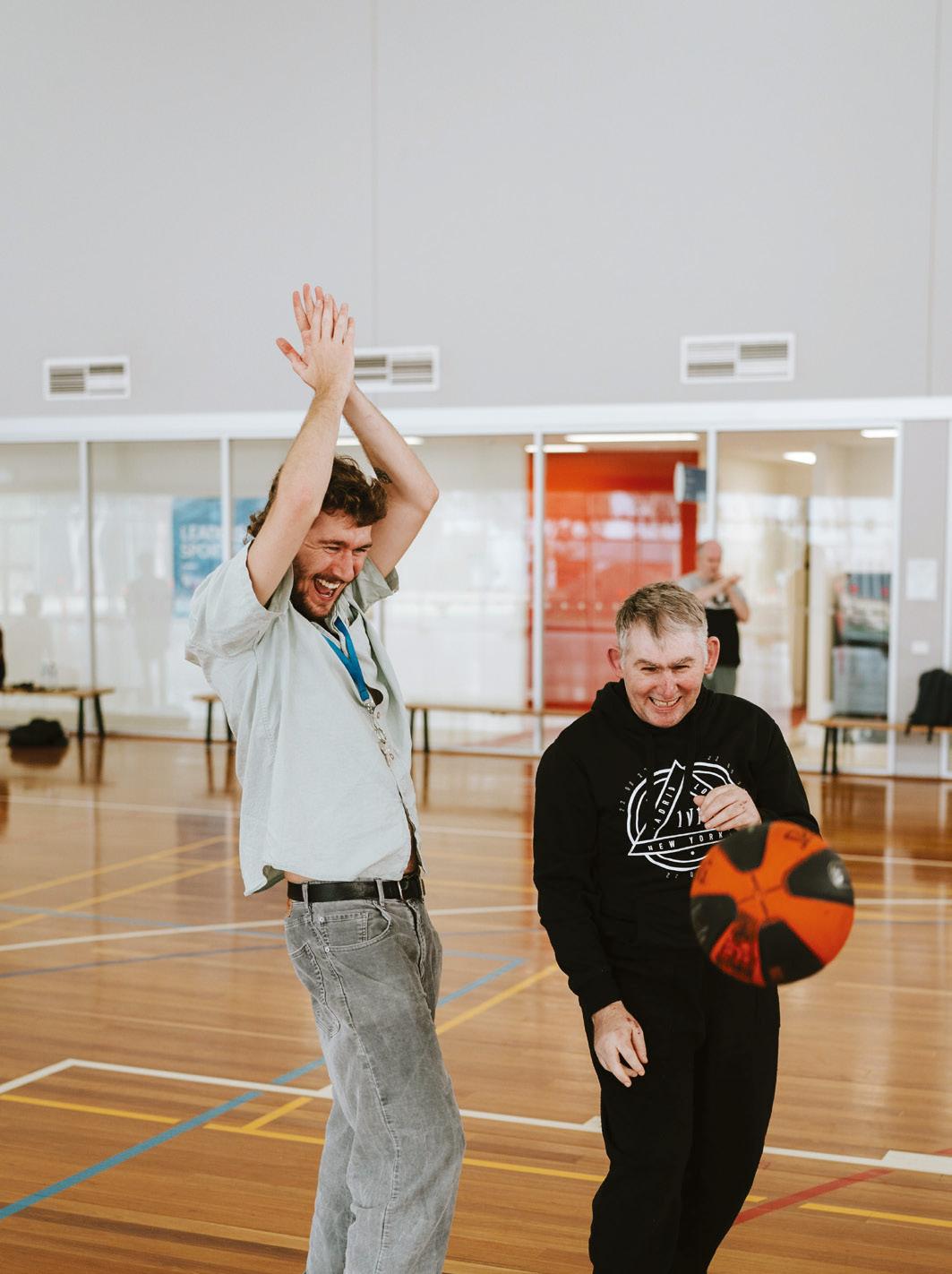

Sophee Savage describes herself as having “the sense of justice autism”, and it’s not hard to see why. At a recent hackathon hosted by Telstra to boost connectivity for First Nations customers who live with disability, Sophee unveiled an idea – revolutionary in its simplicity – to help customers find the most affordable prepaid mobile plans and avoid overpaying for data by basing recommendations on their historical usage. The result? First prize in the competition, and a commitment to explore the tool’s feasibility with Telstra’s engineering team.
For Sophee, who works in the publishing team at Telstra Digital, the point wasn’t about prizes but about balancing the scales for some of Australia’s most vulnerable people.
“If you’re Indigenous and you have a disability, you face overlapping layers of disadvantage – in fact, you’re right at the main intersection of disadvantage,” she said.
The 28-year-old Torres Strait Islander lives in Townsville with her long-term partner, Bryan, an Aboriginal man from Palm Island, who has a cognitive disability. For several years Bryan has been consistently buying prepaid data he will never use – “because he struggles with numbers and just chooses a plan that won’t run out”.
Getting a fairer deal for Telstra’s most vulnerable customers was at the heart of the Connect As You Are hackathon, hosted by Telstra’s Digital Channels, Contact Centres, and the TelstrAbility employee resource group, on Global Accessibility Awareness Day in May.
The event saw seven innovators present their ideas to improve services for First Nations customers with disability to four judges from the company’s senior management. The results – ranging from in-store flashcards and text-tospeech devices to ingenious software to present information in Indigenous languages – said as much about the personal empathy as the technological wizardry of Telstra’s staff.
Statistics show that First Nations Australians are around twice as likely to experience a disability in their lifetimes as their non-Indigenous counterparts. Telstra is one company that’s doing its bit to address this alarming reality.
Sophee’s idea is for a simple comparison tool in the My Telstra app, which will help customers find the most appropriate prepaid recharge
plan based on their historical data use. “When I was looking into Bryan’s charges, which I think are at least $10 a month more than they should be, I couldn’t help wondering how many other people are doing the same thing,” she said. “If I was in that position, I would just find my usage, find what plans are available, and ask ChatGPT to identify the best plan for me. It’s not hard to use AI for these kinds of calculations, but it does require some cognitive abilities.
“It’s a problem for me because it’s a problem for him, and I feel it’s important to do right by people. In this case, I’m lucky to be in a position to do something about it.”
Sophee’s simple solution was met with instant appreciation from the judges. Head of Accessibility Ben Pintos-Oliver called her proposal “a fantastic idea, well thought out and clear”, while Digital Channels executive Jeremy Nicholas praised it as “a really compelling pitch, helping customers right-size their product and make sure they’re not spending any more than they have to”.
TOWARDS TANGIBLE OUTCOMES
Connect As You Are was the brainchild of Telstra’s Accessibility Lead, Brady March, who’s been investigating the “intersectional disadvantages” facing Australia’s most vulnerable people for several years. In December, he invited Damian Griffis, CEO of the First Peoples Disability Network, to address Telstra staff about the specific challenges facing First Nations people with disability – a presentation that directly inspired the hackathon.
“When I started looking into the enormous digital gaps facing First Nations people with disability, I realised there was so much more we could be doing,” Brady said. “But we wanted to do something with tangible outcomes, to connect people on the ground who can solve these specific challenges.”
Brady said he was blown away by the response within the company; he gets a little teary when he talks about the passion he’s unleashed. “When the submissions started coming in, I was totally overwhelmed by the thought, research, and ingenuity that had gone
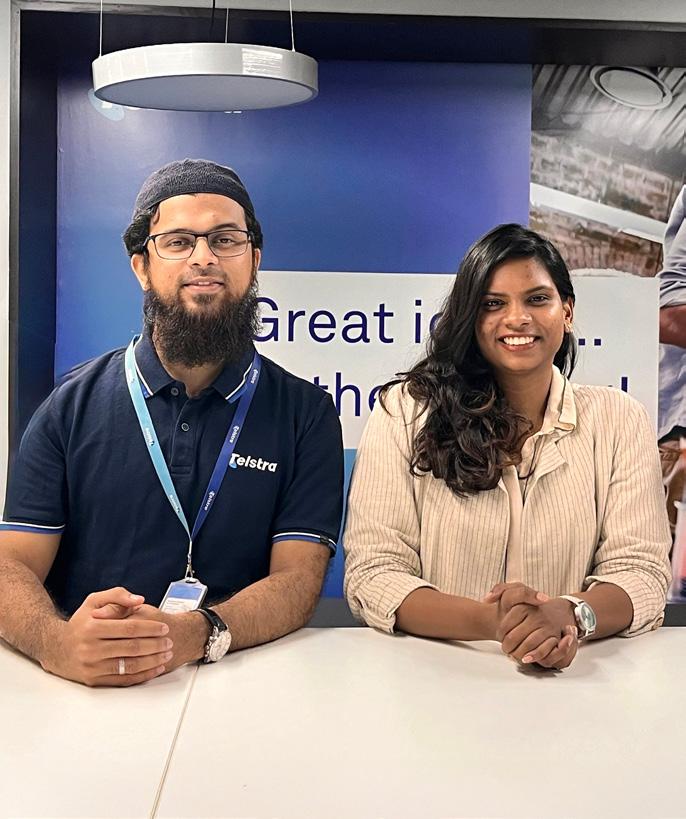
into them. The diversity of ideas, their ingenious simplicity, the challenges they were solving were amazing. I can’t wait to see where we go with these ideas… their potential impact out in the world.”
According to Brady the accessibility team has already “kicked off exploration” of Sophee’s idea – to ensure the right people are engaged to develop it – and “there’s a very strong appetite to make it happen”. The team is also examining the other six proposals, which include speechgenerating devices to help people who have difficulties communicating, a dedicated Telstra ID card, in-store Braille flashcards, and an AI text-tospeech model to help customers access online information in their language.
The rich potential of AI to power accessible communications was a persistent theme of the hackathon, with the runners-up proposing a voice-activated assistant – similar to Siri or Google Assistant – to provide customers with culturally-appropriate answers about Telstra’s services in their own language. ’TelstraForMob’ is the brainchild of product manager Bhagyarekha Bonagiri and software lead Arafat Hussain Shaik.
Bonagiri and Shaik aim to build an “API-first solution” – or a software interface – that can be integrated across Telstra’s website and My Telstra, to help visitors find answers to common queries on issues such as recharges, balance checks, product offers, and
refund updates. By using automated speech recognition technology, they believe they can potentially address the most frequent questions posed to Telstra’s First Nations Connect hotline –speeding up the process for customers and freeing up agents to address more urgent or complex enquiries.
While smart assistants and translation apps can draw on vast digital datasets for mainstream languages, such data doesn’t yet exist for most Indigenous Australian languages for a number of reasons. Bonagiri and Shaik will be reaching out to a number of institutions that are working to digitise Indigenous languages, to help them collate their initial datasets and understand the implications surrounding Indigenous data sovereignty and the proposed solution.
“We already have considerable data on the most common questions from First Nations customers, so it shouldn’t be too hard to define keywords that identify those questions and then build a rule-based system with predefined responses to those questions,” Bonagiri said. “Having easy English texts as backup will help us accelerate the process – and as the model learns, it will become more intuitive.”
After the hackathon, the inventors said they were heartened by the judges’ responses, and the clear commitment of the accessibility team to dedicate support to First Nations customers with disability. “I have great faith in the commitment of our executives to do something, and Telstra has the power, resources, and skills to utilise the latest AI and personalisation tools to make things better for our most disadvantaged customers,” said Sophee Savage. “In fact, I think there’s no better place where this can be done, because we have so much capability – and the leadership to back it up.”
The hackathon showcases how starting with accessible and inclusive design leads to products and services that have the ability to work for everyone. Prioritising accessibility from the beginning is design for all, helping overcome barriers faced by all kinds of diverse groups not just First Nations People living with a disability.
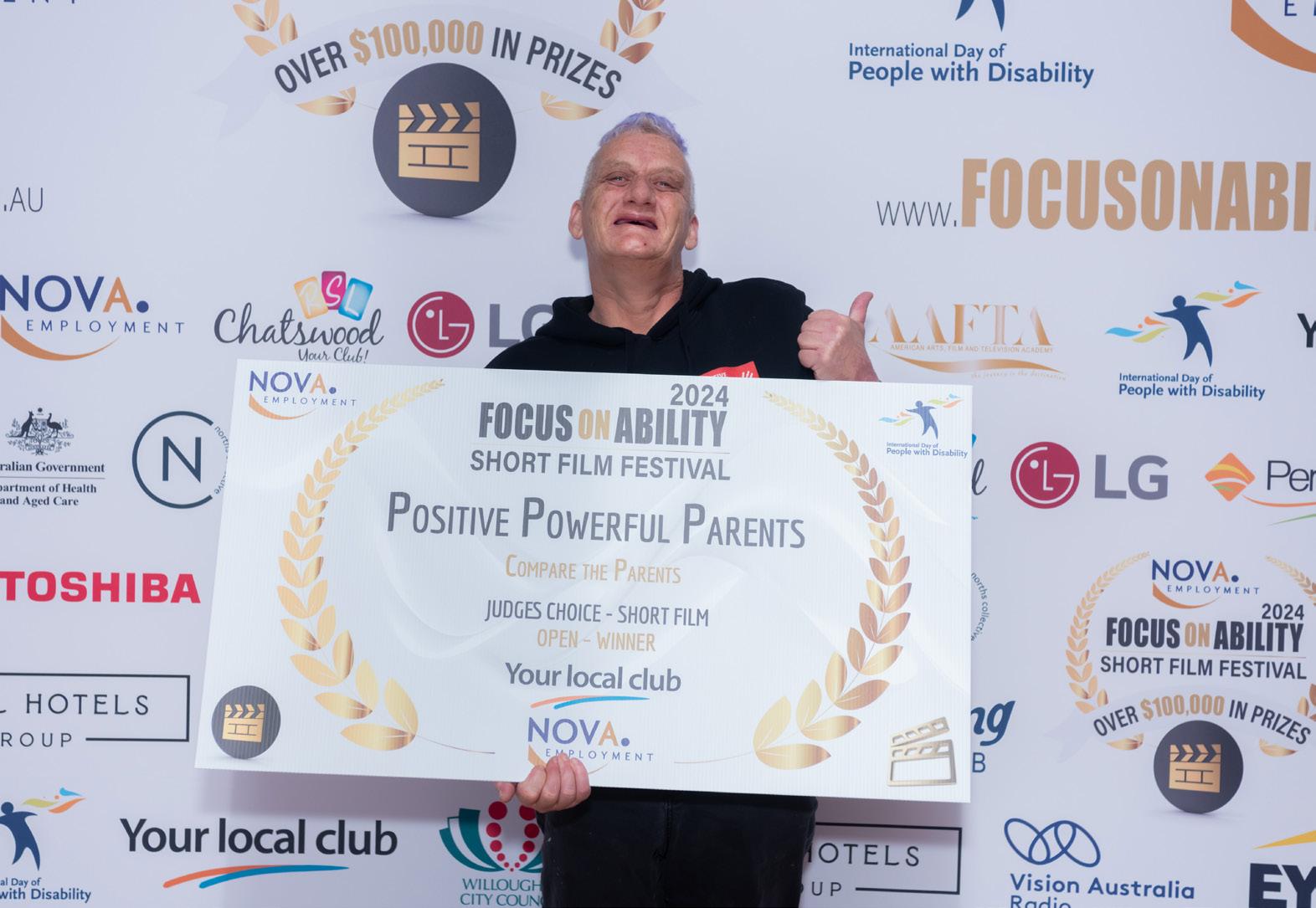
The Focus on Ability Short Film Festival is back for its 17th year, and we are inviting you to experience something truly special. With screenings happening across Australia and beyond, this is your chance to be moved, uplifted, and inspired by powerful short films that celebrate the talents and achievements of people with disability.
Each screening event is a celebration of creativity, inclusion, and the human spirit. Whether you’re a film lover, an advocate for inclusion, a teacher, a student, or simply someone who appreciates a great story, you will find something to love. The films— created by emerging filmmakers, schools, and people with lived experience—are often just a few minutes long, but they pack a powerful emotional punch. Many past attendees
have walked away changed by what they saw on screen.
“CREATING SHORT FILMS IS A GREAT WAY OF SPEAKING UP AND RAISING AWARENESS. WE WON AND GOT TO GO TO THE SUNDANCE FILM FESTIVAL IN THE US. FOR US THIS WAS A ONCE IN A LIFETIME OPPORTUNITY. I RECOMMEND OTHER FILM MAKERS TO ENTER THE FOCUS ON ABILITY FILM FESTIVAL”
– Romeo from Positive Powerful Parents – 2025 Best Short Film Winner.
Entry to the events is free, and several include light refreshments, making them not only heartwarming but also welcoming, social experiences. It’s the perfect way to spend a morning or afternoon with friends, family, or your community group with the opportunity to meet like-minded people, network with creatives, and hear from some of the filmmakers. Each screening fosters a deeper understanding of disability and showcases the limitless potential of inclusive storytelling.
By attending a screening, you are not just watching a film, but also helping to create a more inclusive world, supporting the voices of people with
disability and helping shine a light on their stories, skills and creativity.
Come along, bring a friend, and be inspired. Join us at a Focus on Ability screening near you and see what ability really looks like.
The screenings are taking place throughout September and October in a wide range of locations across Australia. You can check the full schedule and register your attendance at: focusonability.com.au/FOA/ screeningEvents.html
SCREENING DATES & VENUES 2025
Brisbane
Tuesday 2 September 12pm - 2pm PIP Theatre
Brisbane Tuesday 2 September 6pm - 8.30pm PIP Theatre
Sydney Wednesday 10 September 10.30am - 1pm
Liverpool Catholic Club - The Theatre
Canberra Friday 12 September 10.30am - 12.30pm National Museum of Australia
Adelaide Wednesday 17 September 11am - 1pm
Hotel Grand Chancellor Adelaide
Fremantle
Thursday 18 September 11am - 1pm
WA Maritime Museum
Melbourne
Tuesday 7 October
10.30am - 1pm
Crown Towers, Level 1 River Room 8 Whiteman St, Southbank
Having a diverse workforce really creates an opportunity for everyone to collaborate their unique set of skills and experience that they bring into the team. NOVA have been fantastic.
Sarah
- Head of People & Culture – Custom Denning
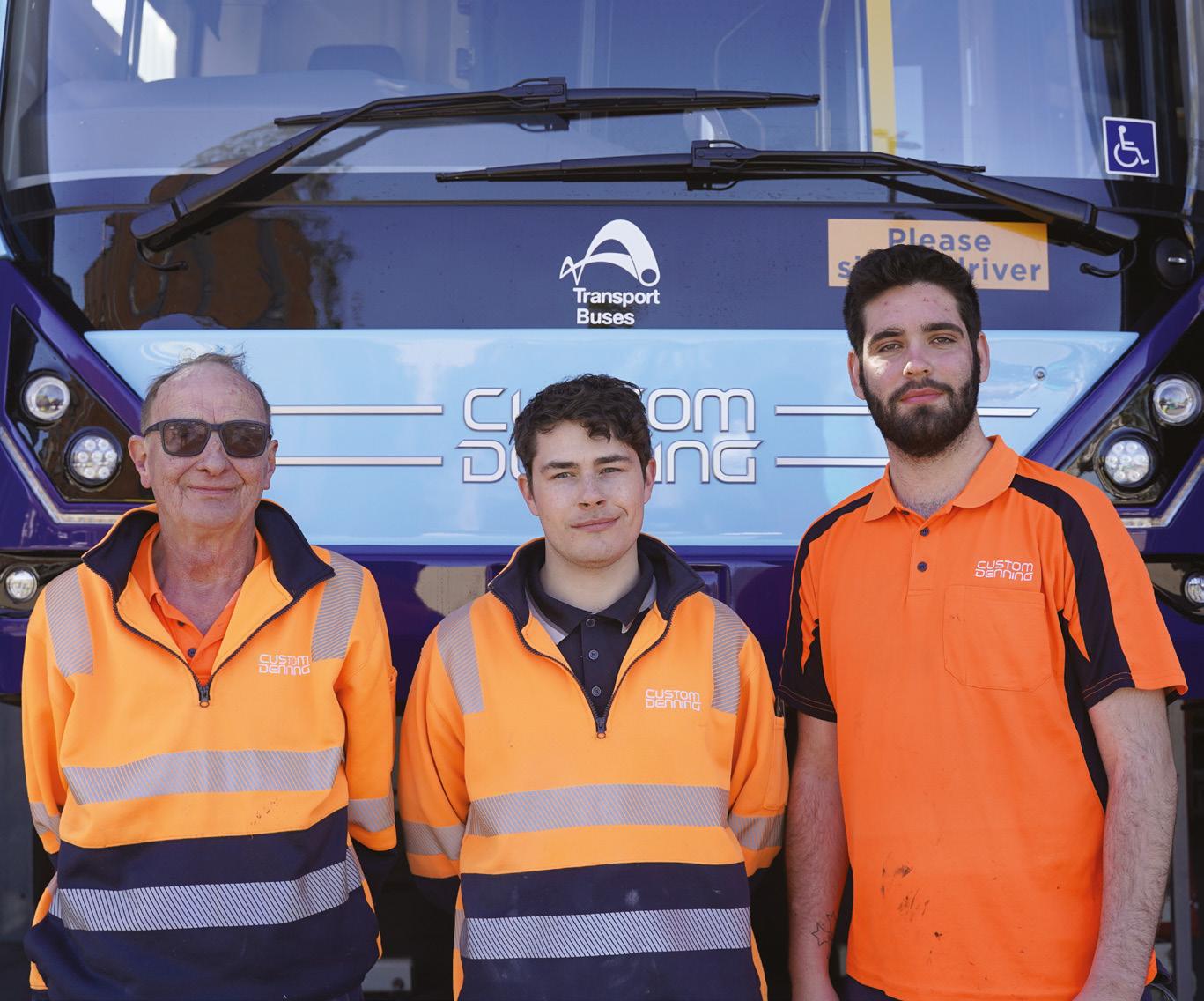
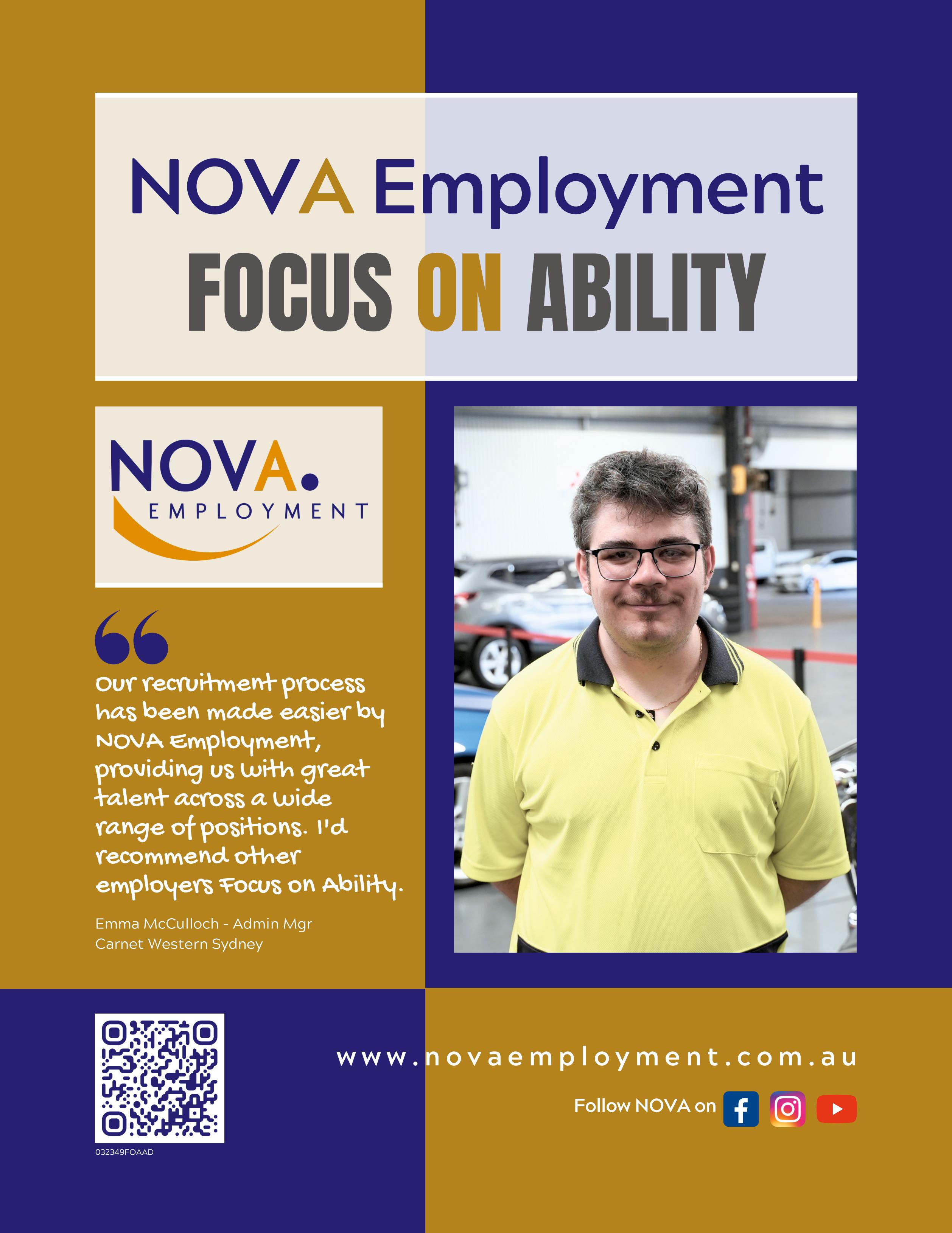
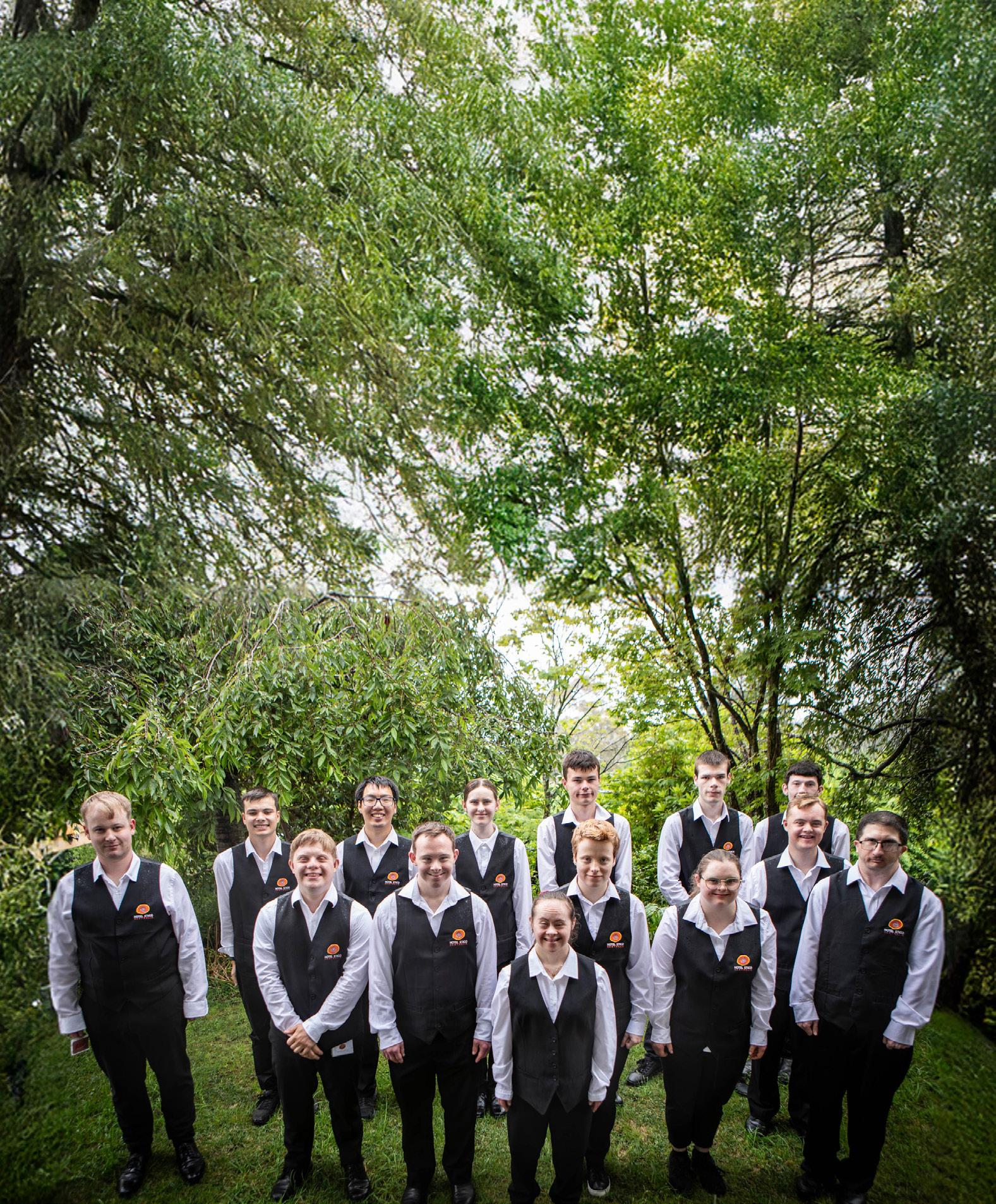
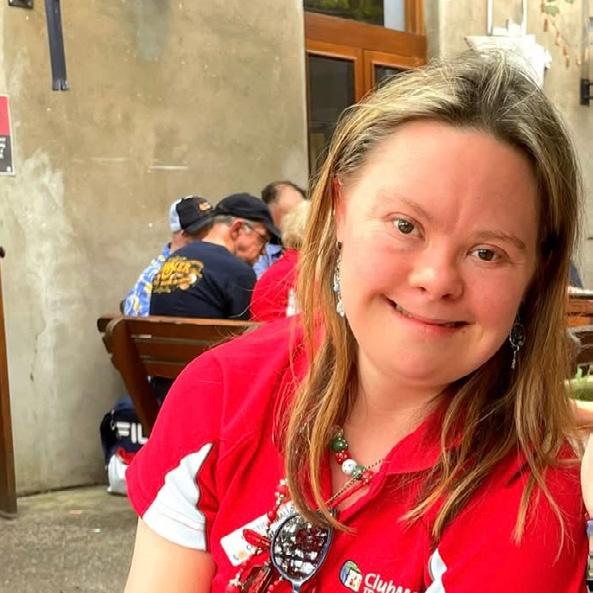
and planting trees or cleaning playgrounds, in hospitality through its network of five café-kiosks in both front and backof-house roles, and in digital media for the organisation. As well as supported and segregated settings, Wallara also offers pathways to open employment thanks to grant funding that enables it to find companies that will take on employees with disability.
Small said she’d be disappointed if Wallara were to close down. The job there gives her meaning and independence, she explained, and has helped her make firm friendships.
Phil Hayes-Brown is CEO of Wallara, and the father of a daughter with an intellectual disability.
He said for those who are interested in transitioning to open employment, Wallara scopes out the jobs to make sure they’ll be a good fit, then connect employees and helps them through a trial process. While some fall through, he said “the door is always open” for Wallara employees to choose to try open employment.
The Disability Royal Commission’s recommendations around employment could be life-altering for many people with disability. So, what do those in the sector think? Danielle Kutchel found out.
Kristie Small loves what she does for work. Small has two jobs: one in open employment, and one in a supported setting. Her open employment role is as a tour assistant for Club Mates Travel. It’s a great job, she told Link; she gets to take part in tours for other people with disability, travelling around Australia and creating videos for the company.
“They relate to me,” she said.
She also adores her other job at Wallara, where she works in a supported setting. Over her 10 years there she has worked in a variety of roles across Wallara’s locations at Dandenong, Seaford and Baxter. “They make me feel like I’m me,” she said.
In 2023, the Royal Commission into Violence, Abuse, Neglect and Exploitation of People with Disability – otherwise known as the Disability Royal Commission – published its findings in a final report. In it, the Commission recommended phasing out segregated employment.
But the debate around this isn’t as simple as just shutting down segregation, because those in the sector say that for many people, the set-up works.
Wallara employs around 250 people across its warehousing and logistics division, in roles like pick-packing, assembly of components, and driving forklifts. They also employ people in land management roles like mulching
“It’s been fabulous to see that process. We’ve had about ten successful placements. All of those… except for one, have been hybrid which means they still do some time with us. One person over 18 months has transitioned completely out of our agency and is working with the other organisation.”
He said they constantly seek feedback from Wallara workers, making sure they’re comfortable with their current employment arrangements.
“It’s very much driven by the individual. It’s important for us that all choices of work setting are completely valid. If someone wants to work in open employment, great. If someone tries it or doesn’t want to even talk about opening it and work in supported employment because that’s where they are the most secure and where they feel like they belong, and that’s the best for their life, we respect that too.”
He told Link he had been worried about what decisions the Royal Commission would make.
Earlier this year he wrote a Linkedin post disputing criticism of the low wages that employees in supported employment can receive, arguing that’s not the full story once the disability support pension and spectrum of wages and work available in supported workplaces is taken into account.
Hayes-Brown said Wallara offers variety for its employees, with a mix of public facing and behind-the-scenes roles.
“We’re very proud of the jobs that we are offering to people who would struggle to get jobs in open employment. That is the reality. If we set the bar too high, we’re going to find a whole lot of people that miss out on work altogether. I hope that choices and options for people, especially with intellectual disability, continue to exist because I do not believe that one size fits all.”
He said he wants to see as many people with disability in work as possible – including people like his daughter, Phoebe.
“This is who I represent in this debate. Not the very high functioning, lowsupport person who, with a bit of extra support, can be in open employment. That is not the average person in supported employment. I hope we always remember who we’re talking about in this conversation and always find a way for them to be in work,” he said. “They want to work. They have the right to work. They need a different environment, a different system… they have the same human rights as anyone else.”
In the Blue Mountains just west of Sydney is Hotel Etico, Australia’s first not for profit social enterprise hotel.
Hotel Etico is unique among accommodation offerings. Many of its staff have disabilities, both visible and invisible, and the hotel provides training and employment in all aspects of the hospitality industry in an open employment setting, as well as providing an independent
living program. Through this program employees learn cooking, cleaning, budgeting and all the other skills they need in order to live independently.
Saraya O’Connell, general manager of Hotel Etico, said the organisation has developed its own tailored hospitality curriculum taught through hands-on work training, workshops, videos and assessments.
“Employees learn to work in all areas of the hotel, and then about three months into their program they pick a specific area which they want to focus on, and then their work shifts and training becomes more about that area,” she said.
The second year of the program sees trainees placed in open employment with other hotels.
“We’re a pathway program, not a destination program. For the pathway into open employment we partner with a number of big hotels. We’ve got graduates that work in the Fullerton Hotel, Shangri-La and Mercure Sydney,” she said.
In these industry partner hotels, as at Hotel Etico, trainees receive the full award wage.
O’Connell said Hotel Etico uses the program to help spread awareness of disability inclusion further, as well as to fill the staffing gap across the sector.
“We’ve got employees that are really engaged and willing to work, and we’ve got hotels that really want staff to be there. There’s no reason why Australia can’t be the most inclusive hospitality industry in the world, and our model has proven that that can happen.”
She added trainees are stoked to have the opportunity to work at Hotel Etico.
“There’s such a stigma around people with autism or intellectual disability or even disability in general that they can’t work, and the fact that they can come here and build that confidence [to say] I am good enough for a role, it’s just unbelievable.”
With the DRC’s findings on employment now out in the public, she
feels there’s an opportunity to “shift those mindsets” within the disability employment space.
While acknowledging that every person with disability is different, she believes that mainstream open employment can be supportive enough for people with disability – but if somebody really needs to be in supported employment, they should still get paid the same as anyone else.
“Maybe not everybody will be able to go into mainstream and open employment, but I do believe that everybody should be getting fair and honest wages, full award wages,” she said. “I think that mainstream employment can be a really supportive environment. We’ve shown that, we’ve showcased that, our industry partners showcase that every day.”
She added that if segregated employment is ended, there needs to be a considered rollback that takes into account any repercussions.
“I WANT TO PROVE I CAN DO A JOB”
Sam Stevenson is one of Hotel Etico’s trainees. He works front of house, and loves it.
“I can do stuff that I couldn’t do before,” he said.
He also works at one of Etico’s partner hotels at Mercure Manly Warringah. He had been struggling to get a job prior to joining the program at Hotel Etico. Now, he juggles multiple roles.
“I’ve got too many favourite parts. I like working in the restaurant and working in the bar. It’s not [just] money, it’s to keep busy as well.”
He said he wants employers to give people with disability the opportunity to work and help them to find a role and a company that fits with them.
“If you’re saying I’m not doing well enough to be in the business… put me on to another company that could help me with that. If I am not good for the job, well you’ve proven that by having me on board. If I don’t do a good job, I want to know that, but I want to prove I can do a job.”
Finding meaningful employment can be challenging, especially for people with disability who face additional barriers when entering the workforce. But an opportunity is coming to Sydney and Canberra that aims to change that.
The WorkAbility Expo will be featured as a key part of the upcoming Sydney Disability Expo, taking place at Sydney Olympic Park, and the Canberra Disability, held at EPIC. These events are designed to connect people with disability to mainstream employers who are actively seeking to build more inclusive, diverse workplaces.
Backed by the Australian Government Department of Social Services, the Sydney WorkAbility Expo & Canberra WorkAbility Expo are more than just a job fairs — they are a movement towards a more accessible and equitable employment landscape. Whether you’re looking for part-time or full-time work, returning to the workforce, or just starting out, the WorkAbility Expos provide a welcoming space to explore opportunities and connect with employers who value ability over limitation.
Attendees will have the chance to meet a wide range of open employers — companies that are actively recruiting and genuinely committed to inclusion.
In Sydney, we already have McDonald’s, Medibank, Amazon, Transport NSW and Hotel Etico confirmed to be involved. These employers come ready to engage, answer questions, and talk openly about how they support employees with disability. It’s a rare opportunity to have face-to-face conversations with hiring teams who understand the importance of access, workplace adjustments, and career development pathways.
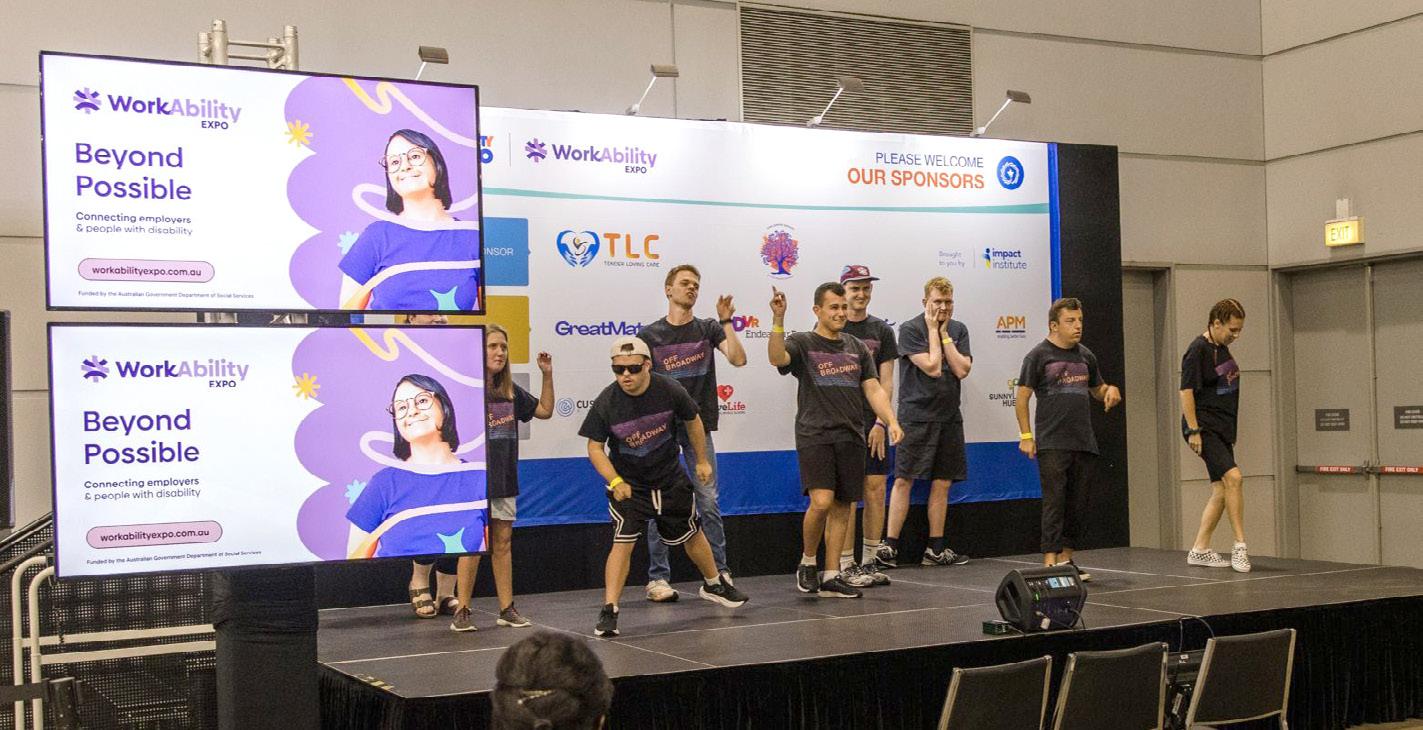
In addition to meeting employers, visitors can connect with a range of employment services offering tailored support. From assistance with job applications and resume writing to interview preparation and workplace readiness programs, these providers are there to help build skills and confidence. For many attendees, this one-on-one guidance can be a valuable first step towards achieving long-term career goals.
One of the highlights of the WorkAbility Expo is the line-up of employment workshops, held throughout the day. These practical sessions cover topics such as job searching with a disability, disclosing your disability to an employer, understanding your rights at work, and strategies for building a sustainable career. Led by experienced professionals, the workshops are open to everyone and provide real-world advice in a supportive environment.
The Sydney Disability Expo and Canberra Disability Expos are the largest disabilityfocused event in their respective cities, and with the addition of the WorkAbility
Expo creates even more value for attendees looking to explore employment options. These events are free to attend, and family members, carers, and support workers are all welcome.
For people with disability, employment is more than just a job — it’s about independence, purpose, and inclusion. These WorkAbility Expo’s provide a space where talent is recognised, support is available, and genuine opportunities exist.
If you or someone you know is looking to take the next step towards employment, don’t miss the Sydney Disability & WorkAbility Expo and the Canberra Disability & WorkAbility Expo. It’s a powerful reminder that when communities and employers work together, inclusive workplaces are not only possible — they thrive.
Sydney Disability & WorkAbility Expo: August 8-9, 2025 – Sydney Olympic Park.
Canberra Disability & WorkAbility Expo: September 12-13, 2025 –Exhibition Park Canberra.

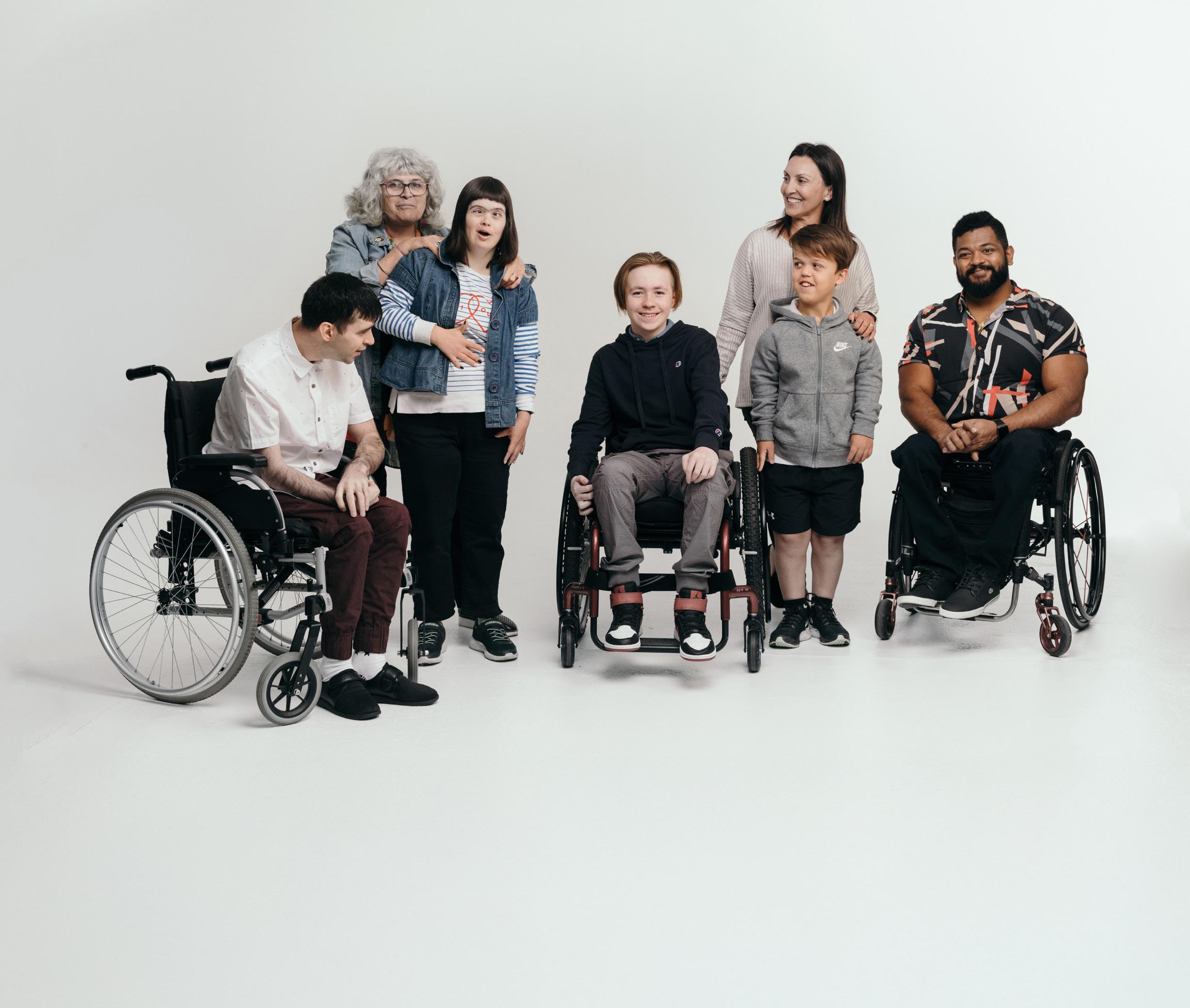
Whether you’re about to start your first NDIS plan, are mid-plan or getting ready for your next review, you can request plan management at any time. Here’s how:
1. TALK TO YOUR NDIS PLANNER OR LAC.
Start by reaching out to your NDIS contact (your Local Area Coordinator or planner). Let them know you’d like to include plan management in your plan.
If you are mid-plan, you can call the NDIS on 1800 800 110 and ask to include plan management in your current plan.
2. GET THE PLAN MANAGEMENT BUDGET ADDED TO YOUR PLAN. Plan management is funded in addition to your other supports, so it won’t reduce the funds in your other budgets.
You’ll see plan management as a separate budget line in your plan under
Choice and Control in your Capacity Building Supports.
3. CHOOSE YOUR PLAN MANAGER. Once your plan is updated, you can choose any registered NDIS plan management provider. They’ll help set things up and take it from there.
Some helpful questions to ask potential plan managers:
• Do you offer an online app or portal to help me track my spending?
• What’s your process for paying invoices?
• How can a PM help reduce payment delays from the NDIS?
• How can you help me navigate new changes from the NDIS around my plan funding?
Once you’ve chosen your plan manager, they will coordinate with you and your providers.
You can even choose to have some support categories plan managed while self-managing others. For example, you may wish to manage your consumables budget but have a plan manager take care of the rest of your support categories. This approach allows you to tailor your plan management to your specific needs, giving you more control over certain areas while gaining support from a plan manager for others.
At Instacare Plan Management, we reliably and quickly handle your invoice payments and provide real-time budget tracking via the InstaAPP.
Find out more about how our experienced team can help you manage your NDIS budget.
Give our team a call on 1300 002 221 or sign up using our online form at: instacare.com.au/online-signup.
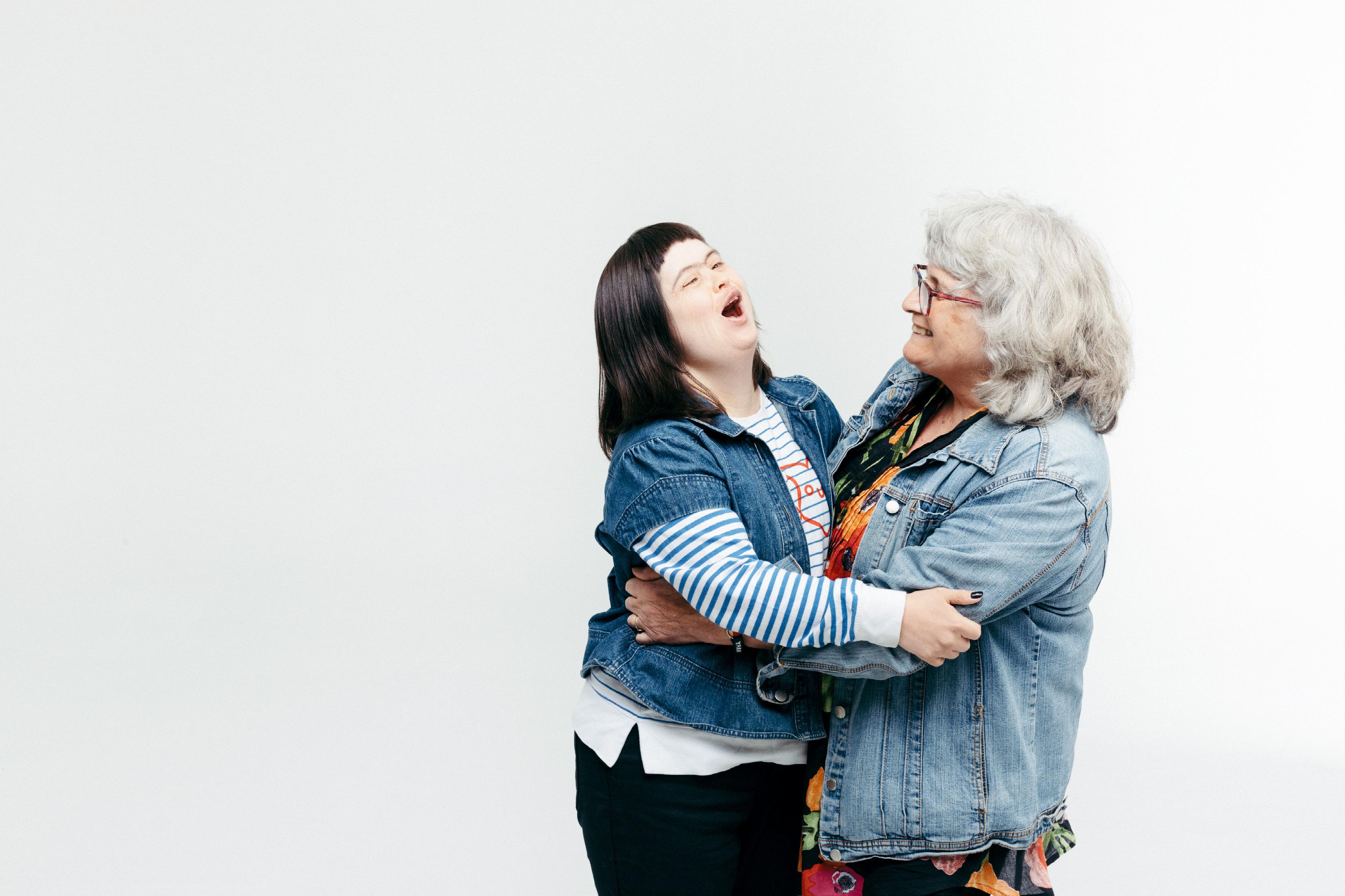

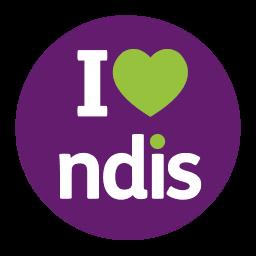
Jayden Jackson’s story is one of resilience, reinvention, and redefining what’s possible—on and off the court. After a life-changing motorbike accident left him a wheelchair user, Jayden didn’t just adapt; he thrived. Today, he’s celebrated as an elite wheelchair rugby player for Australia, a model for global brands, and now the face of Christina Stephens’ bold UN/HINGED adaptive fashion campaign.
”After my accident, everything changed—not just physically, but mentally too. I was lost at first, but finding purpose again through sport and later modelling helped me rewrite my story. Both paths reminded me that disability doesn’t limit strength or style” ~ Jayden Jackson.
Jackson’s journey is about more than medals and magazine covers. It’s about shifting the way we see disability, including how we dress. For years, adaptive clothing was daggy and clinical—nothing most people wanted to wear. That’s why he felt such a strong connection to Christina Stephens, a brand actively flipping the script, making adaptive clothing that’s not just functional, but genuinely stylish and confidence-boosting.
”I support Christina Stephens because they genuinely get it. Their designs aren’t just accessible—they’re stylish, functional, and made with lived experience and community in mind. They lead with dignity and style, and that’s something I’m proud to wear” ~ Jayden Jackson
The UN/HINGED CS Denim collection is leading that revolution. Designed through real community feedback, pieces like the Rhys and Stephen Seated Jeans (for men) and Annie Seated Jeans (for women) bring together comfort, innovation, and modern style. Think soft, wrinkle-free denim, seamless backs, and two-in-one zip-off designs that transform jeans into shorts.
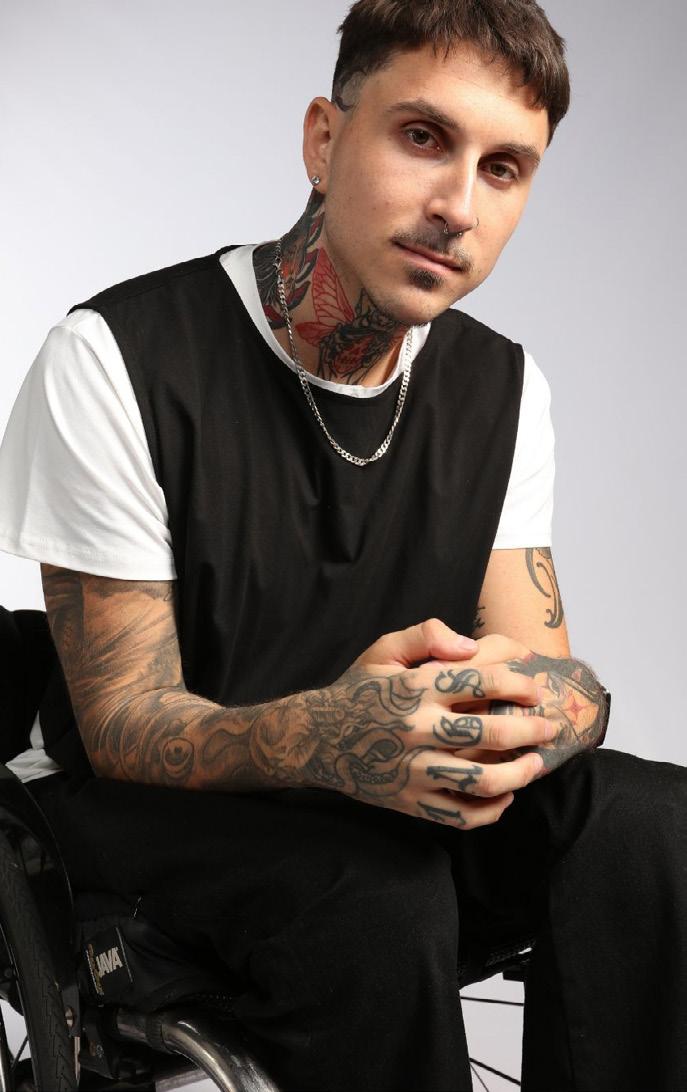
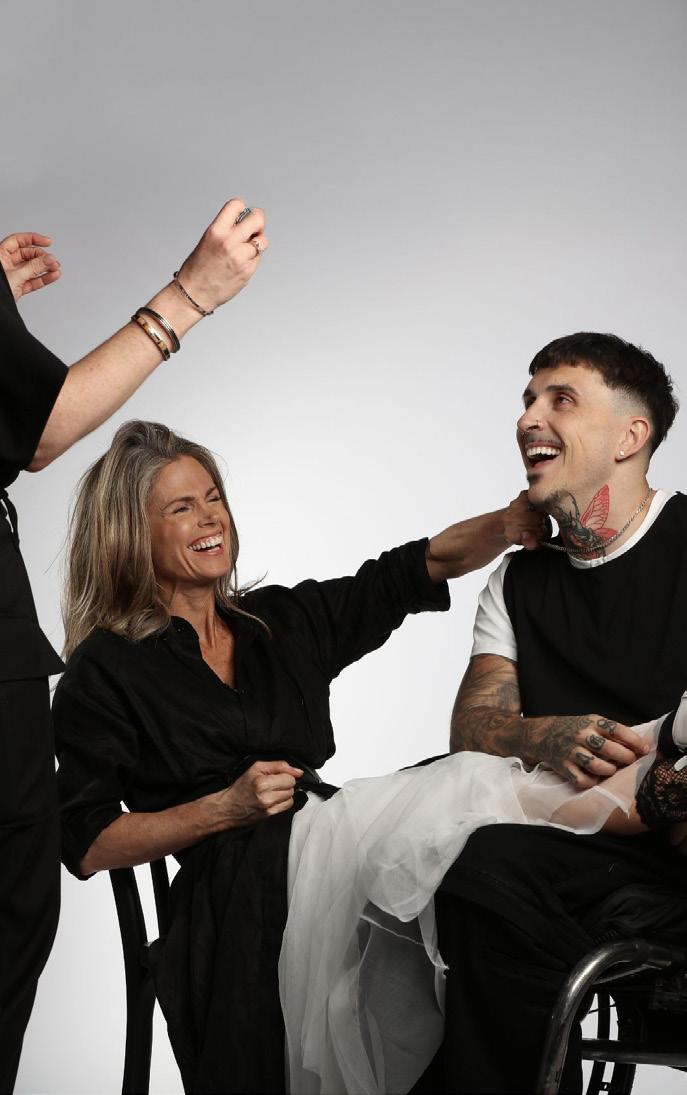
”The
mean I can get them on easily and stay comfortable all day. There’s no pressure points, no awkward seams, and they actually look good—which matters. It’s about independence and confidence, and these jeans give me both” ~ Jayden Jackson.
With features like discreet catheter tap zips, pull loops, elasticised waistbands, and no internal tags, these jeans are as comfortable as they are stylish—and NDIS funded.
”Fashion has given me a sense of freedom I didn’t realise I was missing. When clothes work with your body, not against it, it changes everything. You feel more confident walking or wheeling into a room. It makes you feel more like ‘you’. That’s what adaptive fashion brings, and everyone deserves that” ~ Jayden Jackson.
For Jackson the future of adaptive fashion is clear: ”It’s finally about more than accessibility—it’s about style, choice, and representation. Being involved in this campaign means helping to change perceptions, opening doors for others, and creating a world where nobody has to settle. That’s powerful, and I’m honoured to stand alongside brands like Christina Stephens who are leading the way” ~ Jayden Jackson.
Ready to experience the difference? Shop the UN/HINGED Denim Collection at christinastephens.com.au, use code LINK10 for $10 off full-priced orders. Sign up for the mailing list for an extra $20 off $150+ (plus free shipping).
Try the RISK-FREE “Try Before You Buy” service.
Follow @shopchristinastephens and @squidaus for more.
Like Jayden Jackson, you deserve style, confidence, and clothing made for your lifestyle.
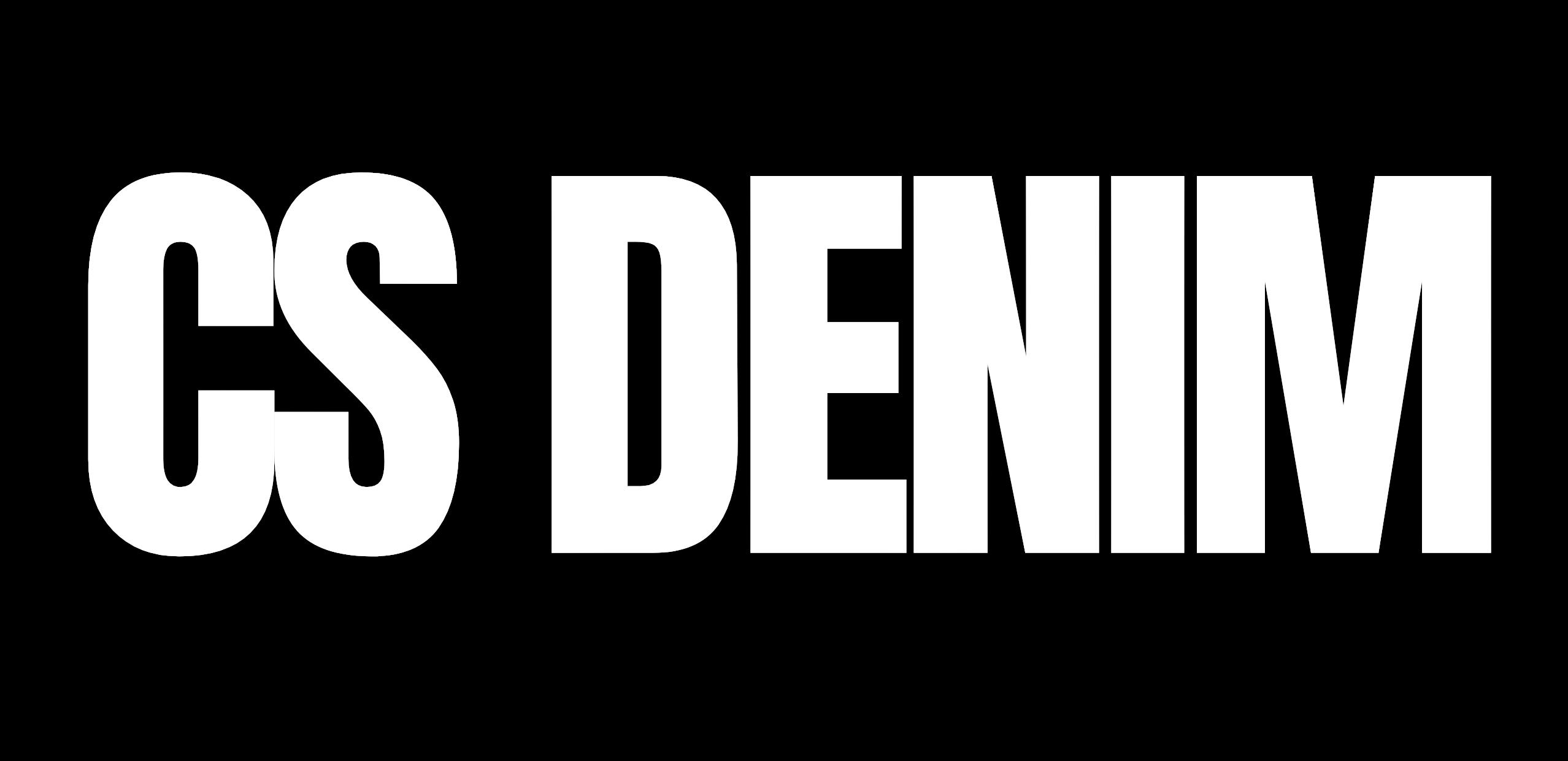

$20 OFF FIRST ORDERS OVER $150 NDIS SUPPORTED | TRY BEFORE YOU BUY SERVICE | RISK FREE SHOPPING
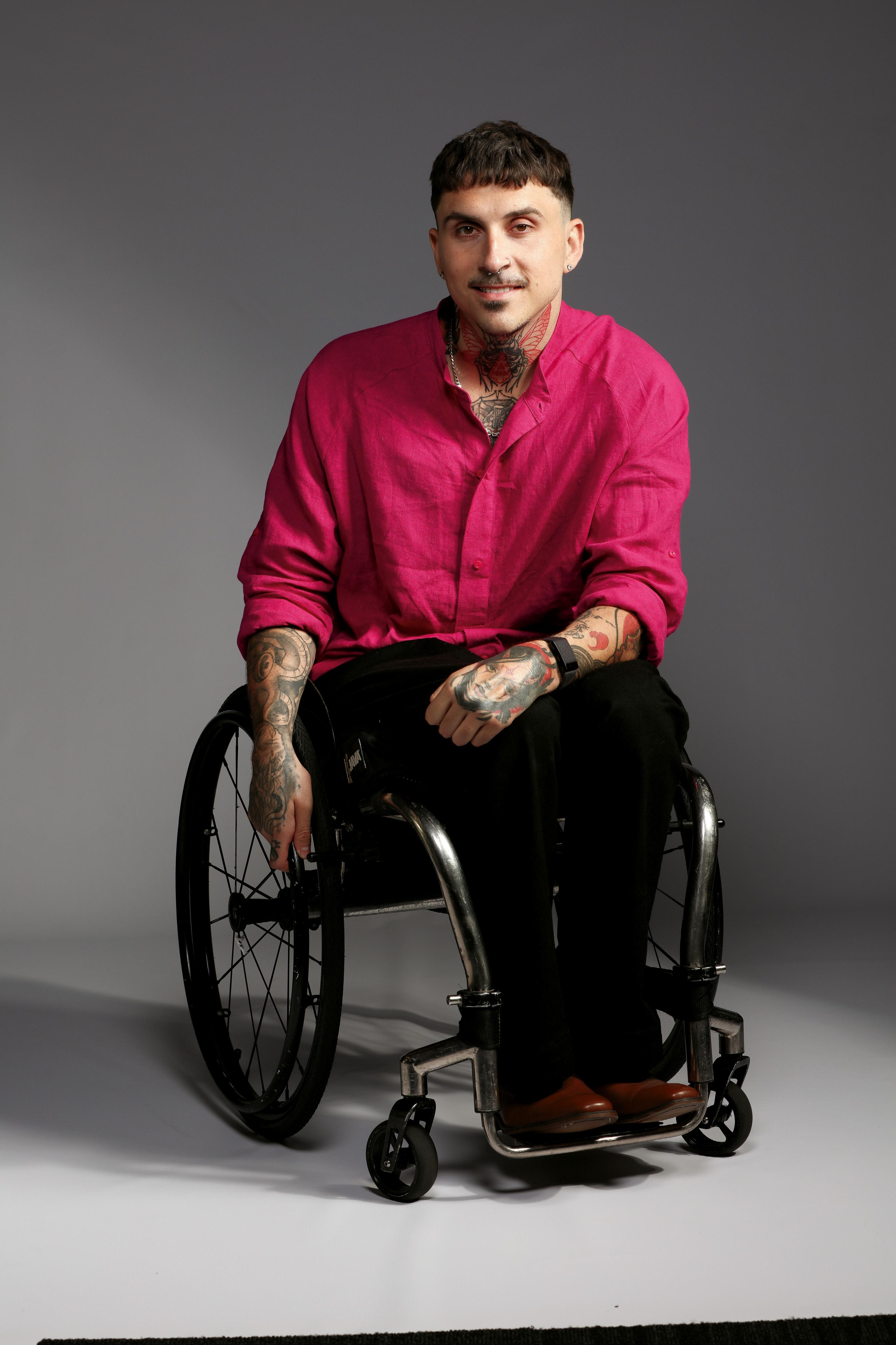


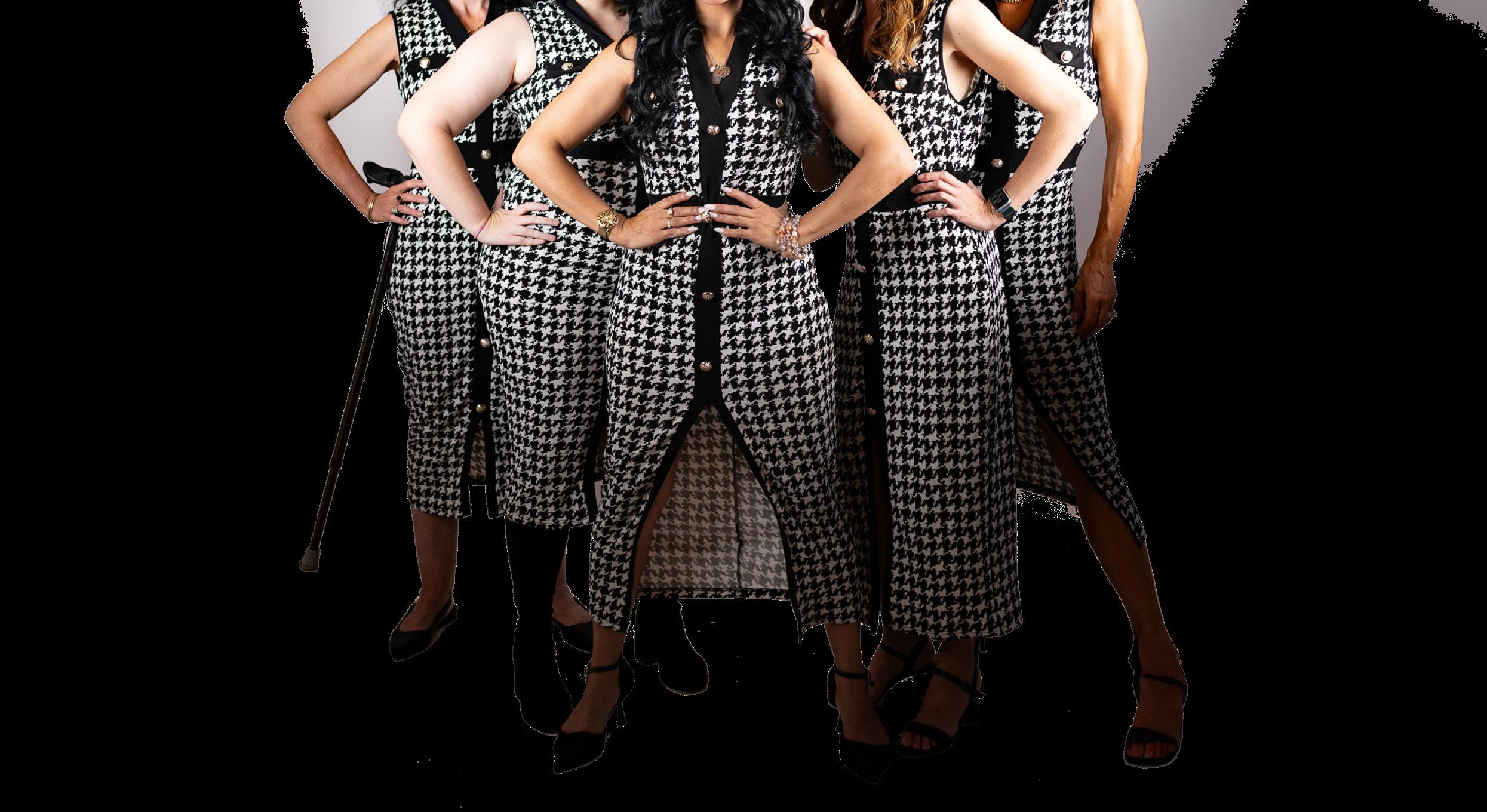
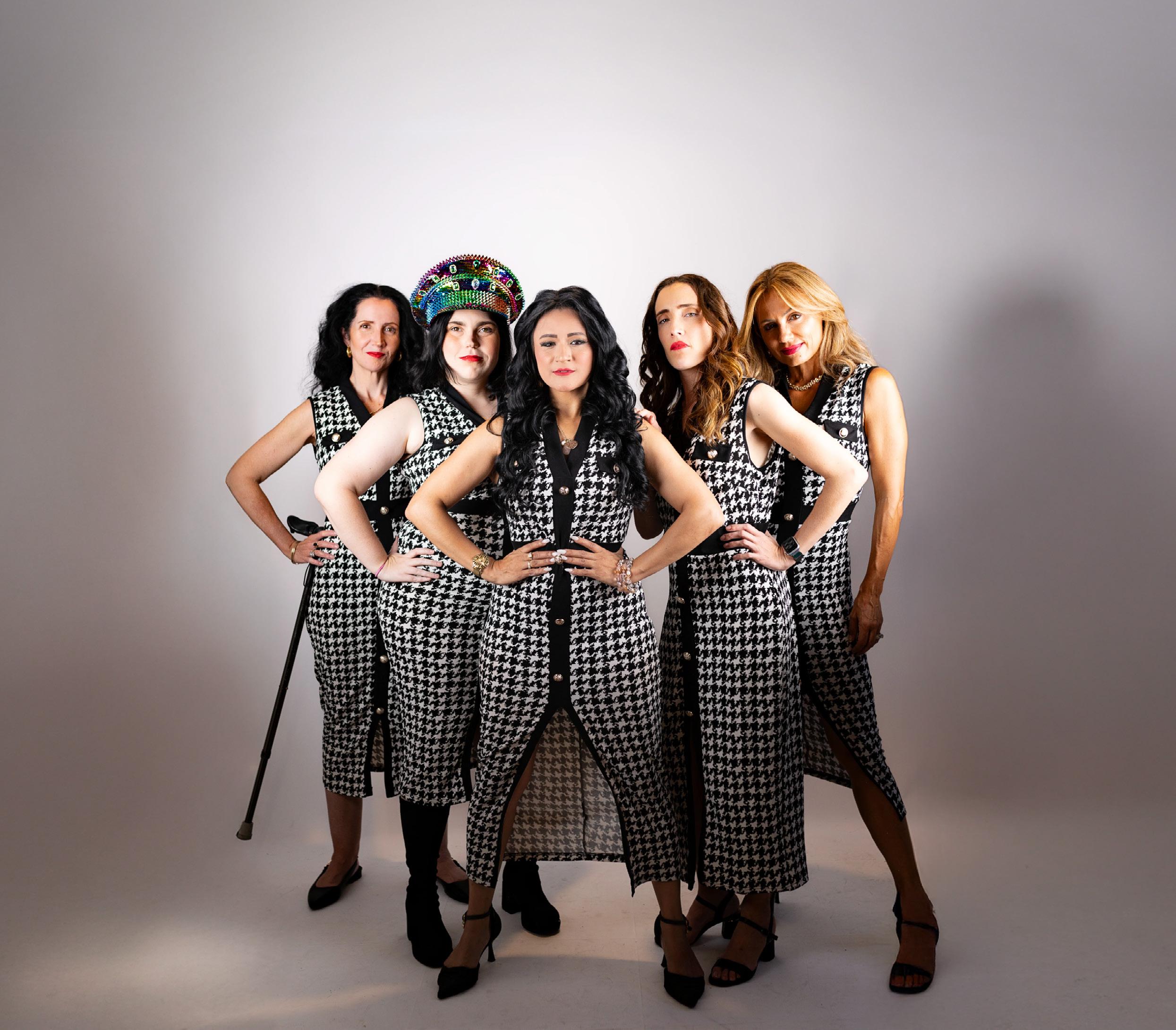
By Jayne Keogh

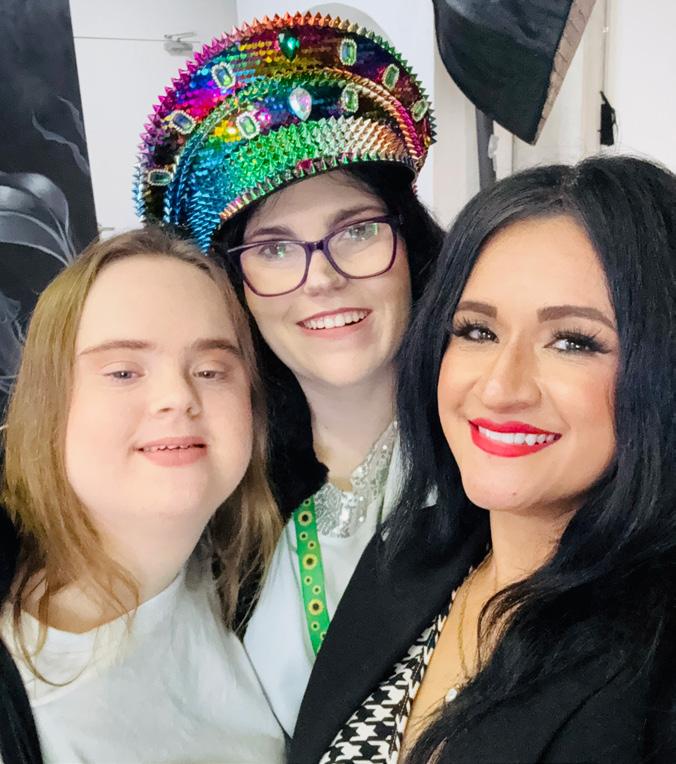
talent agency for people with disability taking national bookings from the Gold Coast office.
“I started at a pivotal time as commercial photography, television advertising, video, theatre and films now including talent from all races, ages, sizes and people with disability. I just made it easier by operating as a one stop shop,” she said. And 90 per cent of her bookings are for models with disability.
Most of the models are Down syndrome, cerebral palsy and wheelchair bound, while some have an acquired condition like Multiple Sclerosis or invisible conditions such as autism, ADHD or functional neurological disorders.
For the concept to work commercially Jeremiah has a structure in place that differentiates diversity from standard agencies. Usually, the models are accompanied by a support worker or carer for shoots, and the model’s families are often involved, also attending the bookings, as they are understandably protective of their children or relatives. “It’s very important for models to be accompanied. For example, recently in Sydney a model suffered a seizure, and her jaws locked. Her carer knew exactly what to say and do, it was all sorted within minutes and the job continued seamlessly.”
The talent usually brings their own hair and makeup artists, although Jeremiah often steps into that role.
“The transformation and self-esteem the models enjoy after this process is lovely to see. Our clients are commercial modelling in print, online, business media and television documentaries. We do a few fashion events, usually for expos and often book groups of up to 10. I prefer they work together at least in twos so they have a buddy to give them more confidence, but that can also be great fun!”
Pay rates start at $400 for a half day shoot and this is flexible according to the gig, but she is adamant that they there is no free ride as she feels that people with disability have been exploited in the past. “Now they are seeing their value.”
MOMENT ON TV
She described her business as offering a career for those with disabilities and a professional agency for the media and fashion industries.
And she has achieved a lot of media attention since Diversity Models opened in 2022 including two episodes of the SBS program ‘Insight’. In one episode ‘Gender Dilemma’ the audience was packed with people including those transitioning or nonbinary who were quite hostile.
The compere suggested that diversity was not inclusive if she did not include this group, but Jeremiah stood her ground, pointing out that in her case it was positive discrimination in favour of age, size, race and disability which gives many in that group a voice and a career. She also defended the rights of her clients to work with models that are clearly male or female. “I knew I would need to have a strong backbone when I went on Insight, but I will always fight for what I believe in,” she said.
“Fortunately, businesses and governments now see that there are more disabilities than ever before and new ones identified every year,” she said. “In marketing, people with disability would be tucked to the side, as a token, but now they are up front and seen as an
asset to your brand.” Her clients include the Gold Coast City Council, Gold Coast Airport, Hoselink Australia, Spinal Cord Injuries Australia and Neuromoves.
The digital world has simplified the process of casting with potential models sending unfiltered photos, detailed measurements, and ethnicity, emphasising natural beauty and professional behaviour, including taking direction and being team players. Families and children aged from 2 to 12 are welcome too.
The agency also runs self-improvement courses and specialty workshops for models, which traditional agencies have always conducted. These cover hair and makeup, deportment, camera posing skills, catwalk training, styling and skin care.
Smaller group workshops are designed to develop confidence and social skills for younger girls while longer retreats of up to four days encompass a broad range of activities to promote wellness, a healthy lifestyle and mental, physical and emotional balance for girls who want to boost their self-esteem. These are female only, as Jeremiah thinks women are more comfortable for this kind of selfdevelopment. These four-day retreats start at $4,500. “And on our last night we all go out dancing together!”
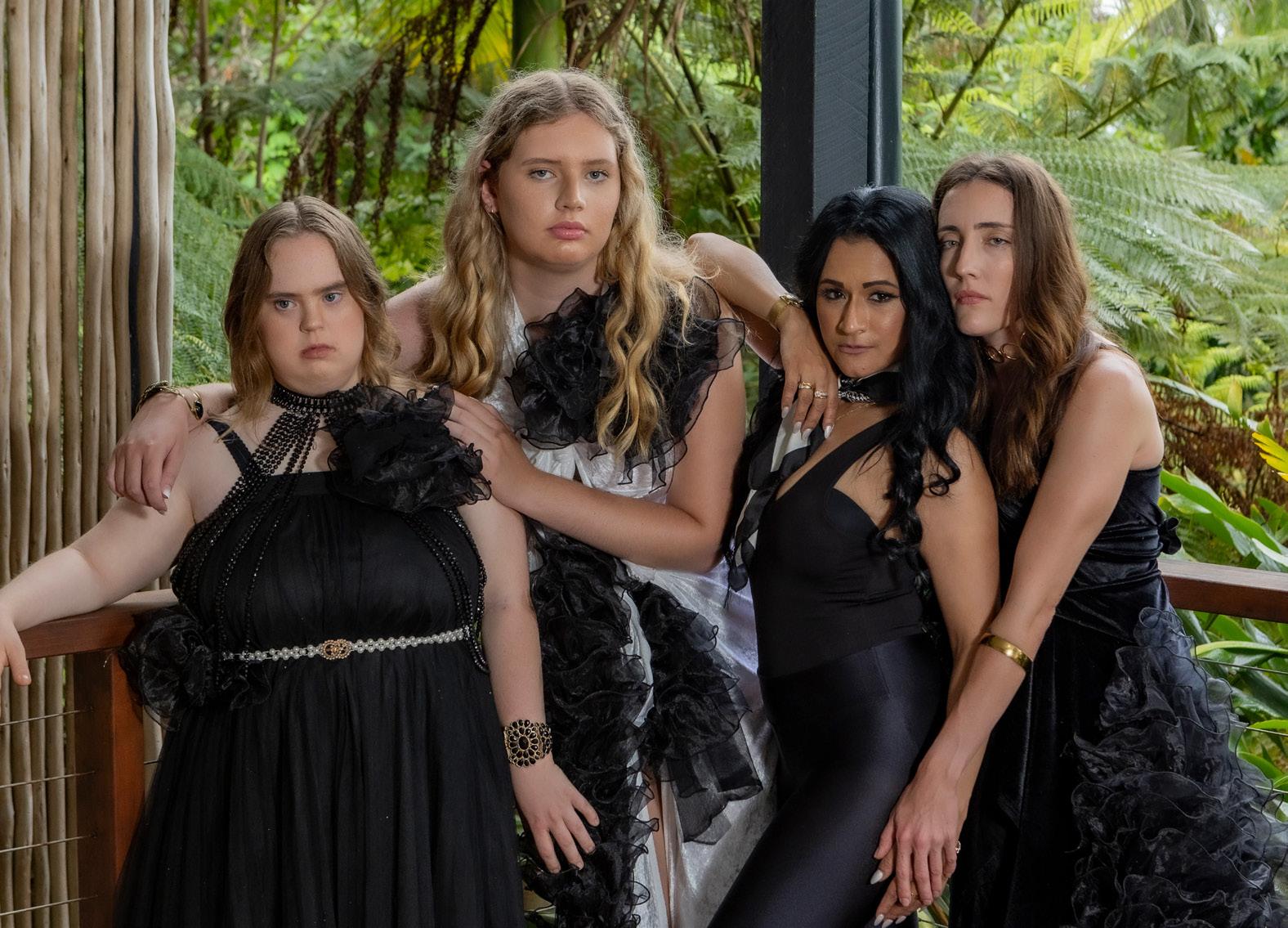
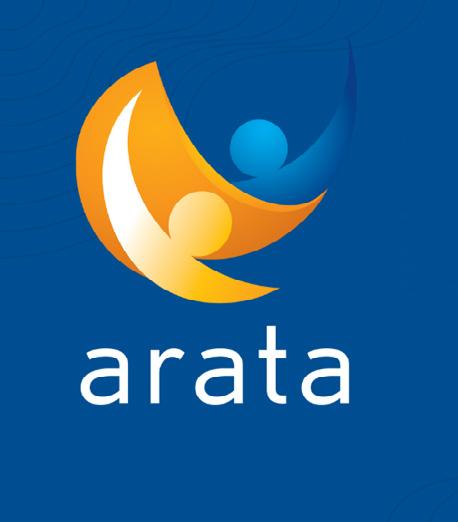
By
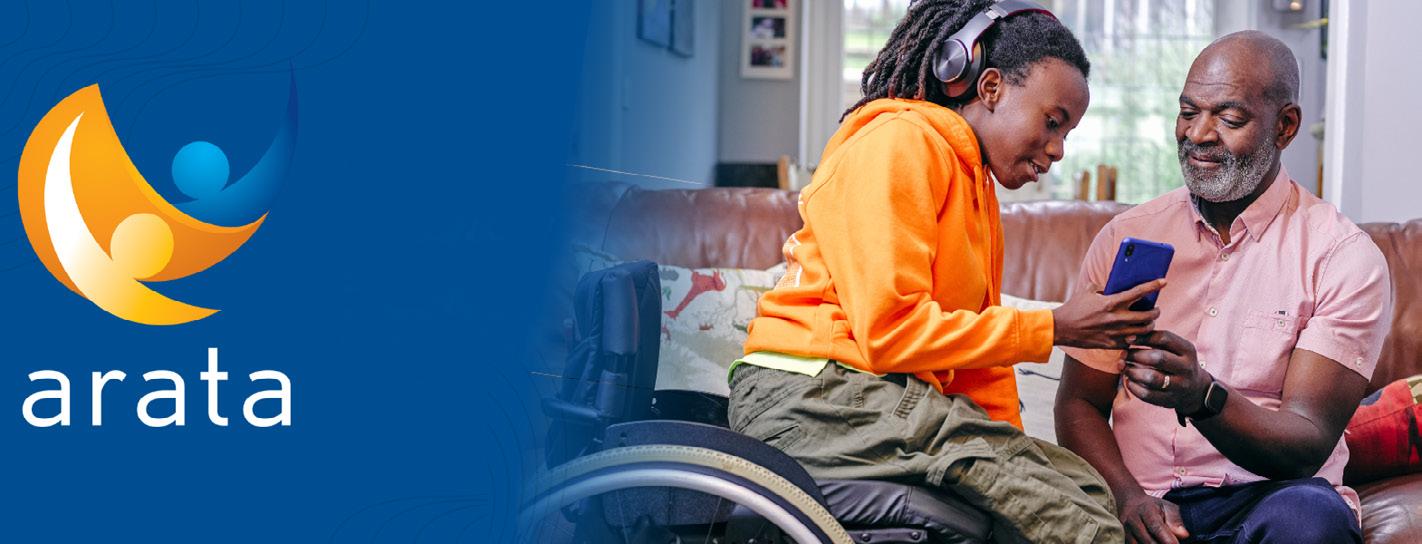
July 1, 2025 has been a looming date in the assistive technology sector for some time, as a planned milestone for policy reforms that will significantly shape assistive technology provision in Australia. Key changes were to include the introduction of the Support at Home Program for Older Australians, and an Assistive Technology and Home Modifications (AT-HM) Scheme within that program. However, the new Minister for Health, Disability and Ageing recently announced the Support at Home Program and AT-HM Scheme implementation would be delayed to November 1, 2025. Some key issues identified in the new AT-HM Scheme design include a lifetime cap of $10,000 for home modifications, which inadvertently may mean older Australians have to move into residential aged care if they cannot self-fund the home modifications costs to stay living at home. The new Aged Care Act guiding these reforms also proposes cocontributions for assistive products and services, which could cause inequities in AT outcomes that can be achieved.
More recently, and somewhat unexpectedly, major reforms were announced last month to how NDIS plans would be set up, and services would be funded. These changes included the introduction of funding periods where a budget is split across months or quarters within a 12-month plan) and a Annual Price Review and 2025-26 Pricing Arrangements and
Price Limits which continued a price freeze for most AT services for a seventh year, and also proposed a reduction in hourly rates for some AT advisory services (like physiotherapy and podiatry) and reduced payments for provider travel. Combined these NDIS reforms have significant implications for the provision of assistive products and services.
The new operational guide states that the AT budget should be put into period one of a plan so it can be used over the 12-month period and if this is followed, access to funding for AT should then be available as needed. However, there is a risk that NDIS participants will not have the funding required for AT advisory services (e.g. from a health professional) in the funding period window where they may need that input. The pricing reforms pose particular risk to NDIS participants in regional, rural and remote areas, or other areas of thin AT provider markets where providers need to travel long distances to meet with a person. The new approach also poses the potential to increase clinic-based AT advisory services to remain viable, when there is strong evidence that best practice is to deliver such advice within the homes and communities where a person will use their assistive products.
These policy reforms across both aged care and disability have been designed
with a focus on Scheme viability and sustainability, given the rapidly growing number of older Australians and people with disability. However, there is no doubt that some of the recent reforms in present significant risks to good AT outcomes for people with disabilities and older Australians. For this reason, the AT sector has been active and targeted in representing what these changes will mean for good AT outcomes, and how government could further consider reforms and adjust drafted policies and pricing accordingly to ensure these outcomes can be achieved. This targeted and sustained representation underscores the imperative that the sector remains united at a time where reforms may otherwise risk division, particularly of providers and participants.
Unity and collaboration within the AT sector at this challenging time will foster collaboration, shared knowledge, and a collective voice in representing the needs of individuals requiring AT, and the providers who can deliver these assistive products and services. Furthermore, a united sector can more effectively engage with policymakers, with the aim to contribute to development of informed and effective policies that reflect the realities and needs of those who rely on AT. This collaborative approach will enhance the sector’s ability to navigate challenges, adapt to changes, and continue to provide high-quality services to the community. The Australian Rehabilitation and Assistive Technology Association (ARATA) remains committed to working with government and supporting the AT sector with a focus on achieving good outcomes for all Australians.
*Associate Professor Libby Callaway is the immediate past president and strategic executive advisor, Australian Rehabilitation and Assistive Technology Association (ARATA).
Therapy that adapts as the patient does.
In pressure care, true innovation works quietly in the background. It doesn’t require constant adjustment or complicated settings — it simply delivers the right support, at the right time, for every individual. The CuroCell CX20 by Care of Sweden redefines what intelligent care means, blending automatic regulation, clinical confidence and comfort into one advanced system.
Every person presents differently — body shape, movement, condition, and risk profile. The CX20 responds to these variations by continuously regulating internal pressures based on weight, position and movement, automatically adapting as the person rests or shifts. The result is consistent, clinically effective pressure redistribution, delivered without the need for ongoing manual adjustments by staff or carers.
LESS INPUT. MORE OUTPUT.
Fully automatic regulation means no manual pressure settings or weight entry required — simply switch on. For clinicians responsible for prescribing support surfaces, this level of automation offers confidence. Whether managing existing pressure injuries or preventing them in vulnerable patients, the CX20 adapts dynamically as the clinical situation changes. Once in place, the system continues to monitor and respond, reducing the burden on staff while delivering continuous skin protection.
DID YOU KNOW?
Up to 95 per cent of pressure injuries are preventable with appropriate support surfaces and repositioning protocols, according to the European Pressure Ulcer Advisory Panel. The design of the CuroCell CX20 also supports functional movement,
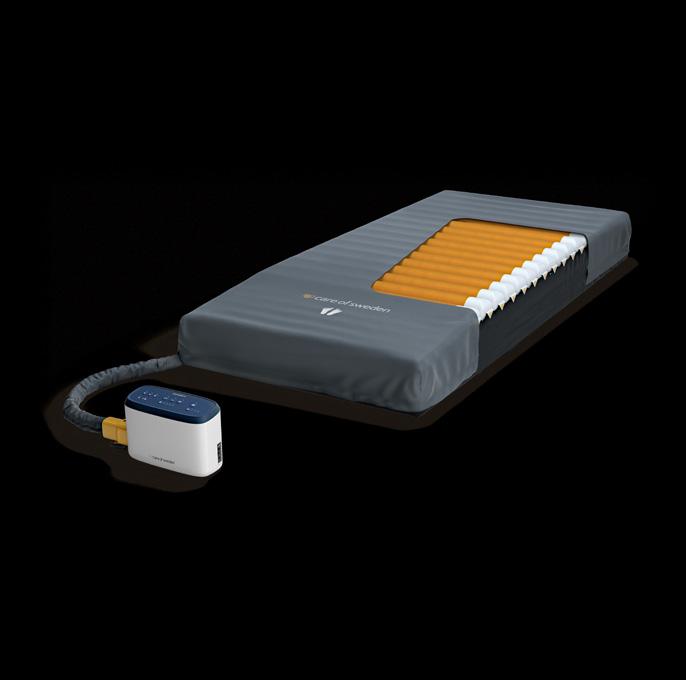
which is crucial in both rehabilitation and long-term care. Its cell-on-cell construction allows for deep immersion without compromising stability. This means patients can safely reposition, transfer, or engage in therapy, while still benefiting from effective pressure relief. Reduced shear and friction help protect skin integrity while allowing natural movement.
As the patient moves or changes position, the CX20 automatically regulates pressures to maintain effective support. Across changing care needs and environments, the CX20 offers long-term flexibility. Its versatility across multiple care environments — from hospitals to aged care to home settings — means clients can continue to use the same surface even as their care needs evolve. This not only simplifies care transitions but offers a practical and sustainable long-term solution.
The CuroCell CX20 is trusted in healthcare settings around the world. It simplifies care, supports clinicians, empowers carers, and quietly protects patients — 24 hours a day. In a field where simplicity and intelligence often seem at odds, the CX20 proves they can work perfectly together.
QUIET IN OPERATION.
Noise level: <20 dB — ideal for sleep quality and comfort. For the person lying on the mattress, the technology simply feels like comfort. The quiet pump operates at less than 20 decibels — quieter than a whisper — allowing for uninterrupted rest. Gentle transitions in pressure avoid the sudden shifts that can disturb sleep on some active systems, creating a calm and stable experience.
THE COST OF PRESSURE INJURIES. Average treatment costs $50,000+ per case, according to the Australian Commission on Safety & Quality in Health Care. The consequences of pressure injuries go beyond clinical outcomes — they carry significant financial costs. In Australia, treating a stage 3-4 pressure injury can exceed $50,000 per case, reinforcing the value of prevention for both patients and healthcare systems.
WE COME TO YOU, VICTORIA-WIDE. Crescent Healthcare offers the latest innovations alongside personalised service. Our dedicated equipment specialists are available Victoria-wide, including regional and remote areas. We provide on-site demonstrations to help clinicians and facility managers make informed decisions, or you can visit our Experience Centre to see a range of our Pressure Care Solutions first-hand.
Contact us.
To learn more or to book a product consultation, contact Crescent Healthcare:
Sales & Rentals: 03 8365 9990
Email: hello@crescenthealthcare.com.au
Website: crescenthealthcare.com.au
Address: 26 Metrolink Circuit, Campbellfield, VIC 3061.
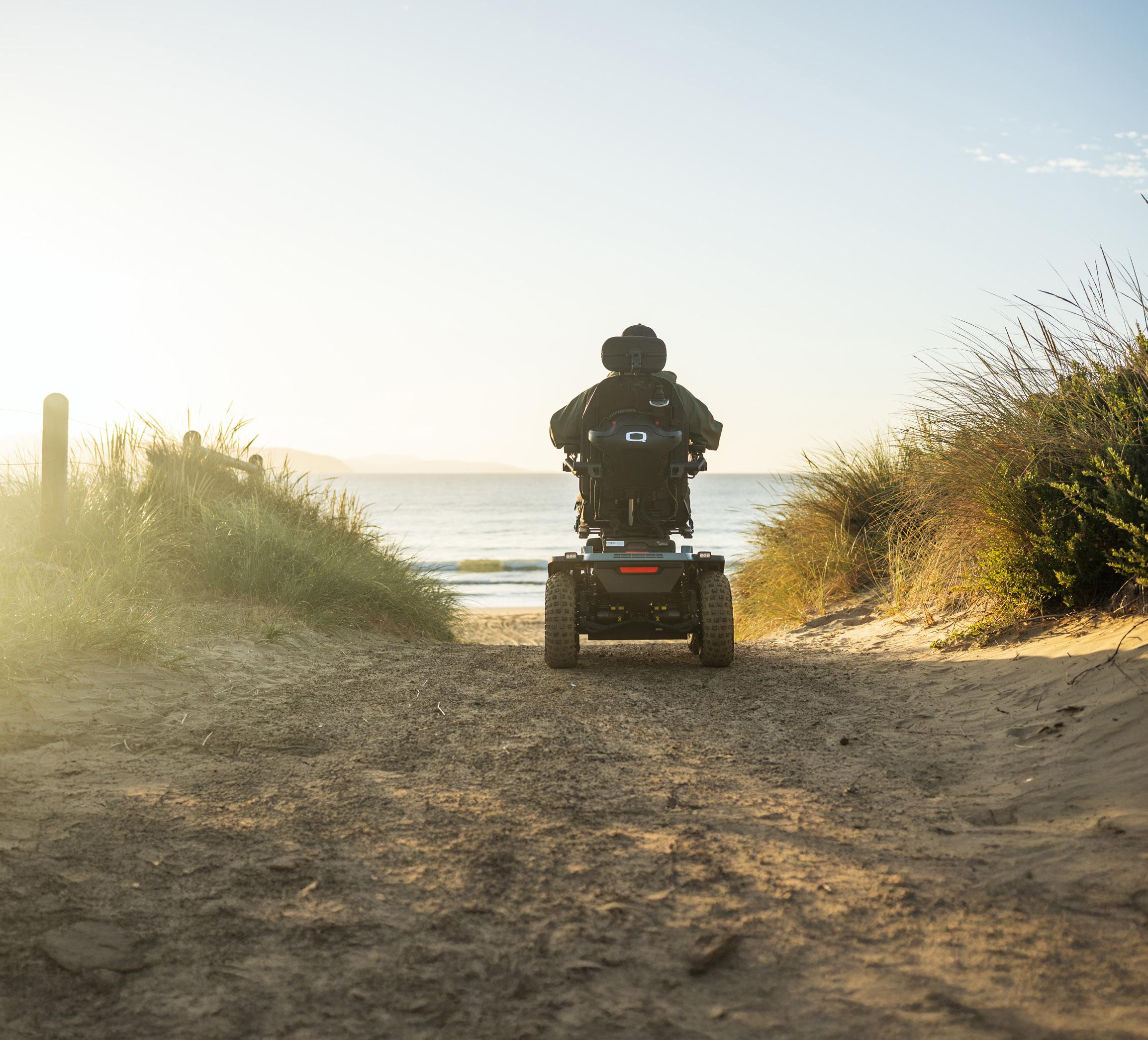
Since its Australian launch in 2024, the Quantum Outback 4x4 has been making serious tracks. Built for adventure, this powerhouse of a powerchair has received outstanding feedback for its performance, stability, and ability to take users where standard mobility devices simply can’t go.
Equipped with powerful 4-pole sealed motors, all-wheel drive, SRS (Smooth Ride Suspension), and 14-inch off-road pneumatic tyres, the Outback 4x4 is designed to conquer rugged trails, sandy beaches, and uneven terrain with confidence and control.
Whether you’re exploring national parks, coastal paths, or rural escapes, the Outback 4x4 gives you the freedom to experience nature up close — and on your own terms.
REAL ADVENTURES. REAL STORIES. This spirit of exploration is at the heart of the new ‘Get Amongst It’ campaign — a celebration of independence, discovery, and pushing boundaries.
A standout from this campaign is the “Get Amongst It with Stocky” series, featuring Cam Irwin (aka Stocky), a C7 incomplete quadriplegic, who’s been putting the Outback 4x4 through its paces across Tasmania. From rugged tracks to remote campsites, Cam and his mates show just how far you can go when you have the right gear — and the right attitude.
MORE FREEDOM. MORE VALUE. The Quantum Outback 4x4 continues to offer exceptional value, delivering high-end performance at a competitive price point.
“The 4x4 powerchair is a gamechanger,” said Andrew Gannan, business development manager for Quantum Rehab Australia. “It’s not just about mobility — it’s about unlocking independence and exploring places previously thought unreachable.”
From the bush to the beach, the Quantum Outback 4x4 invites you to Get Amongst It — and experience the freedom to go beyond the pavement.
Follow the “Get Amongst It with Stocky” series on the Quantum Rehab Australia YouTube channel or stay up to date via the Quantum Rehab Australia Instagram page to see the Outback 4x4 in action across Tasmania and beyond.
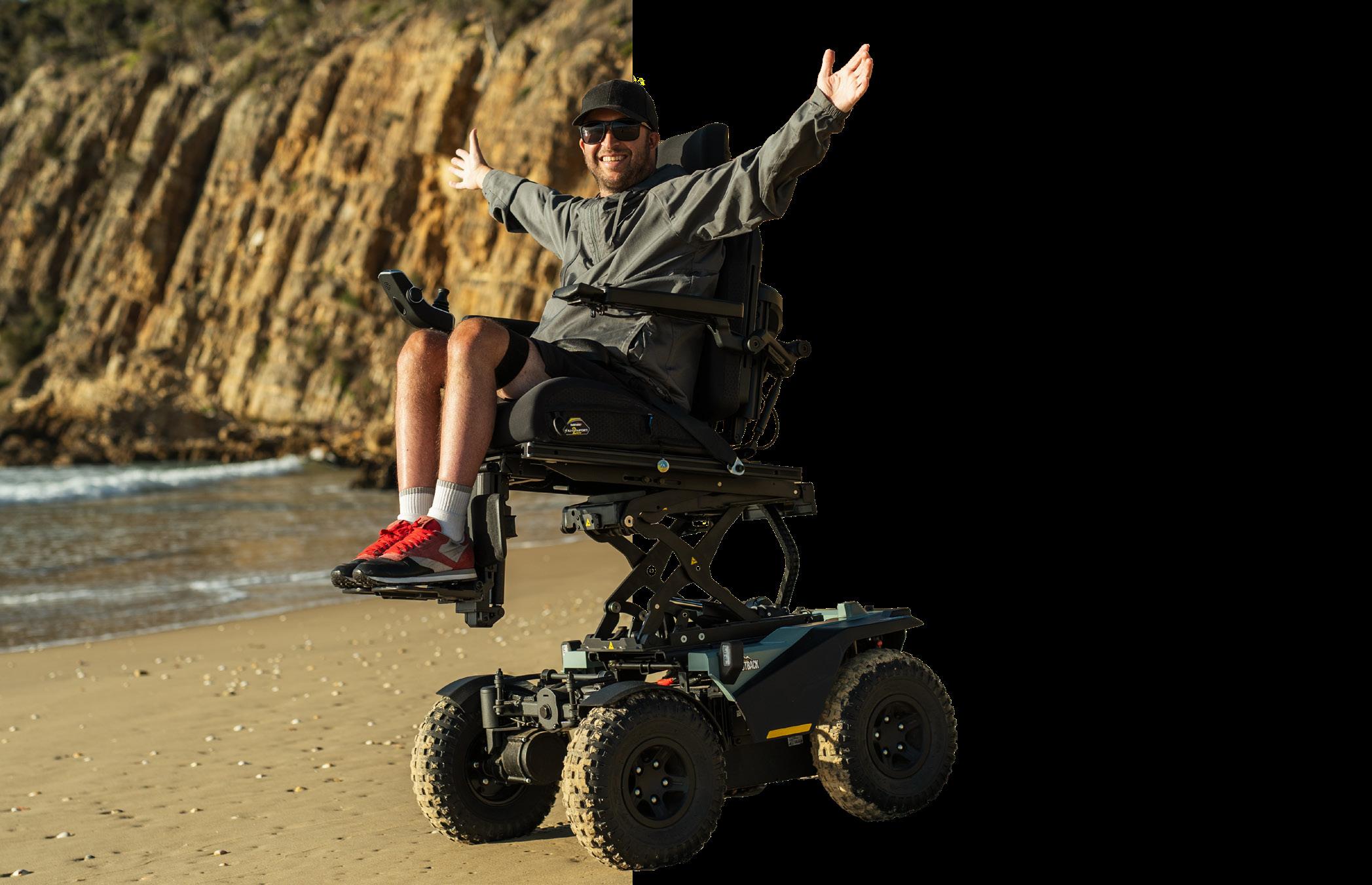



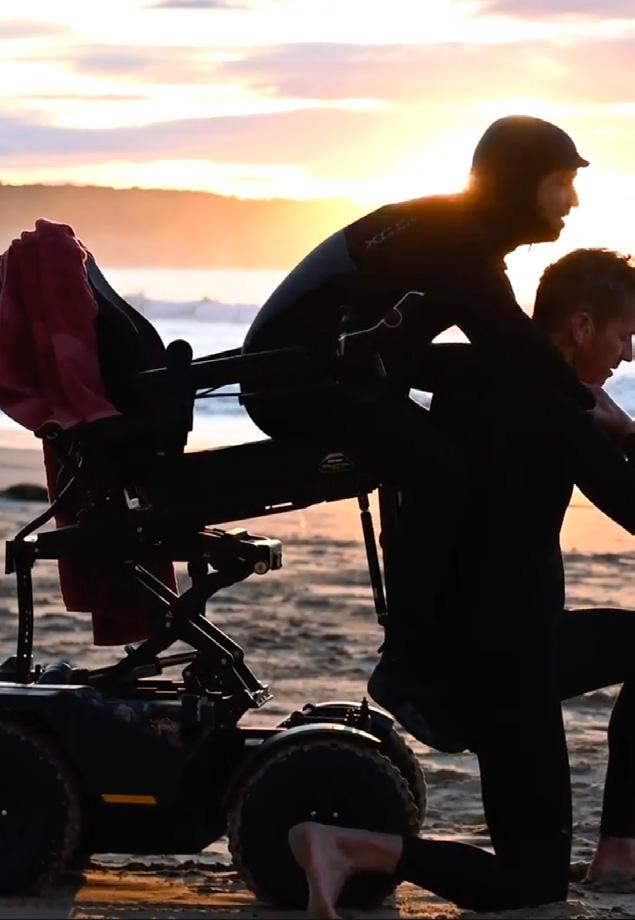

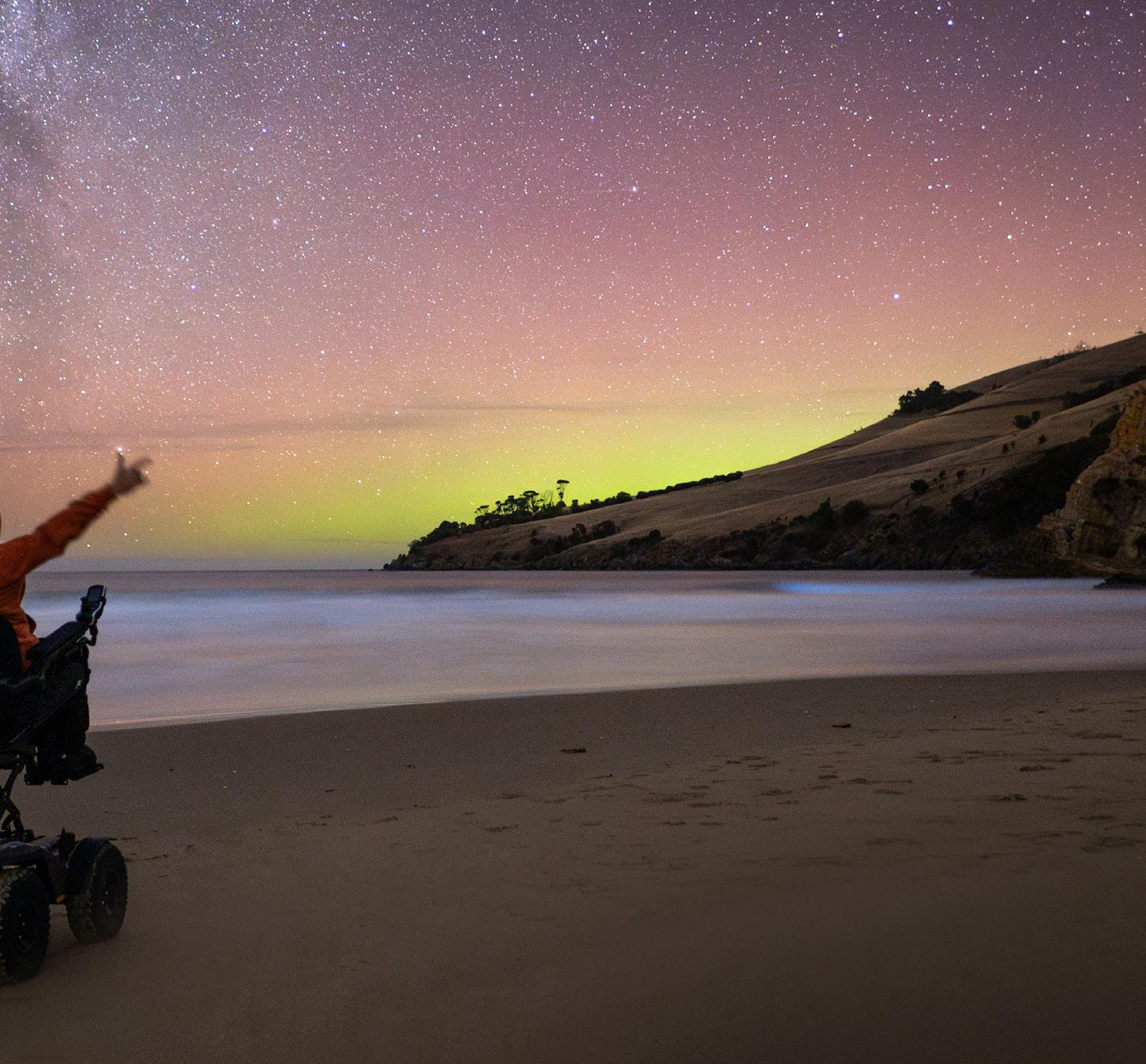

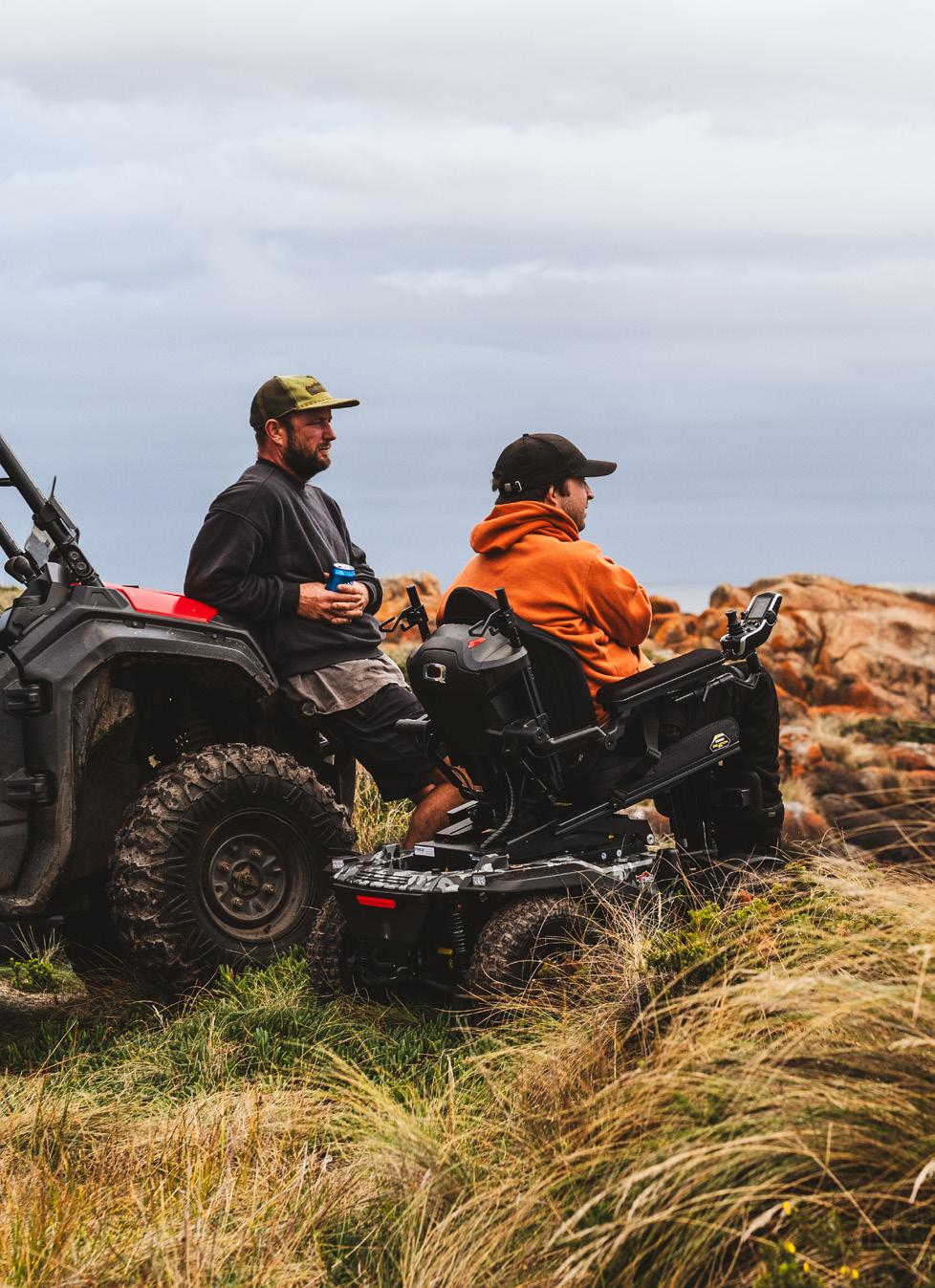
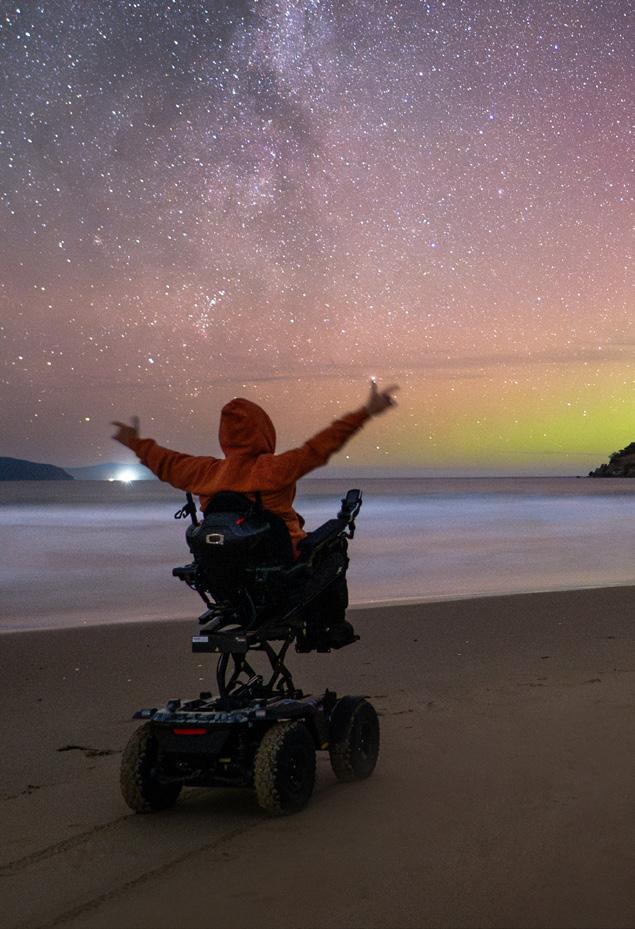
1.Cliffton Beach, Episode 3
2.Russel falls, Episode 4
3.Cape
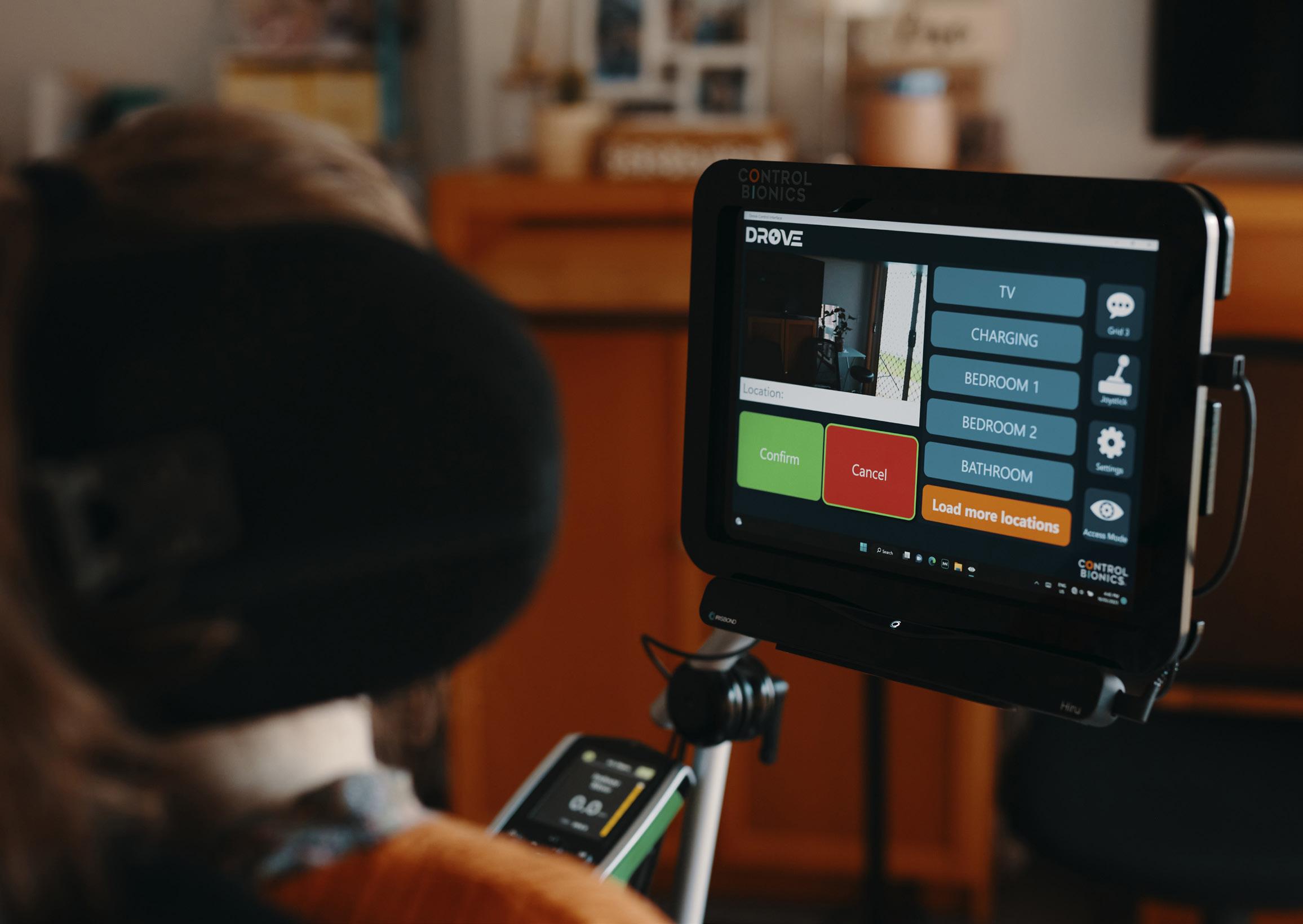
In the world of assistive technology, innovation doesn’t just mean advanced features, it means restoring dignity, control, and confidence to those who need it most. For individuals living with physical disabilities, one of the greatest daily challenges can be navigating their own home independently.
Traditional power wheelchairs require users to master the art of joystick navigation, something that’s simply not feasible for many individuals with limited motor function or neurological conditions. The result? A loss of freedom, increased reliance on carers, and limited engagement in everyday activities.
Now imagine a world where the wheelchair knows the way.
Introducing DROVE, a world-first, Australian-made autonomous wheelchair module designed specifically for home environments. DROVE reimagines how wheelchair mobility can work. By integrating directly with the user’s Augmentative and Alternative Communication (AAC) device, DROVE allows individuals to select from pre-defined home destinations, using
access methods tailored to their unique needs, such as touch, eye gaze, or NeuroNode switching.
Once a destination is selected, DROVE autonomously navigates through rooms and hallways while detecting and avoiding collisions with obstacles. It handles tight corners, narrow doorways and variable lighting conditions with precision, making independent movement a reality.
...A
a long time,” her mother said. That sense of relaxation came from feeling in control, moving where she wanted, when she wanted, safely and smoothly.
This innovative solution also empowers allied health professionals by enabling tailored access methods to result in reliable navigation. DROVE allows therapists to support independence while reducing the physical and cognitive load on users and carers alike.
For people with complex needs, DROVE offers more than just movement. It delivers confidence. With seamless AAC integration, users can communicate and control without switching systems, streamlining daily routines and encouraging more frequent, meaningful interactions with their environment.
The outcomes speak volumes.
Brodie, a young woman who trialled DROVE, had an experience her family will never forget. “Brodie was more relaxed than we have seen her in such
With safe, consistent navigation, intuitive access options, and a design focused on dignity, DROVE is more than a mobility solution, it’s a pathway to fuller participation in life at home.
Are you ready to see how DROVE can enhance independence for someone you support?
We invite individuals, families and healthcare providers to contact us today at drove@controlbionics.com to arrange a personalised trial and experience the future of home-based assistive mobility.
DROVE is a world first, Australian made autonomous wheelchair module that enhances mobility for power wheelchair users with limited joystick control. Experience increased independence and safety with our innovative in-home solution that autonomously drives your wheelchair to the chosen destination.
Features
- Safe, reliable navigation to multiple destinations within the home
- Select destinations via touch, switches, eye gaze and/or NeuroNode switch access methods
- Ability to precisely traverse through doorways in the home
- SAFETRAK obstacle detection safety system
Benefits
- Provides you the independence to take yourself where you want to go
- Use your existing speech generating device to control DROVE
- Simple and easy to use interface
- Promotes active movement and engagement with surroundings
“Brodie was more relaxed than we have seen her in such a long time.”
Donna Shaw, Mother of Brodie Shaw, DROVE case study
see it in action
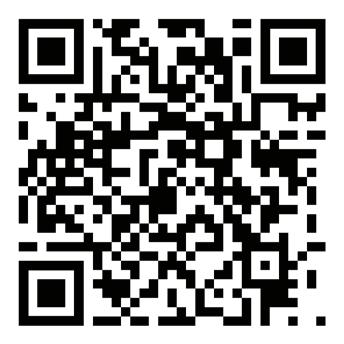
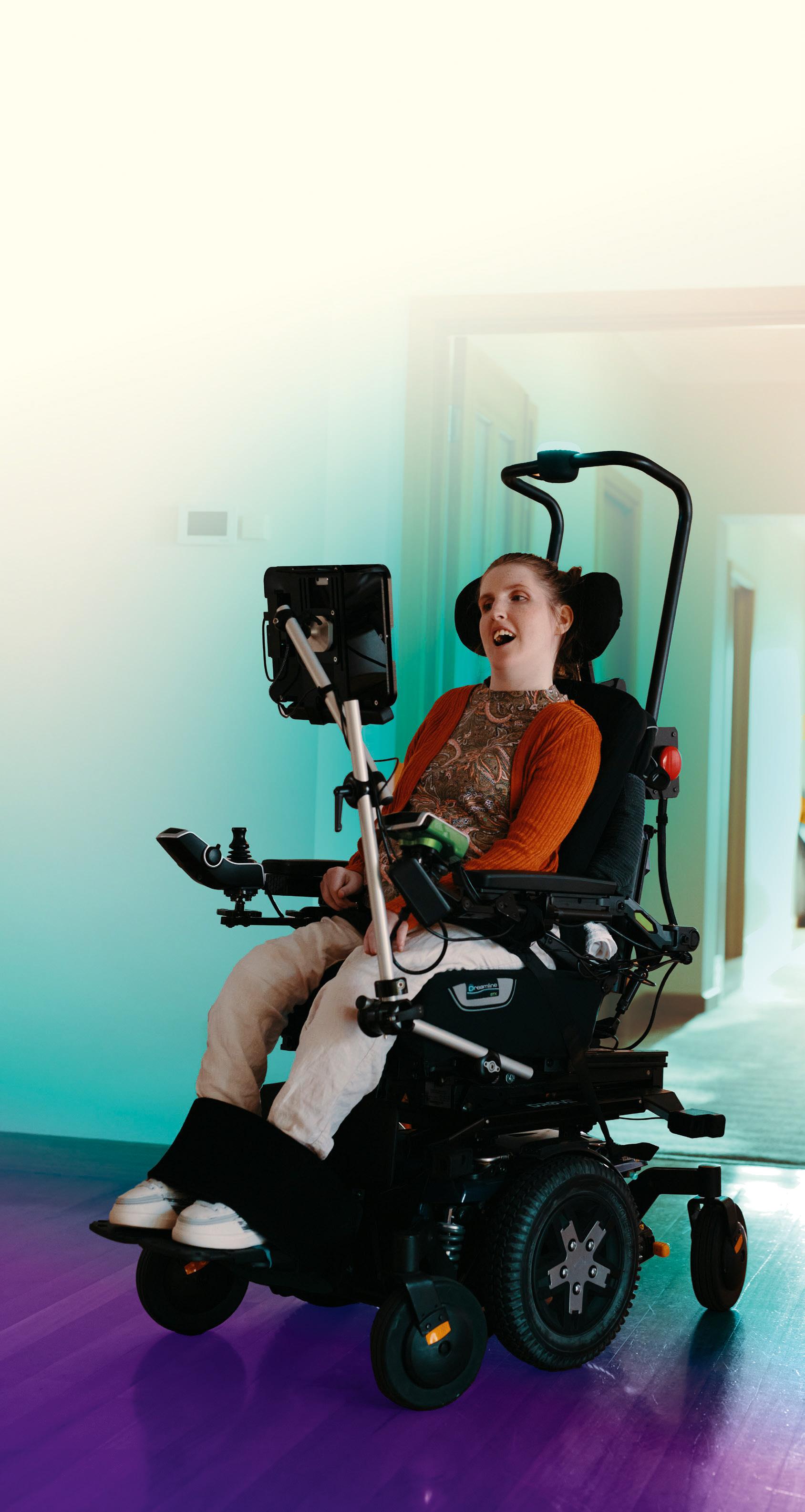
For individuals who require long-term seating and repositioning support, choosing the right manual wheelchair isn’t just about mobility—it’s about enhancing quality of life through smart, responsive design. The PDG M50 is leading the way in advanced tiltin-space technology by combining generous tilt, excellent clearance, and superior manoeuvrability —all in a highly durable, userfriendly package.
At the heart of the PDG M50 is its impressive 50 degree of posterior tilt, enabling caregivers and users alike to manage posture, redistribute pressure, and support comfort throughout the day. This degree of tilt plays a critical role in pressure injury prevention, especially for users with limited ability to reposition themselves. The deep tilt range allows for full body weight redistribution onto the backrest, helping offload the sacrum and ischial tuberosities— common sites for pressure-related skin breakdown. It also supports head and trunk control, improving alignment and respiratory function when used strategically.
But what truly sets the M50 apart from other manual tilt-in-space wheelchairs is its unique tilt system design: the centre of mass shifts directly over the rear wheelbase during tilt activation. This is a game changer. Traditional tilt systems often cause the base to pitch forward or backward as the seat tilts, increasing rolling resistance or compromising stability. In contrast, the M50’s centre-of-mass tilt keeps the frame balanced over the large drive wheels—reducing effort to
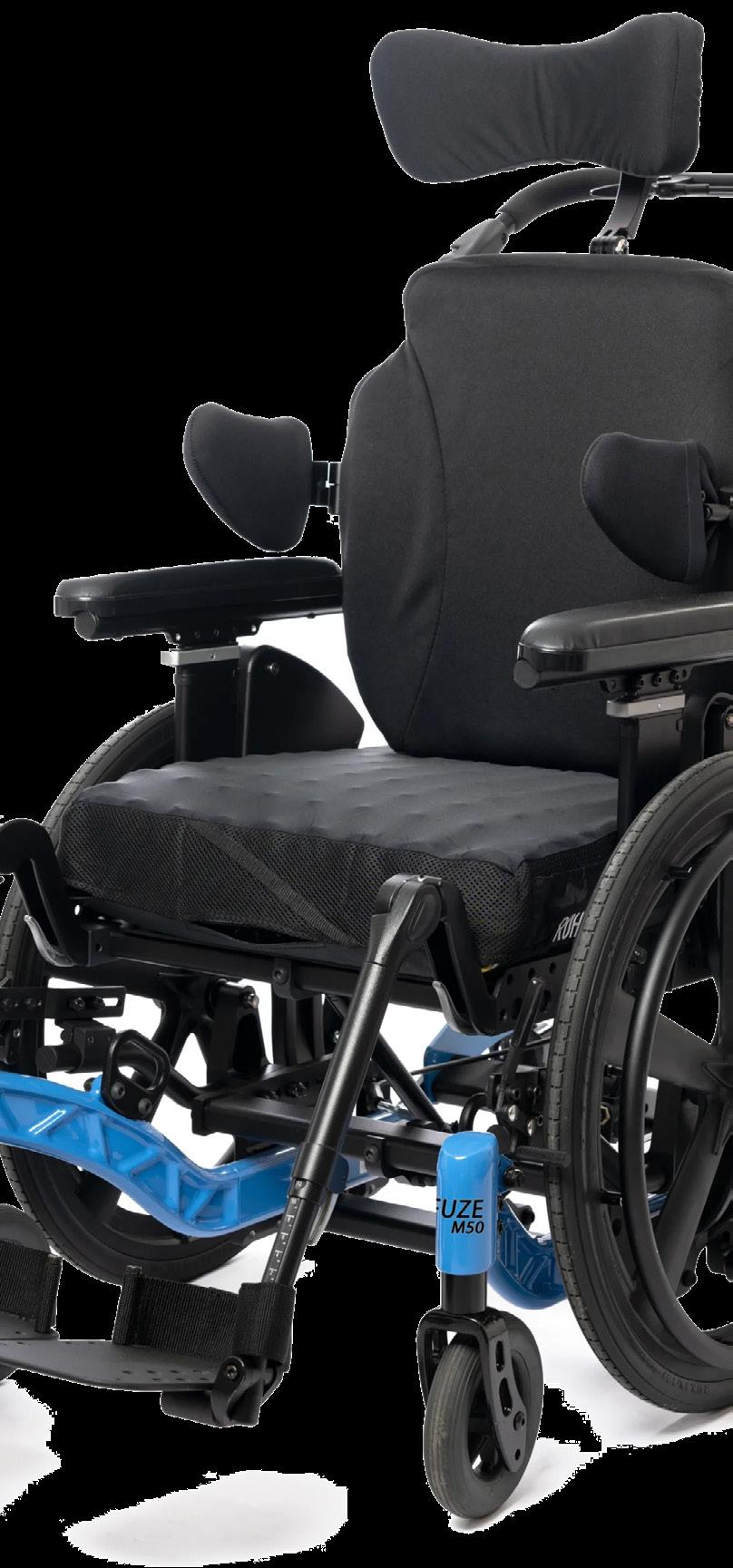
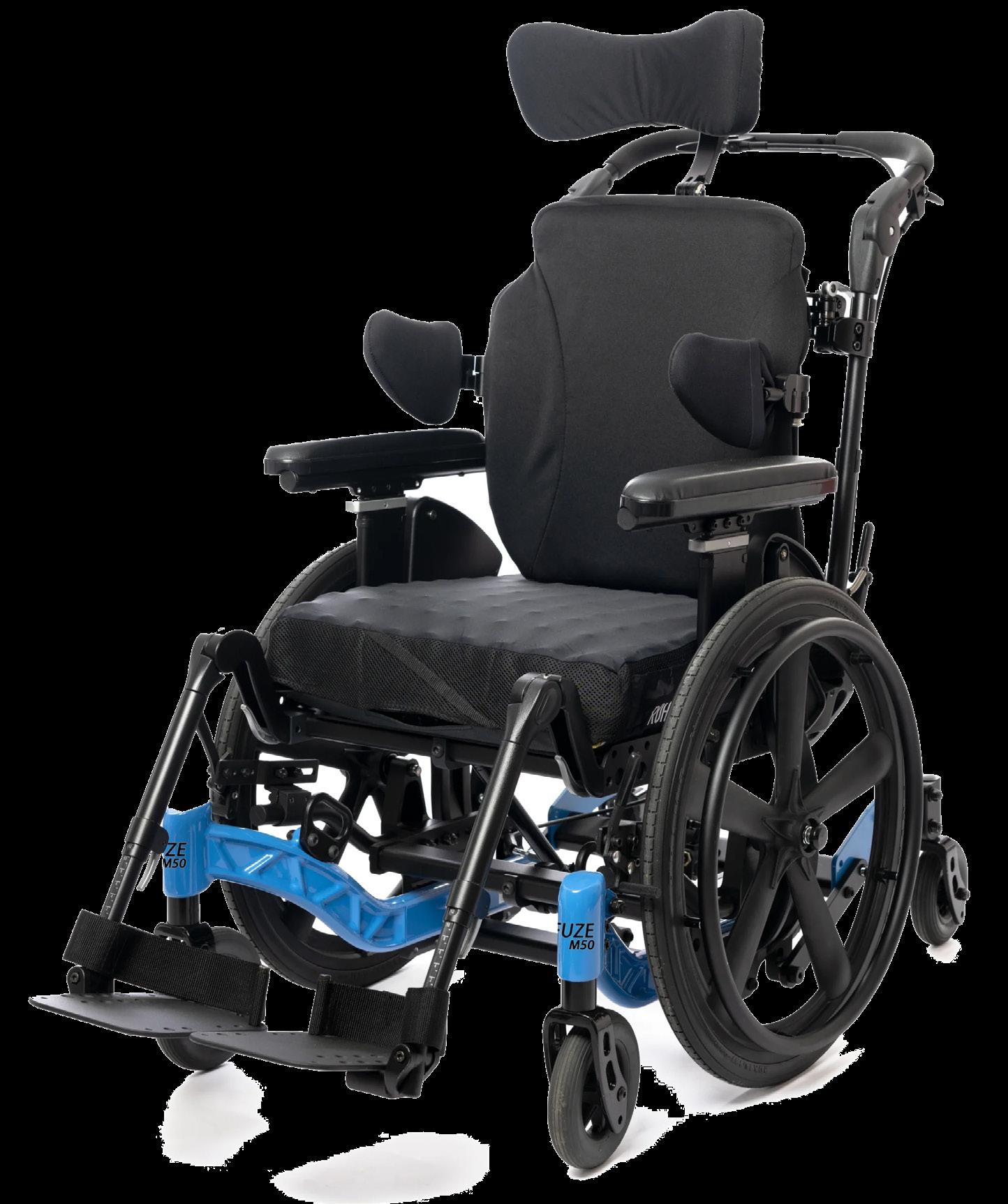
propel or move the wheelchair, even when tilted. This means a caregiver can reposition the chair with greater ease, and users benefit from smoother handling during transport or daily movement.
The M50’s design also boasts a tight turning radius, a major benefit in real-world environments where space is at a premium. Whether navigating
narrow hallways at home, turning in tight rooms, or positioning in a bathroom or transport van, the M50 responds with agility and minimal disruption to the user’s position. The short wheelbase and responsive steering make it far more functional in small environments compared to bulkier tilt-inspace models.
One more standout feature is the front caster clearance— up to four inches during tilt activation. This added ground clearance is especially beneficial when navigating thresholds, uneven surfaces, or ramps. By lifting the front casters during tilt, the M50 reduces the risk of tipping or catching the wheels, promoting smoother transitions across varied terrain and enhancing safety during transfers and tilting.
Ultimately, the PDG M50 delivers a bestin-class combination of function, safety, and usability. It supports the clinical goals of pressure relief, positioning, and comfort while also considering the practical needs of caregivers and environments. Its lightweight yet robust frame, intuitive handling, and enhanced ground clearance offer realworld advantages that are hard to match.
... A MANUAL TILT WHEELCHAIR THAT GOES BEYOND BASIC FUNCTIONALITY
For users and clinicians seeking a manual tilt wheelchair that goes beyond basic functionality, the PDG M50 is a standout performer— balancing performance with precision in every tilt.


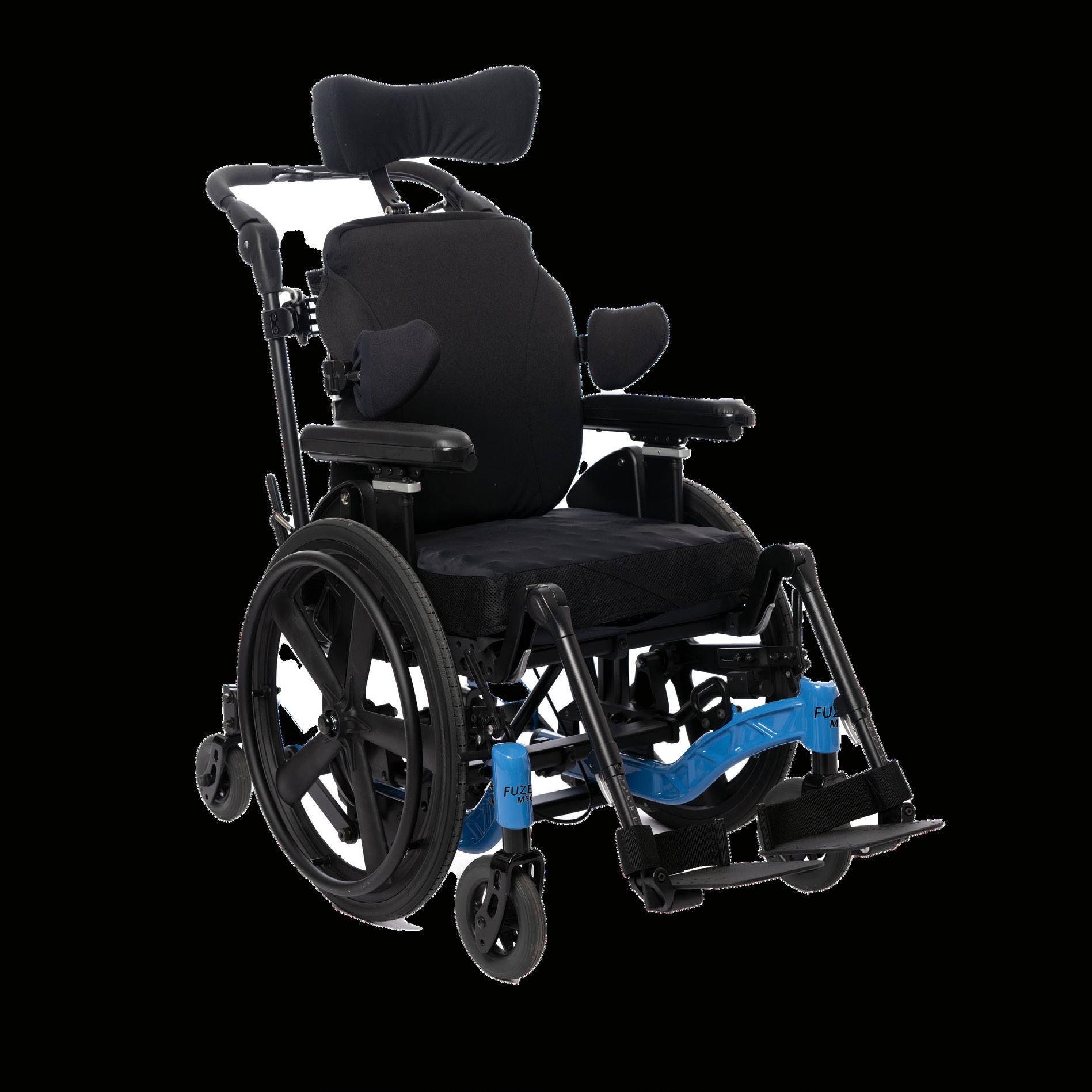
Tip Activiation: Up to 4" of f ront caster clearance
Seat: Up to 181 kg weight capacity
Til t Mechanism: Up to 50° of tilt

6 Wheel: Mid-wheel drive approach for tight turning radius
Experience 50° of pressure relief and positioning tilt while maintaining optimal drive wheel access for independent maneuverability.
Easily climb obstacles with the new Tip Activation that releases the rear casters and allows for up to 4" of front caster clearance, designed for improved environmental access.
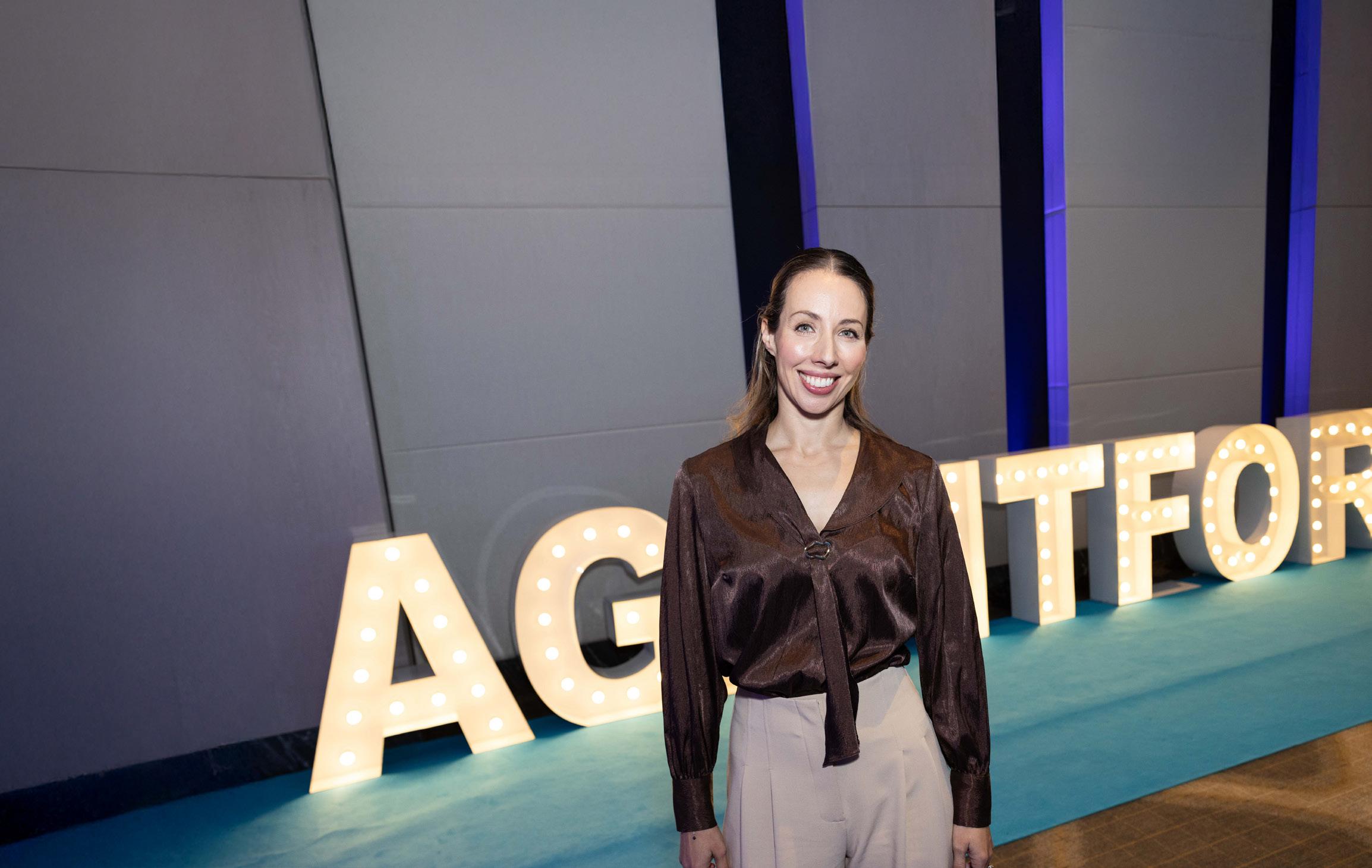
Artificial Intelligence has been described as the biggest technology in our lifetime, and Northcott Disability Services are not being left behind.
“Accessibility and inclusion are a crucial part of how we transform all the possibilities of AI, and our commitment as we go through with these changes is about widening the gap and not leaving anyone out.”
Speaking at a keynote on diversity and inclusion in AI development at an Agentforce Salesforce Summit in Sydney was Northcott operational development manager, Tara Ozturk.
“Northcott transitioned to the Salesforce system several years ago because we needed to know what business processes and platforms would be required to be future ready to achieve the goals we are looking for,” she told Link .
“AI delivers so much potential when it comes to the system benefits and that includes better workflows. As a Disability Services Provider AI will totally change the way our staff can access information about people and their support procedures. It can also change how our customers interact with us and receive information in real time,” she said.
“AI works when you have real quality data, but there is a risk if you are not prepared around security and having good governance, by using it ethically and responsibly and make sure private and sensitive information is kept safe. We must be aware of how we rely on AI and where to have human oversite for minimising any risks as to what this technology can and cannot do.
“One of the features we have with our new platform is with NDIS indexation. Our previous system would involve account managers working with fund managers to update their contracts. The new platform has a built-in feature for indexation that automatically updates contracts that makes a huge difference in processing and saves so much time.”
The advantage of attending the summit was finding out about what AI can do, and summarisation was the obvious one, she said, and an example of this was the customer with a 65-page behaviour plan. “AI can summarise this information, and that is valuable from a workforce point of view.”
Also speaking at the summit was Catherine Nichols, chief accessibility officer at Salesforce who said AI brings opportunities for people with disability onto a level playing field.
“One billion people identify as having a disability and it is a market you don’t want to miss out on provided your product is the right one.”
She described AI as a powerful technology everyone can benefit from that has a ton of potential. “But we must make sure people with disability and diverse teams are included in the process, not just creating and testing AI systems but more importantly implementing those systems and getting real time feedback from them too,” she said.
And it was important to have accessibility as part of that journey and work with people with disability or lived experiences who must be part of it. “We don’t consider we are the experts, we talk to our customers about their individual needs, and all considerations should be kept in mind,” Nichols said.
Salesforce is a US software group that helps companies build and deploy autonomous AI agents across all business areas, including sales, customer service, marketing, IT, finance and commerce. Salesforce plans to invest $2.5 billion in Australia over the next five years to support AI innovation, workforce development and sustainability initiatives.
Delivering freedom and independence for over 35 years.
Wheelchair Sales are all about helping people find the right mobility solution to suit their lifestyle. Whether you need a lightweight wheelchair for everyday use, a powerassisted model for extra support, or a custom-made design tailored to your needs, Wheelchair Sales have got you covered, because comfort, independence and reliability matter.
accessories. Shopping is easy - browse the online store or reach out to the team for expert advice with shipping Australia-wide.
... TAILORED SOLUTIONS FOR PEOPLE WITH SPINAL INJURIES, NEUROLOGICAL CONDITIONS AND UNIQUE
Find the perfect match for your wheelchair needs from a wide range of manual and power wheelchairs, sports and recreation models, and essential
The Sydney-based company services New South Wales and Queensland, offering tailored solutions for people with spinal injuries, neurological conditions and unique care requirements in addition to customised commode wheelchairs. This range combines comfort, hygiene and mobility, with fully adjustable, high-quality solutions that support daily independence and carer ease.
Whether you need tilt-in-space, height-adjustable, or fully custom-moulded seating, we deliver bathroom mobility solutions with precision and compassion.
For over 35 years, we’ve specialised in complex rehab and high care needs across NSW & QLD. Spinal injury and neuro care focused, pressure relief and postural support, NDIS and therapist preferred. Tailored commode wheelchair fittings.
We take on the jobs others won’t.
From tilt-in-space to height-adjustable frames and custom-moulded seating, each commode perfectly suits the client’s clinical and environmental requirements.
Brands include Lagooni, Roarke, Raz and Tuki and Traveller commodes while Lagooni Traveller commode, Roarke Traveller and Tuki are for those taking their commodes on holidays. A Shower Commode is also available.
The company works with occupational therapists, hospitals and NDIS participants.
Explore the full range of commode wheelchairs at: wheelchairsales.com.au
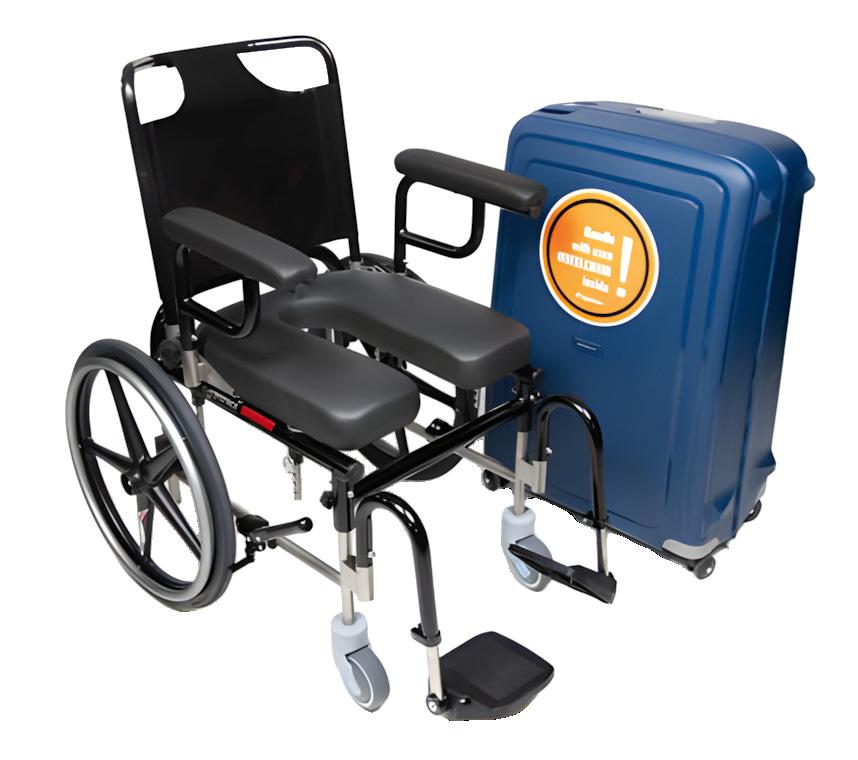
Exploring the benefits of the Klaxon Klick range
Front-mounted power add-on units continue to evolve what’s possible in manual wheelchair mobility. While their primary purpose is to preserve shoulder health and support long-distance travel, research highlights a broader spectrum of advantages that embrace daily independence and overall wellbeing.
ADVANTAGES OF FRONTMOUNTED POWER ADD-ONS
• Preservation of shoulder health: Daily manual wheelchair propulsion, particularly over long distances or uneven terrain, can lead to fatigue, shoulder pain, and potential injuries. Power add-on units significantly reduce these risks, supporting long-term function and independence in daily activities.
• Enhanced mobility over diverse terrains: By lifting the wheelchair’s front castors, these devices enable smoother travel over obstacles such as bumps, curbs, grass, and gravel— expanding the ability to access environments with safety and confidence.
• Extended travel range and independence: By providing powered assistance, users can cover greater distances while conserving energy for other essential daily tasks.
• Enhanced participation and quality of life: Power-assist technology is linked to increased social participation and improved quality of life among wheelchair users. Users report greater satisfaction and engagement in daily activities, attributing these improvements to the enhanced mobility and independence provided by power add-ons.
THE KLAXON KLICK RANGE
The Klaxon Klick series embodies all these benefits, with advanced technology and a range of models to suit different lifestyles and mobility needs:
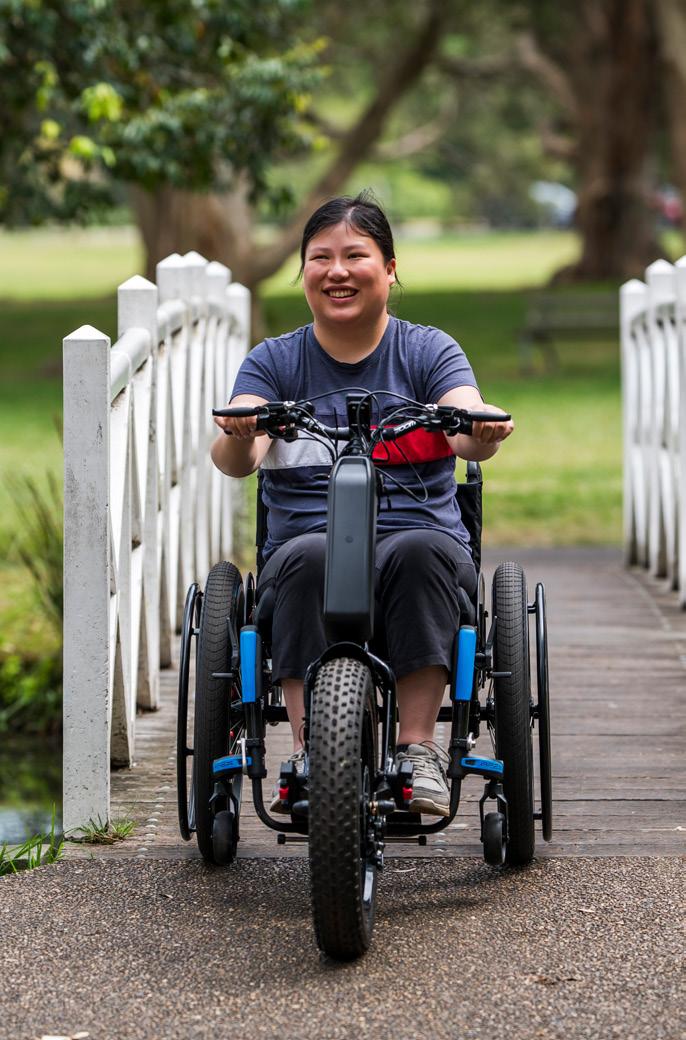
• Klick Mini Carbon: a sleek, ultralight unit that provides freedom, fun and everyday performance for access over level grounds.
• NEW Klick Light: Ultra-lightweight and easy to transport, it’s ideal for teens, adults, or anyone seeking a compact and convenient solution.
• NEW Klick Scrambler: Designed for adventurous users and rural terrain, it combines a powerful 750W motor with a rugged off-road wheel for confident, all-terrain use.
• Klick Power: A versatile option that balances strength and agility for everyday urban travel.
• Klick Race: Delivers high performance and thrilling speed across diverse surfaces.
• Klick Monster: The powerhouse of the range—built to tackle sand, gravel, and rugged trails with unmatched control in extreme conditions.
Klaxon Klick units stand out for their combination of innovative linking
technology, advanced electronic features, customisable options, and user-centric design.
• Patented Klick Linking system allows for quick and effortless attachment and detachment of unit to a manual wheelchair. It’s designed to be user-friendly, even for individuals with limited upper limb function, and compatible with a wide range of wheelchair types, including foldable models.
• Advanced Electronic features:
o Intelligent Cruise Control (ICC): Maintains steady speed uphill or downhill, reducing the need to continuously hold the throttle and enhancing comfort during longer journeys.
o Electronic Braking System (EBS): Allows for electronic braking using a dedicated button or brake lever, with regenerative braking that recharges the battery during deceleration.
o Motor Direct Control (MDC): Provides precise and effortless acceleration and braking through an ergonomically designed throttle.
• Battery options: Klaxon offers various battery capacities to accommodate individual travel needs and catering to varying range requirements.
Incorporating a front-mounted power add-on into a manual wheelchair setup offers a multitude of functional benefits. As research continues to support the positive impact of power add-on units, these front mount units stand out as a valuable investment in promoting independence and enhancing the quality of life for manual wheelchair users.
To learn more about Astris PME’s range of Klaxon Power Add-Ons including the innovative Klaxon Twist, contact our team at 1300 131 884 or email sales@astris-pme.com.au.
The C-Pen Reader is a handheld, text-to-speech device that’s helping healthcare professionals support clients with reading challenges — promoting greater independence and reducing literacy-related stress.
Used widely by speech pathologists, occupational therapists, psychologists, and disability specialists, the C-Pen Reader scans printed text and reads it aloud instantly. It’s ideal for individuals with conditions such as dyslexia, ADHD, autism, aphasia, acquired brain injuries, or age-related cognitive decline.
“The C-Pen empowers clients to understand written information without needing constant assistance,” said David Campbell from Scanning Pens.
“It’s particularly useful in therapy, assessments, or everyday interactions like reading medical forms or
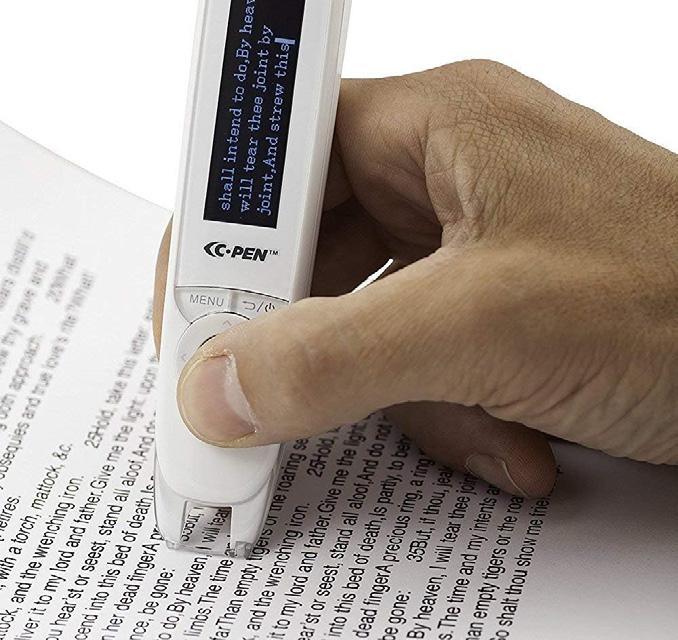
instructions – or just reading a book or magazine.”
The device can be tailored to suit the needs of the user and includes adjustable reading speed, multiple voice accents, and left/right-hand orientation. It also includes built-in dictionaries and multiple language options.
By improving access to text, the C-Pen helps reduce frustration, anxiety, and dependence — making it a valuable tool in clinical, community, and rehabilitation settings.
“It supports client dignity and confidence, especially for those recovering from stroke, managing a learning disorder, or facing literacy loss with age,” Campbell said.
Healthcare professionals can access a free 30-day trial of the C-Pen Reader 2 or Reader 3. The trial includes full support resources, including training videos to ensure smooth implementation.
The pen was awarded Australia’s ‘Best Assistive Technology Product of the Year’ in the Disability Service Awards.
To order your free trial or learn more, visit scanningpens.com.au

People from Australia, New Zealand and Asia attended the recent ATSA Independent Living Expo’s in Perth and Melbourne in May. The events - by the industry, for the industry - offered four days filled with new assistive technology (AT), product demonstrations, discussions and presentations.
Thousands of therapists, families and carers walked through the doors, eager to learn about the latest innovations.
Attendees had the opportunity to hear from leading experts in the expo’s seminar program and shared their appreciation for the knowledge and new ideas they gained.
Another highlight was the adaptive fashion show, whilst the Sports Zone provided a chance to try out various accessible sports, with athletes on hand to offer pointers.
ATSA CEO Serena Ovens said: ”ATSA expos just keep growing and improving each and every time we roll them out across the country. I’m blown away by
the range of technology on offer and the ever-increasing innovation across all categories of equipment available. To see the excitement of allied health professionals and end users alike as they test and trial the AT on hand never gets old!”
ATSA Expos in 2026 kick off on March 18-19 at the Adelaide Showground, the Sydney Showground May 13-14 and the Brisbane Convention & Exhibition Centre on May 20-21.
Attending an ATSA Independent Living Expo comes with a host of benefits:
• Discover new technologies: Stay ahead of the curve and learn about the latest assistive technologies available today.
• Hands-on experience: Get hands-on and try out different technologies, allowing you to identify the best fit for your needs.
• Expand your network: Connect with others already utilising assistive technologies and gain valuable insights from their experiences.

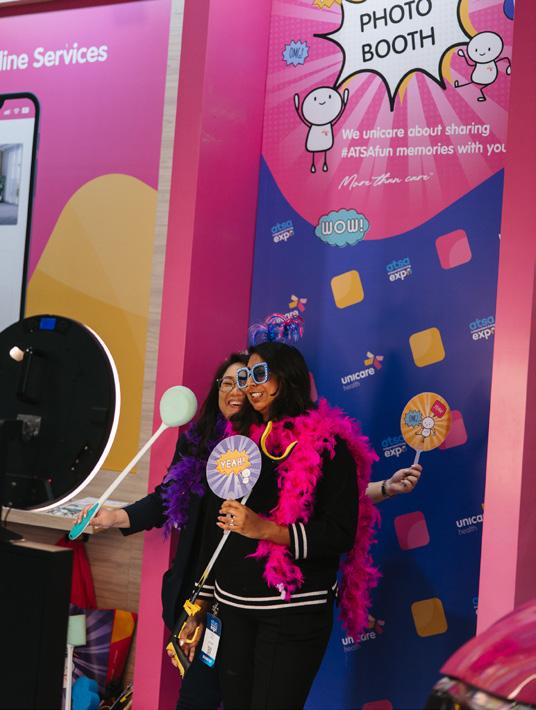


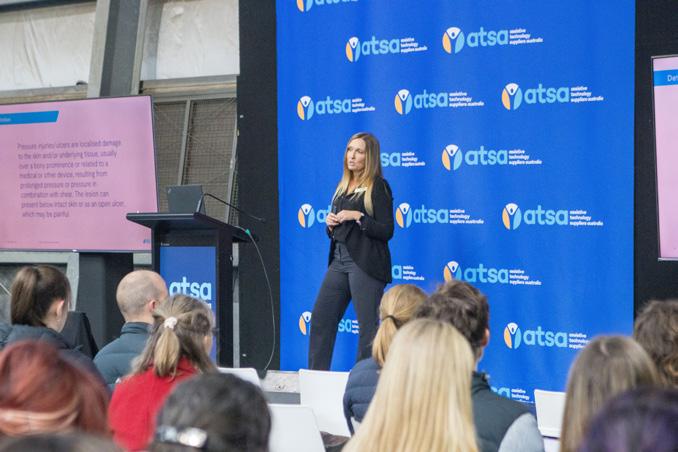
• Learn from the best: Benefit from presentations by leading experts in the field of assistive technologies, enriching your understanding.
• Get personalised assistance: Exhibitors’ knowledgeable staff will be on hand to answer your queries and offer valuable guidance throughout the event.
Mark your calendar now and register early. You can register for free to attend the 2026 ATSA Independent Living Expos.
For details visit expo.atsa.org.au email events@atsa.org.au or call (02) 8006 7357 and follow us on Linkedin and Facebook.
ATSA hosted their second Gala Dinner in Melbourne on May 20 for over 300 guests. The evening celebrated ATSA’s 25th anniversary and the opportunity for the sector to look back at what has been collectively achieved.
It recognised five outstanding people who have helped shape, grow and elevate the industry in remarkable ways, bestowing each winner with a ‘Acknowledgment of Service to Industry’ Award, presented to Ash Daff, Michael Callahan, Errol Hyde, Ian Mortimer and Malcolm Turnball.
ATSA presented 11 other awards for the following achievements:
Best New Product of the Year - Laveo Dry Flush Toilet; Innovative Product of the Year - Voiceitt; Dealer of the Year - Country Care Group; Supplier/Manufacturer of the YearUnicare Health; Product Consultant of the Year - Frankie Britt, Total Ability; Industry Person of the Year - Lena Ibrahim - Dejay Medical & Scientific; Commitment to Excellence - Pearl Chan, Unicare Health; Best Large Stand - Unicare Health, Perth - presented in Perth and MediFab - Melbourne; Best Small Stand - TabTimer (Perth) and Rolapal (Melbourne); Best Exhibitor Marketing Campaign - Unicare Health (Perth) and Mobility Engineering (Melbourne) and Most Preregistered Seminar Session – Sarah Collison, Verve OT Learning, (Perth) and Lauren Kerr, Linds Rehabilitation Equipment (Melbourne).
Competition for each award was fierce, with judges noting the incredible quality of applications, with some extremely close outcomes in many categories.
Winner of the Best New Product category, DryFlush Australia general manager Kevin Mailer said: “We’re absolutely stoked to have won the 2025 ATSA Best New Product Award, and honestly, we couldn’t be prouder! This award isn’t just about innovation,
it’s about impact. The Laveo DryFlush toilet is changing lives across the country for people with disabilities and those in aged care. Why? Because it restores dignity, independence and cleanliness, without compromise.’’
The evening also offered a powerful reminder of how far the sector has come - and the exceptional people and organisations making that progress possible.
Their commitment to excellence continues to inspire and drive meaningful change for those who use assistive technology to live empowered, independent lives.
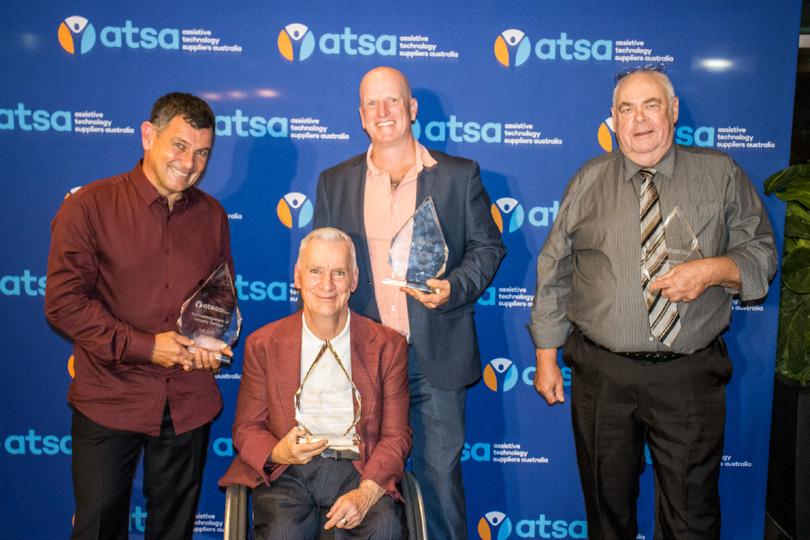
AshDaff,MichaelCallahan,ErrolHyde, Ian Mortimer and Malcolm Turnball AcknowledgmenttoService toIndustryAward

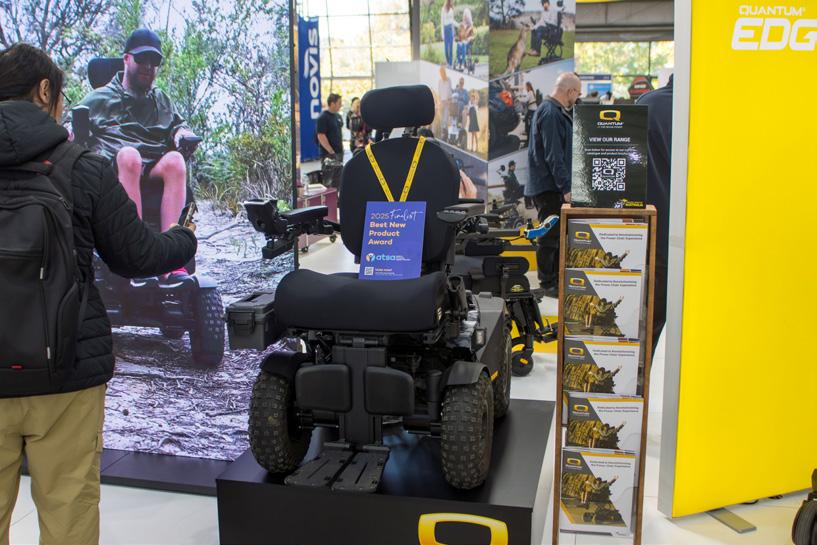
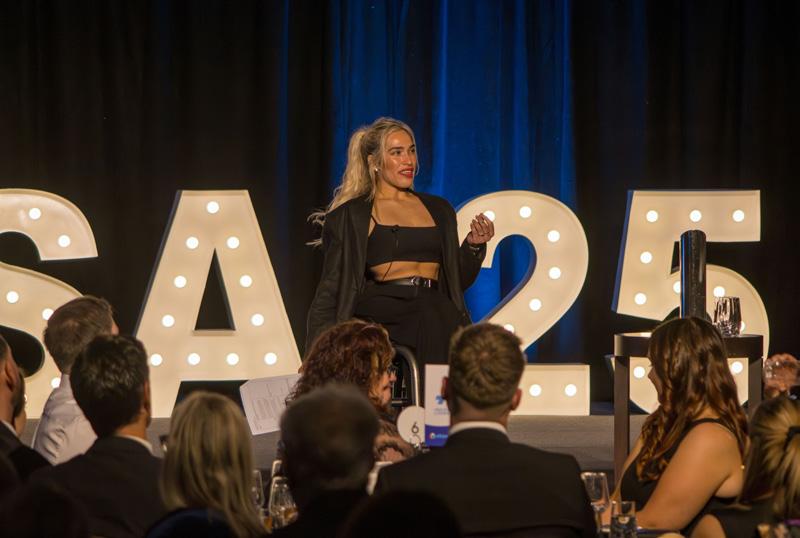

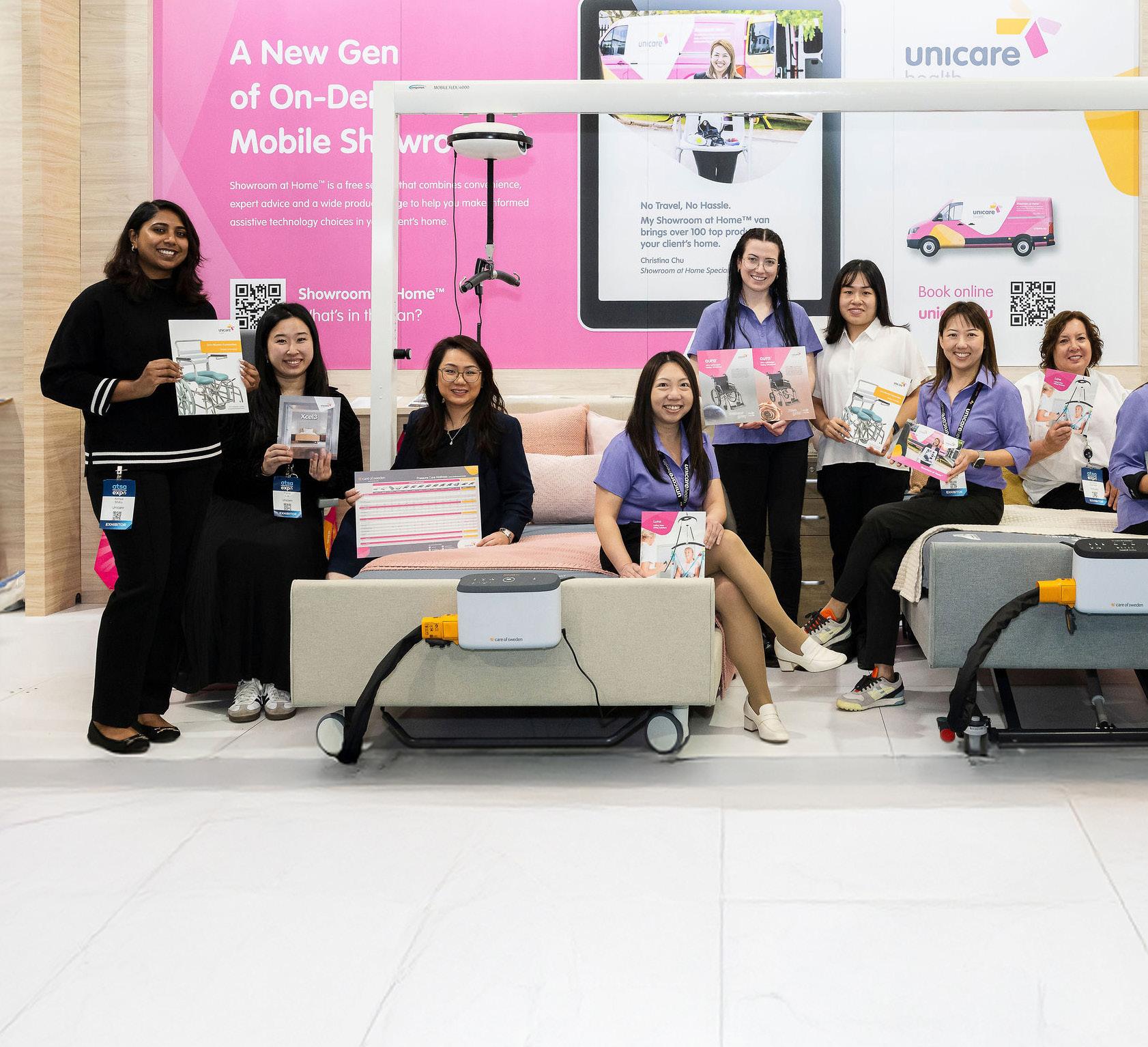
Recognising passion, innovation and care.
At the 2025 ATSA Independent Living Expos, Unicare Health emerged as one of the most celebrated exhibitors, earning four major industry awards, drawing praise from clinicians, suppliers and delegates.
Organisers of the ATSA Awards described Unicare’s presence as “exceptional,” citing the company’s commitment to innovation, education and client outcomes as a benchmark for the industry.
Award judges also commended Unicare for going “beyond supply” — recognising their investment in clinical education, local service
support, and meaningful innovation that responds to real-life challenges.
Unicare head of marketing Pearl Chan said the recognition was both humbling and energising, adding that the awards reflected the collective effort of a team committed to supporting therapists and clients through practical, humancentred solutions.
“We don’t just supply equipment —we support outcomes, and that’s what drives us every day,” she said.
Unicare was awarded: Supplier & Manufacturer of the Year, Best Large Stand, Best Exhibitor Marketing
Campaign and Commitment to Excellence Award.
This clean sweep affirmed Unicare’s impact and credibility across the sector.
It was the second time Unicare has collected the Supplier and Manufacturer of the Year Award that recognises innovation, reliability and top-notch service voted by therapists, healthcare professionals and families.
Unicare’s win for the ‘Best Large Stand’ at ATSA Perth delivered interactive product demonstrations, the latest digital tools and a preview of the company’s new online services.
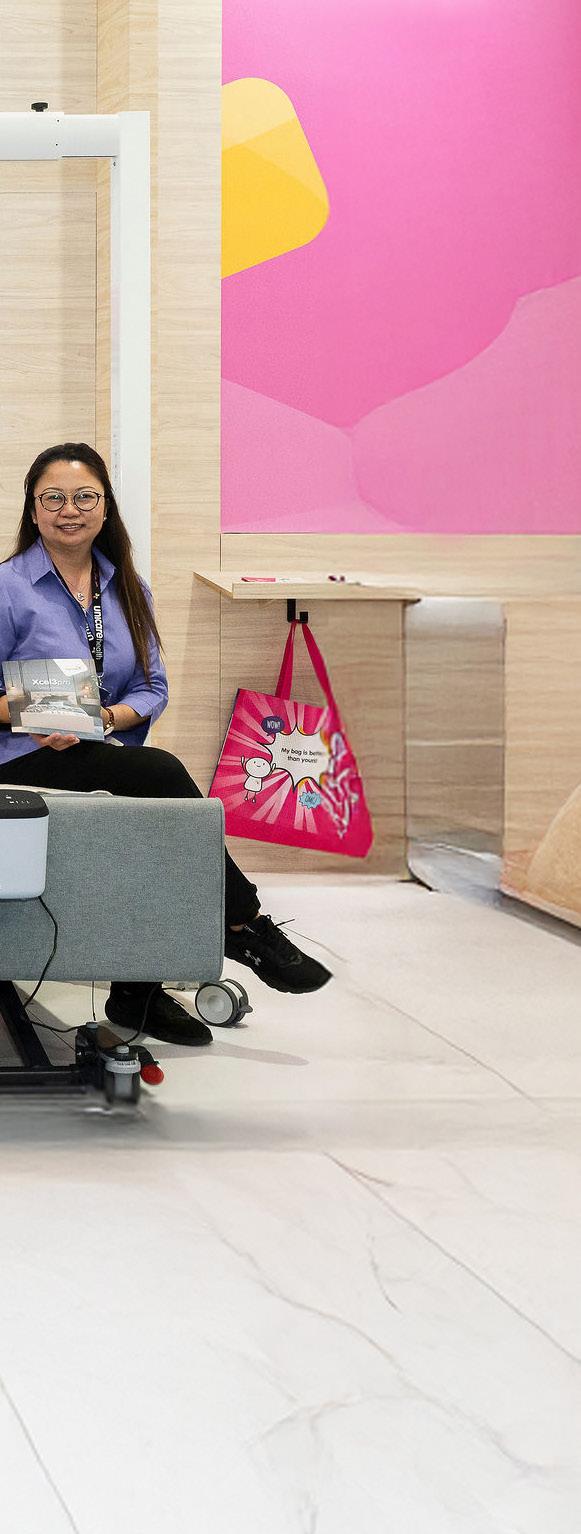
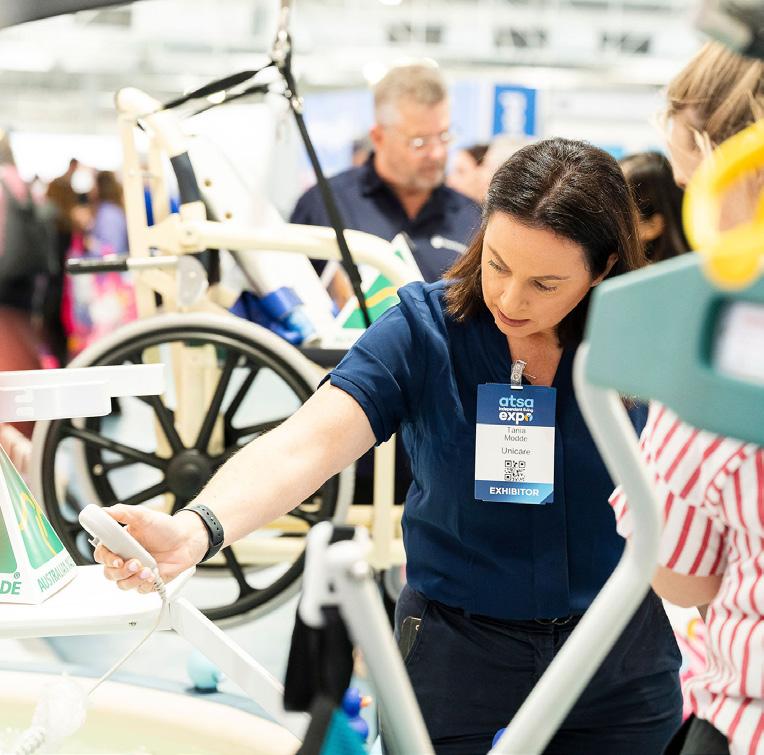
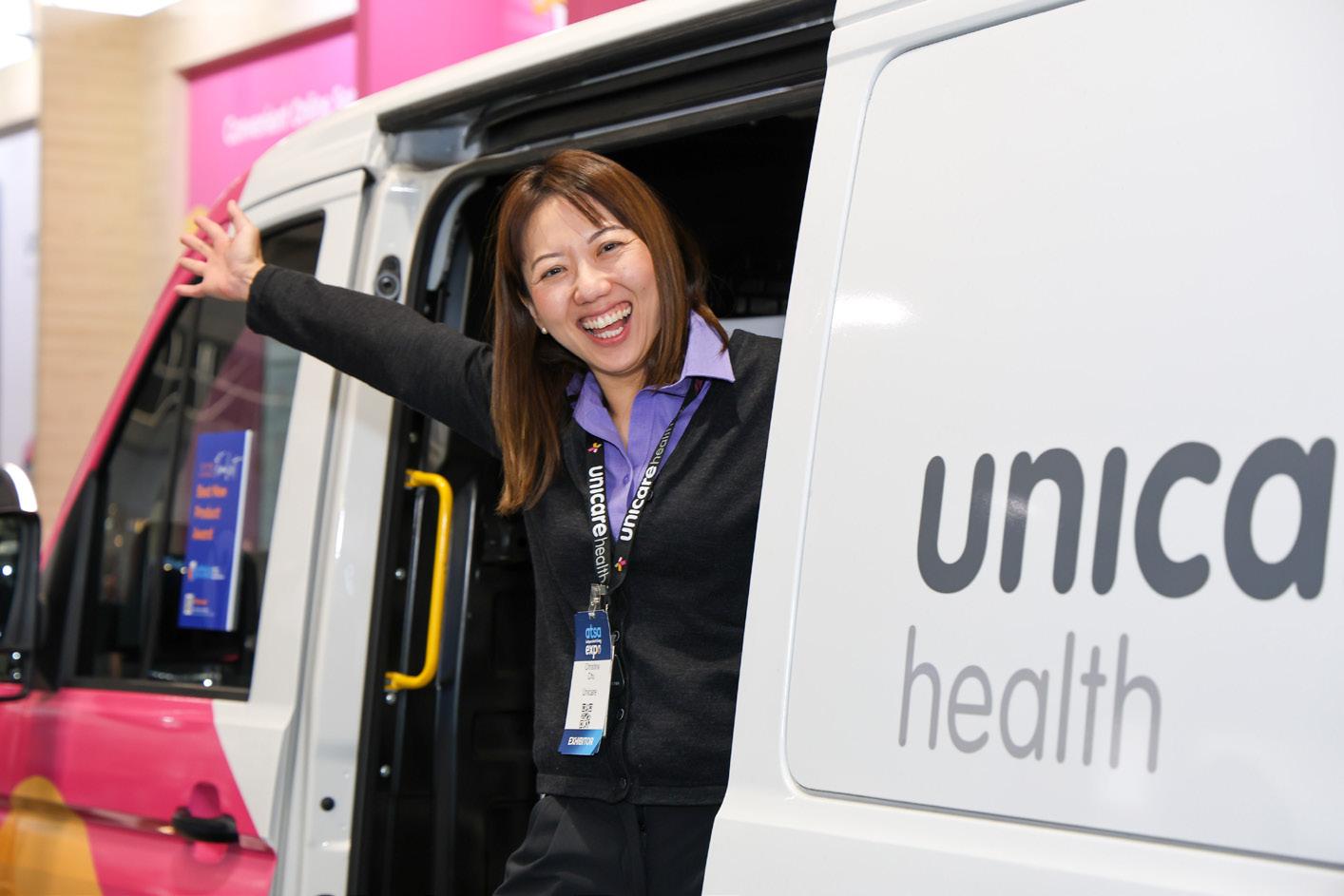
willingness to dig deep into individual client needs.
For the fourth time, Unicare collected gold for ‘Best Exhibitor Marketing Campaign’ that acknowledged creativity, strategy, and meaningful audience engagement with its clear, compassionate communication that empowered people to understand their options and get the support they need.
behind the scenes, the clients who trust our mission, and the partners who share the journey. With such a passionate team and a strong foundation, we can’t wait to see what exciting innovations and positive impacts Unicare will create next. The best is yet to come,” Chan said.
To learn more about Unicare visit: unicare.au.
According to event attendees, the Unicare stand was constantly buzzing. Visitors commented on how approachable and knowledgeable the team was, with several therapists saying they valued the opportunity to engage with product specialists who understood clinical applications in real-world settings.
Visitors also noted that the stand wasn’t just a product showcase but a place to learn, share, and connect.
Several therapists remarked on the “genuine, solutions-focused conversations” they had with Unicare staff and appreciated the team’s
The ‘Commitment to Excellence Award’ went to Unicare Head of Marketing. Pearl Chan, for her passion in transforming how assistive technology is communicated across Australia. Over the past eight years, her award-winning initiatives have included #SafeSeniors and #StopThePressure, that have helped influence how assistive technology is used.
The company’s leadership indicated they have no plans to slow down. With national reach and more than 40 years of being established in Western Australia, Unicare is committed to building strong partnerships and continuing to deliver award-winning support to therapists and healthcare providers across Australia.
For Unicare Health, these four awards are more than just shiny accolades. “They celebrate the amazing people
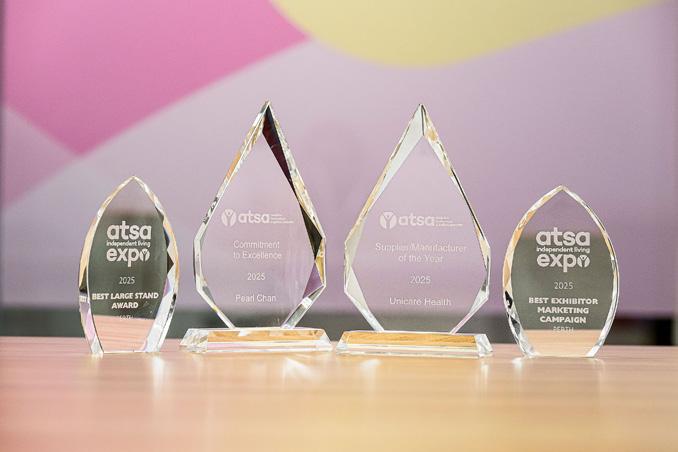
UNICARE’S ATSA 2025 HIGHLIGHTS INCLUDED:
• Showroom at Home - a new generation of on-demand mobile showrooms
• Pool hoists and aquatic mobility solutions
• Ceiling hoists and manual handling equipment
• Hands-on displays of bestselling aura wheelchairs
• Interactive demos of electric profiling beds and pressure care mattresses
• Live training with clinicians and product experts.
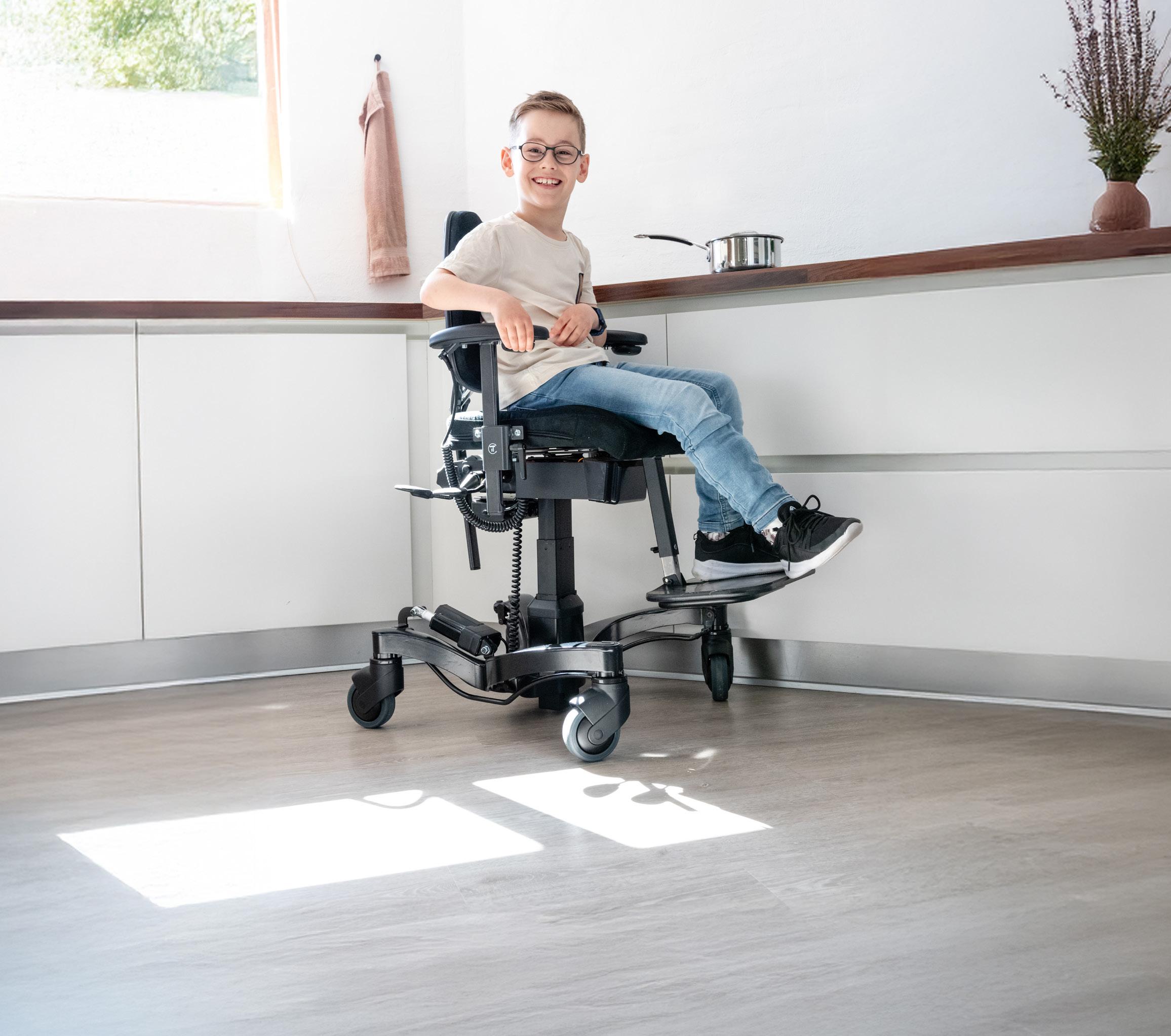
WILA Innovations is the Australian distributor for the Vicair pressure care products, the FOCAL dynamic arm supports, the Obi robotic feeding device, and VELA work and medical chairs.
Vicair O2 cushions are a unique combination of high-quality pressure redistribution, optimal positioning and comfort. Available in several models, these are extremely suitable to protect skin.
The Vicair O2 wheelchair cushion range offers optimal hygiene, temperature and moist regulation as the cushions are 100 per cent breathable and machine washable.
FOCAL arm supports assist with reduced arm and/or hand function. In line with its motto ‘listen, create,
improve’, the focus is on personal needs to achieve an improved quality of life.
The Obi, is a revolutionary eating device for individuals with upper extremity strength and mobility limitations. Using customisable accessibility switches, the Obi allows the user to control what they eat and when. Eating should be personal, fun, joyful, exciting and independent, and Obi makes this possible.
The VELA chair range comprises the VELA 700E, suitable for those up to 160kg, while the VELA 310E is for users up to 300kg and the 600ES is a chair for children.
In a world first, VELA released the new user-friendly VELA 600ES and
700ES chair with Power Wheels, for delivering independence at home, work and school.
The Power Wheels VELA 700E and 600ES carries all the benefits of a VELA chair, even for those without the strength to ‘walk’ the chair around throughout the day. It allows the user to perform their usual standing activities safely and comfortably without draining their energy, thanks to a safe handbrake, easy-rolling wheels and stable sitting comfort. The chair can convert a new or an existing VELA chair into an indoor power wheelchair.
All VELA chairs are exclusively available in Australia via WILA Innovations.
For more details visit: wila-products.com.au or info@wila-products.com.au
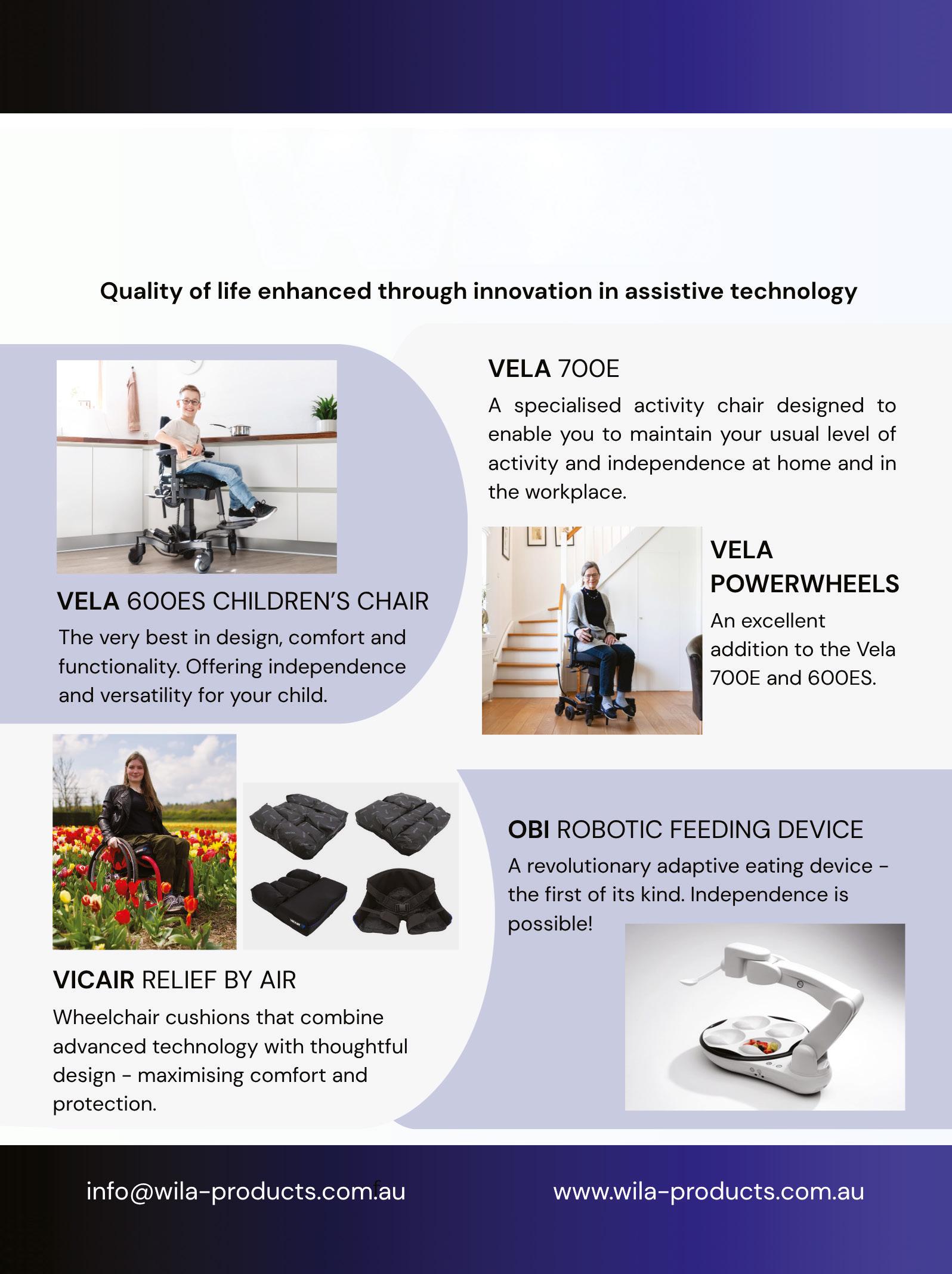



















A heritage building in regional NSW has been revitalised
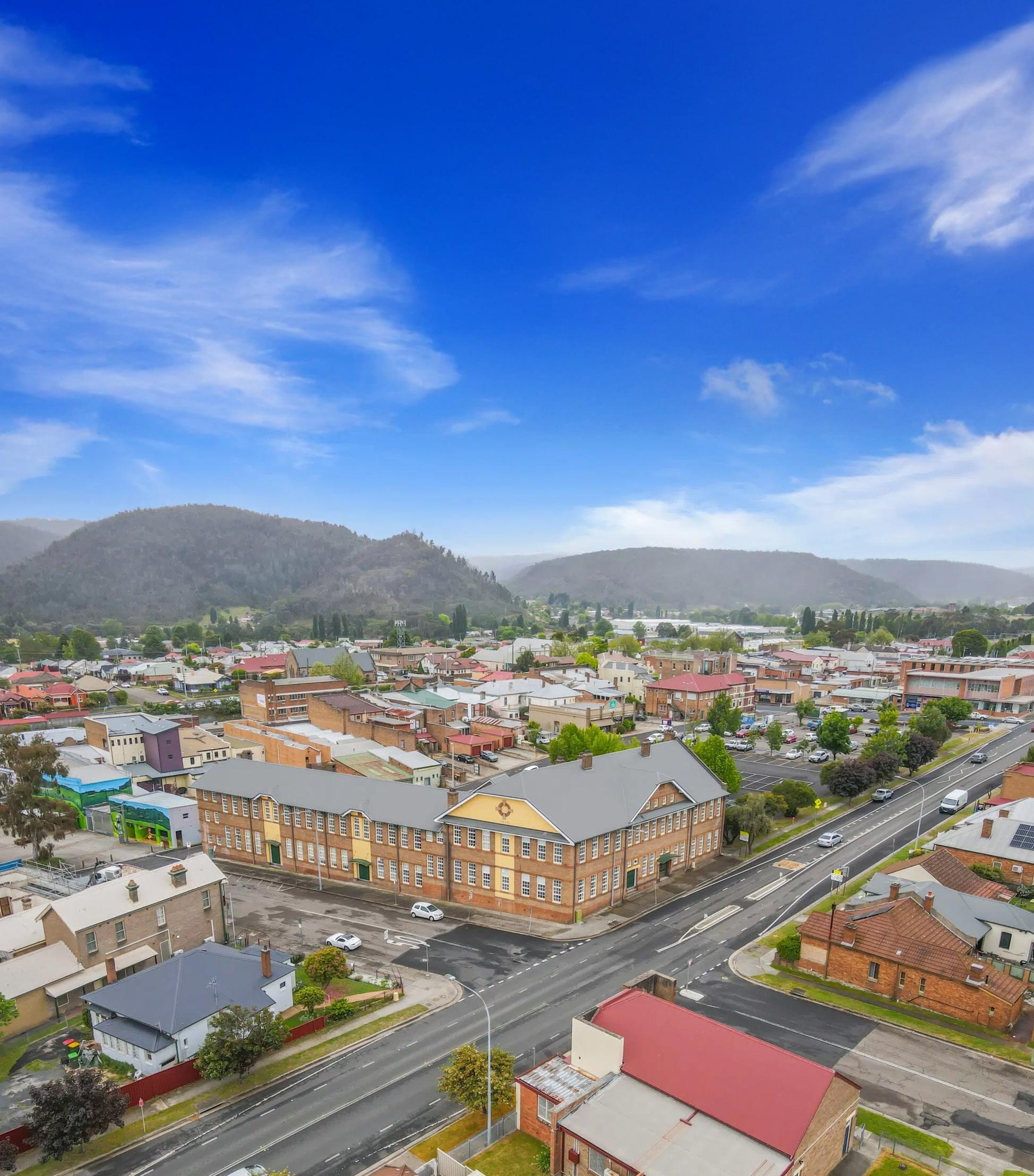
Ethical SDA celebrated the official opening in March 2025 of new apartments in the 100-yearold iconic TAFE building in Lithgow, located on the Central Tablelands in the Blue Mountains.
The apartments are built to exceed high physical support design standards that are currently a mix
of fully accessible and improved living accommodation.
“The design enables people of all capability levels to comfortably live in the building,” Ethical SDA general manager, Timothy Roberts told Link
There is no specific age restrictions with eligibility based on the

participant’s SDA funding and support needs, he said. Participants can bring their own SIL provider or opt for the 24/7 on-site support team.
Located in the heart of Lithgow, the site is 30m from the main street that is fully wheelchair accessible and “extremely walkable” with a 86/100
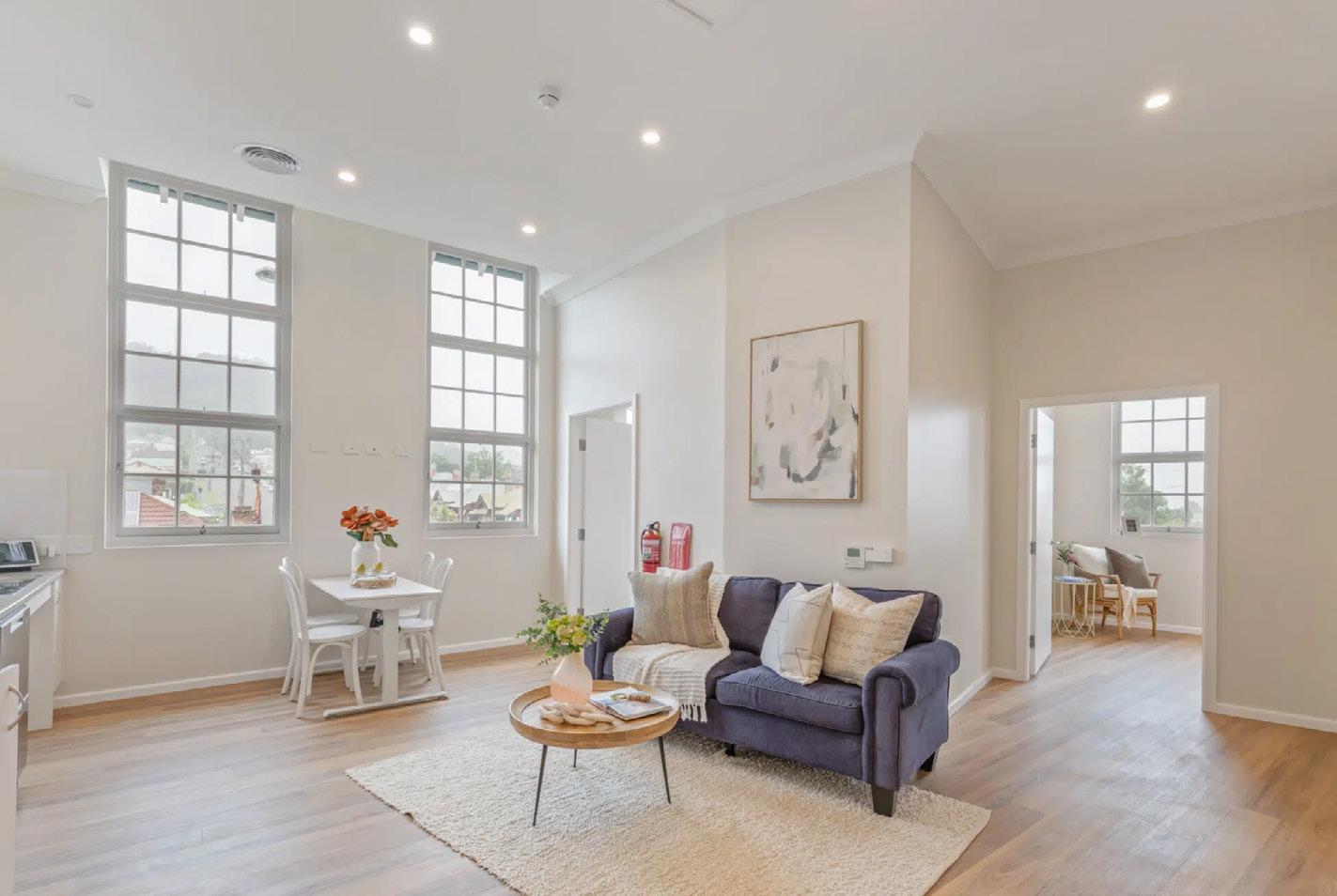

walkability score. Public transport including train, bus and taxi is 60m away and all are wheelchair accessible. A Woolworths supermarket is 100m nearby.
He said the biggest challenges related to the NDIS decision-making process with a tendency to default to shared-housing outcomes rather than individual apartments. There were also significant delays in approvals. “Planners and delegates often do not read the supporting reports or evidence provided by participants and their teams,” he said.
While restoring buildings is incredibly rewarding it comes with unique
challenges. “It’s a great way to preserve cultural heritage and strengthen community identity. Older buildings are often in prime locations, enhancing resident access to local services.
“However, they require greater technical knowledge of building codes, additional time, patience, and problem-solving. And support from a proactive local council is essential with big thanks to Lithgow Council who were totally engaged in helping to make Lithgow a highly accessible community,” Roberts said.
“And despite challenges, Barry and Ben from BJ Constructions did a fantastic job completing the restoration to a high standard.”
What is your disability and what are your accessibility requirements?
I have cerebral palsy, use a wheelchair and require wider doorways, more landing space, and an accessible bathroom and kitchen. I love the smart home tech here where I can control the lights, air conditioning and blinds, using Google Home or my phone.
Have you lived in other accessible accommodation?
Yes – I previously lived in Aged Care.
Why did you choose to move? Aged care was restrictive and isolating. I wanted more independence and to be part of the community.
Have there been any NDIS-related challenges?
The biggest hurdle was getting SDA approved in my NDIS plan.
What local services or facilities are important to you?
I love being so close to Woolworths, Coles, Aldi, cafés, the train station, and the library and I can get there independently in my wheelchair.
Is anything missing from your experience so far?
I would like to see more neighbours move in, but I am excited to build a community here.
What do you like most about your new accommodation? The accessibility—both in the home and in the community. It has truly given me my life back.
Any advice for others considering SDA? Do it! Moving into SDA with easy access to the community has been the best thing for my wellbeing.
At VIP Access, we believe that a well-designed home can empower people to live safely, independently, and with dignity. As a registered NDIS provider specialising in accessible renovations, we work with clients across Southeast Queensland to create tailored home modifications that truly meet their needs.
Led by Scott, a licensed builder and wheelchair user since 2004, VIP Access brings lived experience to every project. Whether it’s an accessible bathroom, kitchen, laundry, customised ramps, or lift installations, our team approaches each job with both technical skill and personal understanding. We also provide minor modifications such as grab rails, threshold ramps, bidet installations, stair lifts, and pool hoists. Every renovation is guided by Australian Standards and designed
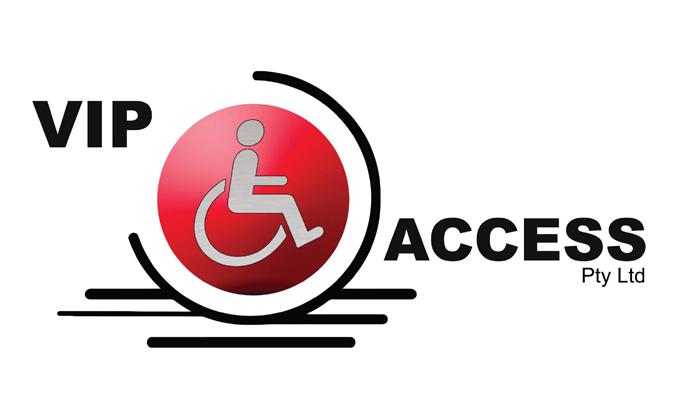
in close collaboration with clients, families, occupational therapists, and case managers.
From your first consultation to final completion, we’re here to support you through the process - clearly, respectfully, and efficiently.
No two homes, or people, are the same. That’s why we take the time to assess your unique environment and design spaces that are not only functional, but comfortable and welcoming.
Creating Independence at Home – with Experience You Can Trust
For over 15 years, VIP Access has been helping people live more freely and safely in their own homes. From major renovations to small changes, we specialise in home modifications that make a real difference.
We also offer flexible rental options for essential equipment, including accessible bathrooms, ramps & more – delivered and set up with care.
Led by Scott, who brings personal insight into every project, we focus on practical, tailored solutions that remove barriers and empower independence.

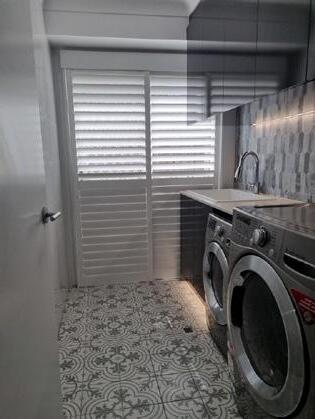
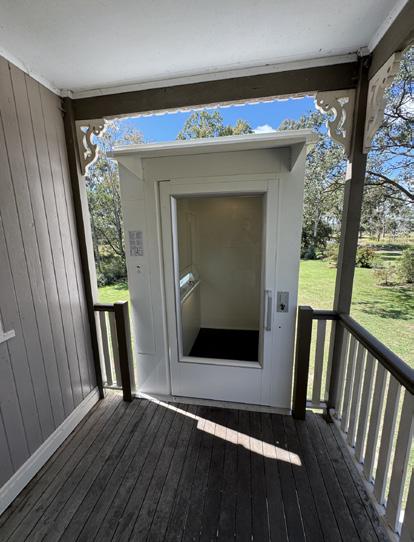
We commit to being with you every step of the way, from initial design to installation, and also provide after-sales support. If you are considering home modifications for yourself, elderly or disabled loved one, contact VIP Access. We would be more than happy to talk about your needs, help set priorities, answer any questions you may have, and provide guidance on the best modifications for you.
If you’re planning home modifications for yourself or a loved one, get in touch with VIP Access today. We proudly service in South East Queensland from the border at the Gold Coast, Scenic Rim, Ipswich to south of the Brisbane River, and are ready to help you create a safer, more accessible home.
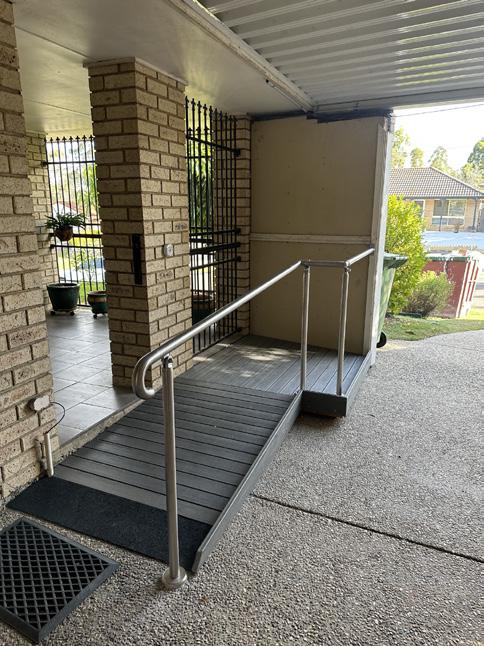
(07) 3807 4309 enquiries@vipaccess.net.au vipaccess.net.au
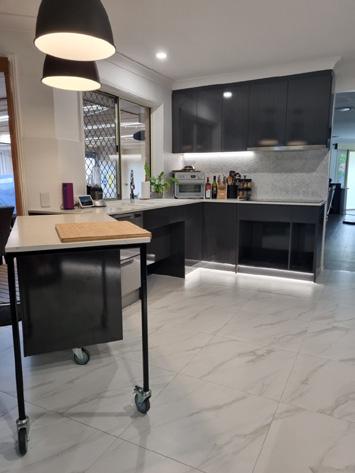
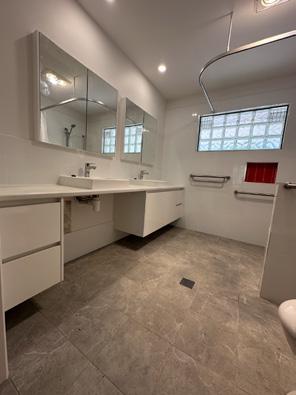

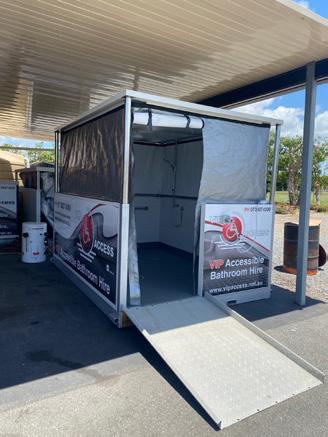
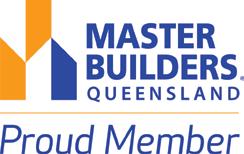
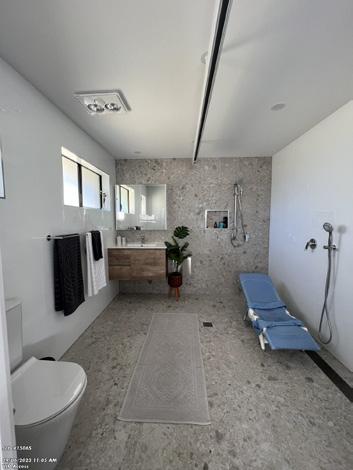
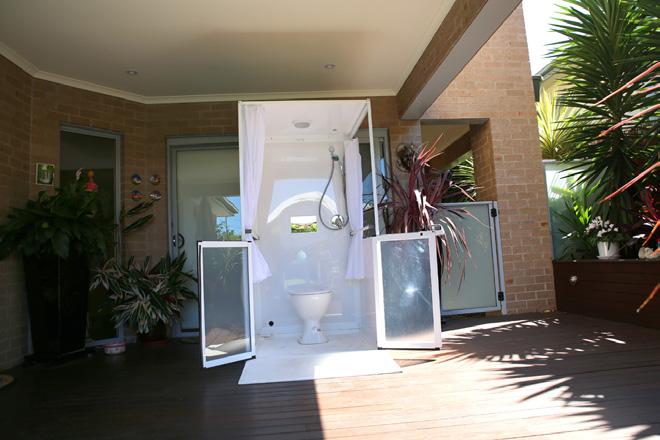




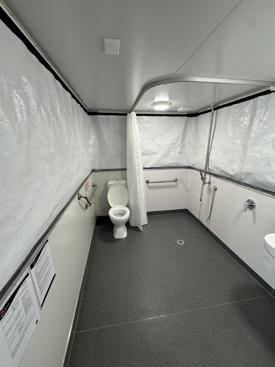
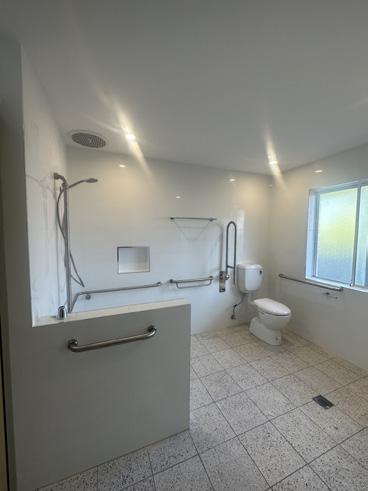
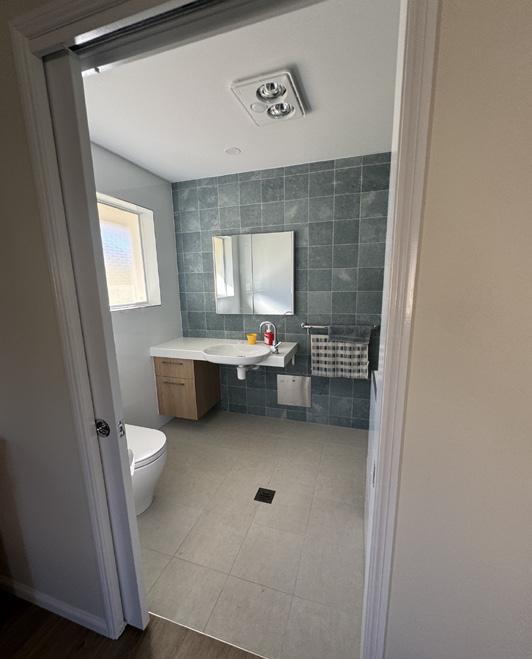
Supported Independent Living (SIL) can significantly enhance the lives of people with disability –just ask Jenny.
A proud Queenslander, Jenny lives in one of Endeavour Foundation’s homes near Airlie Beach. For over three years, she has embraced a life of independence managing her own routines and thriving with newfound autonomy.
“I make my bed every day, do the washing up, cook and clean the floors,” Jenny said. She’s passionate about staying active and healthy – joining a gym, biking, walking and following a balanced diet.
LIVING LIFE TO THE FULLEST
Endeavour Foundation’s Home and Community site manager, Jody Flaherty, expressed admiration for Jenny’s proactive nature.
“Jenny has worked extremely hard to be independent,” she said.
Jenny maintains a full and busy schedule, attending Endeavour Foundation’s Learning and Lifestyle Hub and working at a local hotel in both housekeeping and reception roles. Living an independent, wellrounded life is something Jenny always aspired to – and thanks to ongoing support from Endeavour Foundation, she’s now living that dream.
INDEPENDENCE WITH THE RIGHT SUPPORT
Jenny’s story proves that with the right support independent living isn’t just possible – it’s empowering.
At Endeavour Foundation, we support people with disability to live life on their terms. From feeling safe and supported to enjoying a home that
Home should feel like home – comfortable, secure and yours.
Whether you are looking for a new place or need support where you are, Endeavour Foundation is here to help you live life on your terms.
Scan the QR code to explore your options and get started.
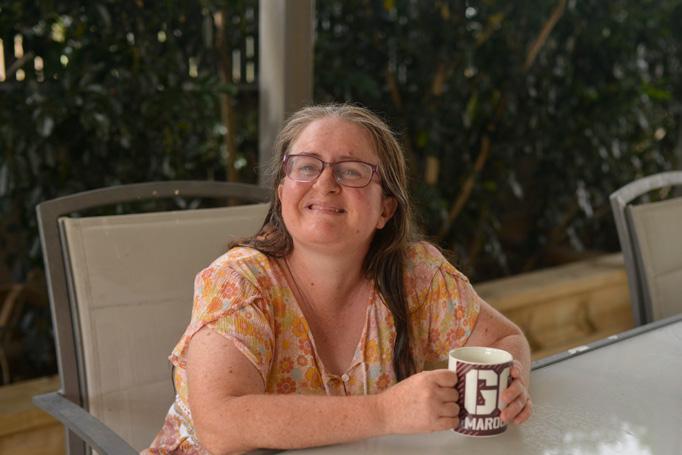
reflects who you are, our Home and Living Supports put you in control.
TAKE THE FIRST STEP TOWARDS LIVING LIFE YOUR WAY
Discover how Endeavour Foundation’s Home and Living Supports can help you feel right at home.
Scan the QR code below and start your journey today.
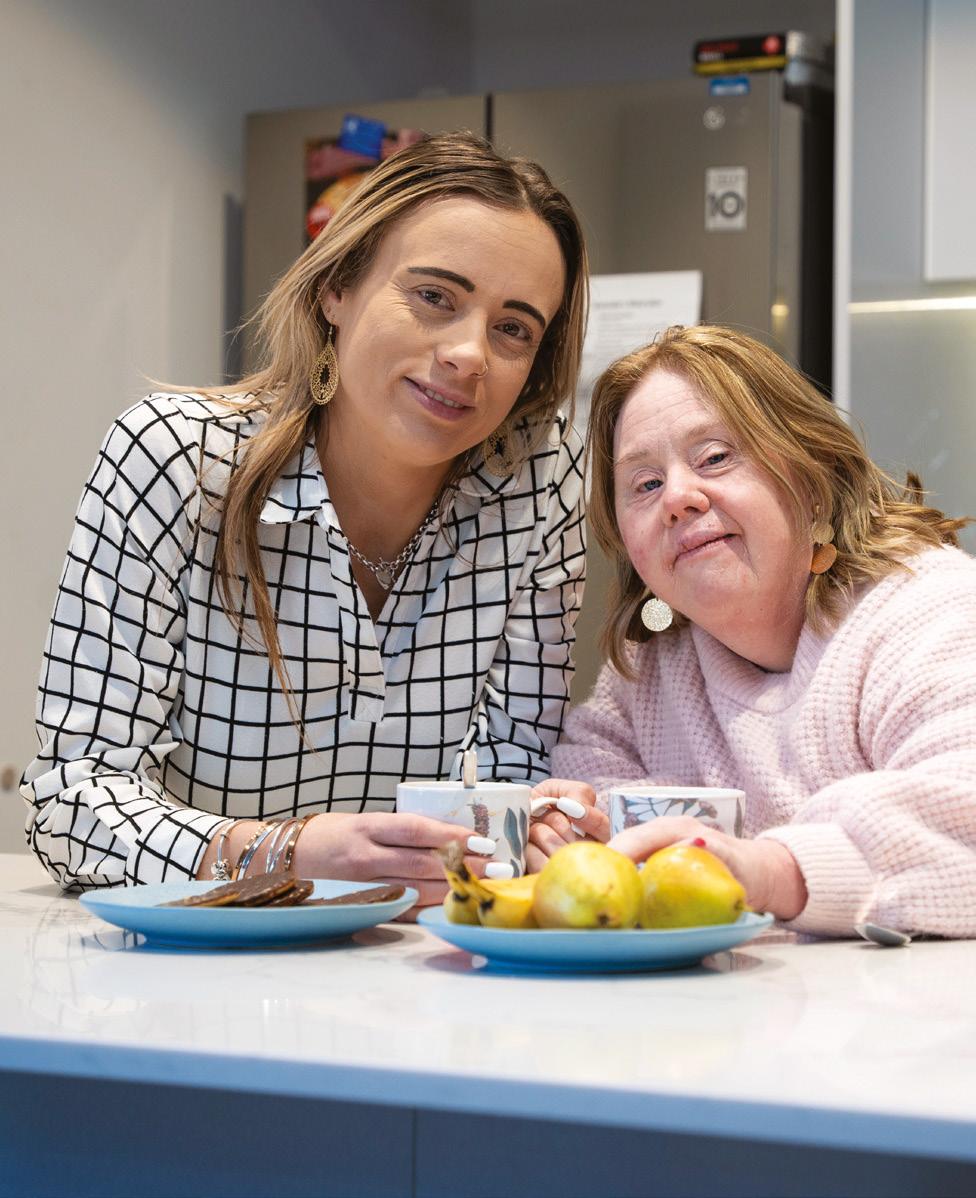
Vision Australia Radio is inviting the Darwin community to explore new opportunities to connect, collaborate and grow a meaningful presence across the Northern Territory.
With community radio services across Australia, plus a growing team of volunteers contributing remotely, VAR provides essential news, information and community-focused content designed with accessibility at its core. Now, it’s reaching out to individuals and organisations in Darwin who are passionate about inclusive media and want to be part of something truly impactful.
VAR is currently seeking volunteers from Darwin’s blind, low vision and print disability community, as well as allies, to help VAR shape content that reflects their voice, experiences, and information that matters to them. Volunteers play a vital role in researching, producing, reading daily news and presenting
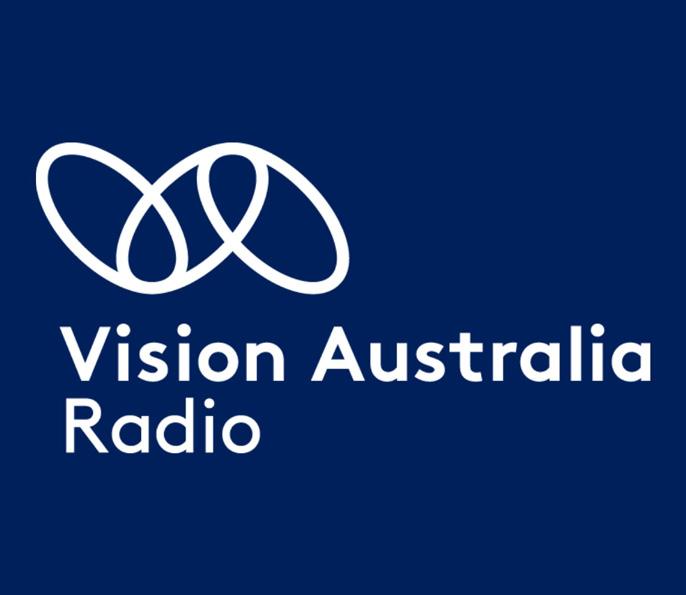
programs that keep its audience connected and informed.
And the best part? You can get involved from the comfort of your home.
“We know that Darwin has a vibrant and resilient disability community,” Vision Australia Radio and Audio Services manager Conrad Browne said. “We want to connect with locals who are keen to tell stories, share information and ensure voices from the
NT are heard across our network. We also want to hear from organisations who are working to make a difference so together, we can strengthen the way information reaches the people who need it most.”
VAR is also inviting disability service providers and community organisations to consider the benefits of collaborating with the network. Whether it’s promoting services, sharing news, or co-creating accessible content, VAR believes in the power of partnerships to create a lasting impact.
“Our network is built on the belief that access to information is a right, not a privilege. We’re committed to making sure no one is left behind and that includes ensuring Darwin has a place in our national conversation,” Browne said.
Darwin’s friends can get in touch at radio@visionaustralia.org or call 1300 84 74 66 for details about how to become involved.
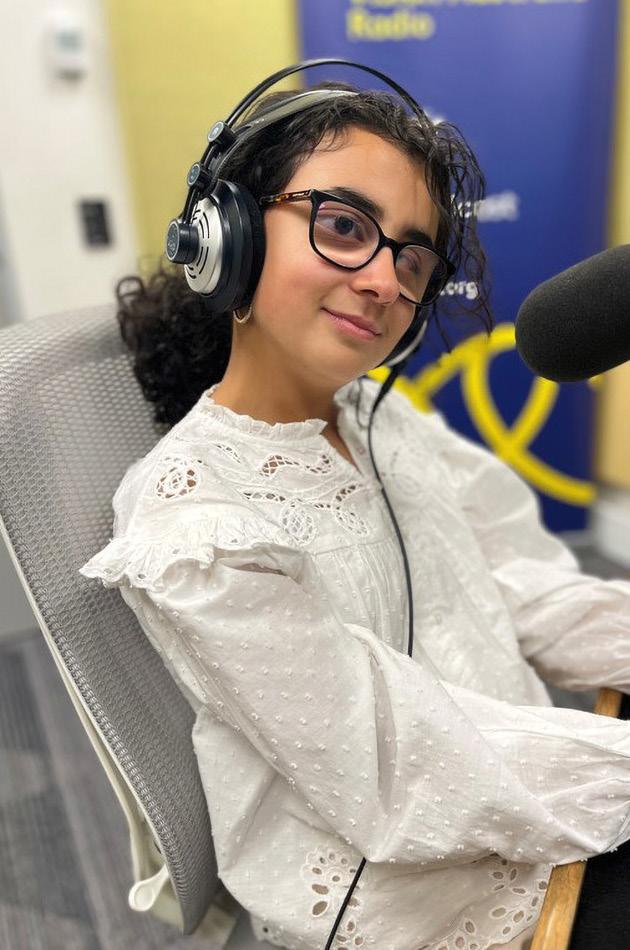
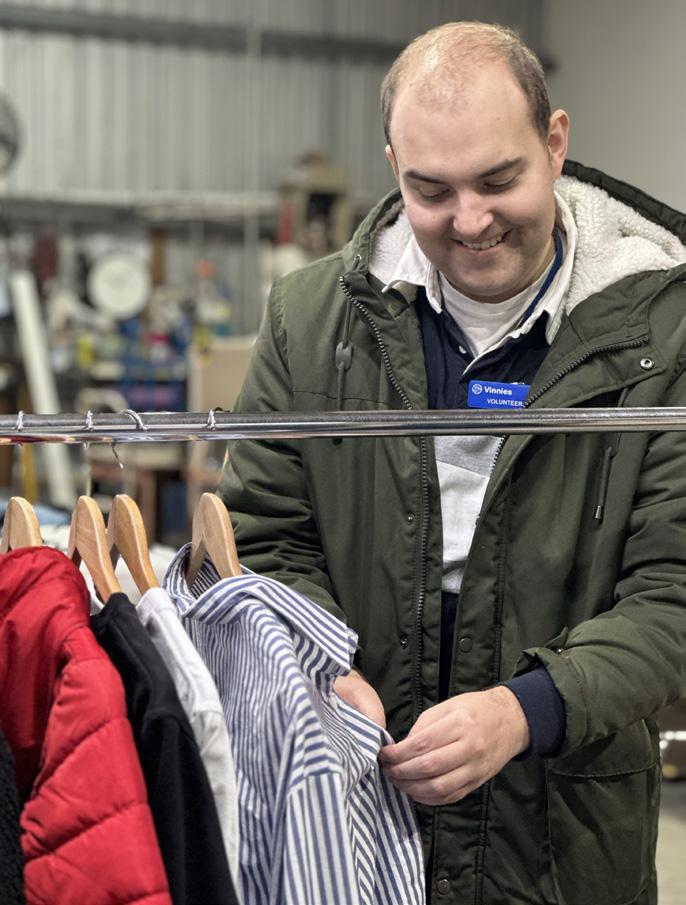
It’s just the start of Lachy’s journey volunteering at Vinnies as part of a new partnership program between Minda and St Vincent de Paul and he is already loving it.
Only on his third shift, Lachy is beaming with enthusiasm and a vibrant smile, eagerly awaiting Friday mornings where he can head to the store and start his three-hour shift.
The program provides opportunities to gain a sense of purpose, independence and work experience through volunteering at Vinnies stores.
“I thought it was a great idea. I wanted to be involved to improve my social skills and communication skills, and meet new friends,” Lachy said.
“I like to help the customers and by volunteering here I am helping the community. I’m always pretty busy.”
Guided by mentor and support worker, Rabia, Lachy is learning to sort clothes, DVDs and CDs and price items.
“Lachy is very organised and punctual; a very responsible person,” Rabia said.
Lachy first completed a training induction to learn the history of Vinnies and has now made his way to the shop floor with his next goal to learn to use more of the in-store equipment.
St Vincent de Paul CEO Evelyn O’Loughlin is thrilled to be working in collaboration with Minda and welcoming more volunteers.
“We are so excited for Lachy and the other Minda clients who are valuable members of our Vinnies store teams doing work that directly benefits the community members we support.”
Minda senior manager, Community and Lifestyle Services Daniel Smith said this valuable opportunity empowers clients to develop their skills and gives them a sense of purpose. “The opportunity for Minda clients to get hands on experience in Vinnies stores, while giving back to the community, is something that we are very pleased to see come to fruition.”


Sánchez stars in the film My Eyes about the social impact of living with vision impairment.
HOW DID YOUR ROLE IN MY EYES COME ABOUT?
The producer sent me a message to audition on Instagram and I originally thought it was a scam! I was training for the 2020 Paralympics in the middle of the pandemic and thought this was too good to be real, so I did not reply. Then another message came through and I thought maybe it’s not a scam after all! I had long discussion with writer/ producer Tsu Shan Chambers who sent me the script…it was like a dream that was really happening.
WHAT SPORT DID YOU PLAY IN THE PARALYMPICS?
Judo. I won a Gold medal twice and Bronze at the Tokyo Paralympic Games.
WHAT ELSE DO YOU DO IN YOUR LIFE?
I coach judo with children, am a personal trainer and motivational speaker. I like to work with kids. My message is to tell them how sport benefits the mind and the body.
WHAT ARE YOUR OTHER INTERESTS?
Sport is my life. I also love fast cars!
WHAT VISION IMPAIRMENT DO YOU HAVE?
Tunnel vision. When I was a child, I had an accident and fell. It caused damage to my visual cortex at the back of my head, but it was not diagnosed initially. I used to be shy, very insecure and could not walk by myself with only my mother to help me. I was nervous around people, short and skinny and bullied at school because I was different, I couldn’t see clearly. Sport was a therapy and 100 per cent changed my life! It gave me the confidence to get an education and helped me improve my body and brain development. Thank you judo and sports!
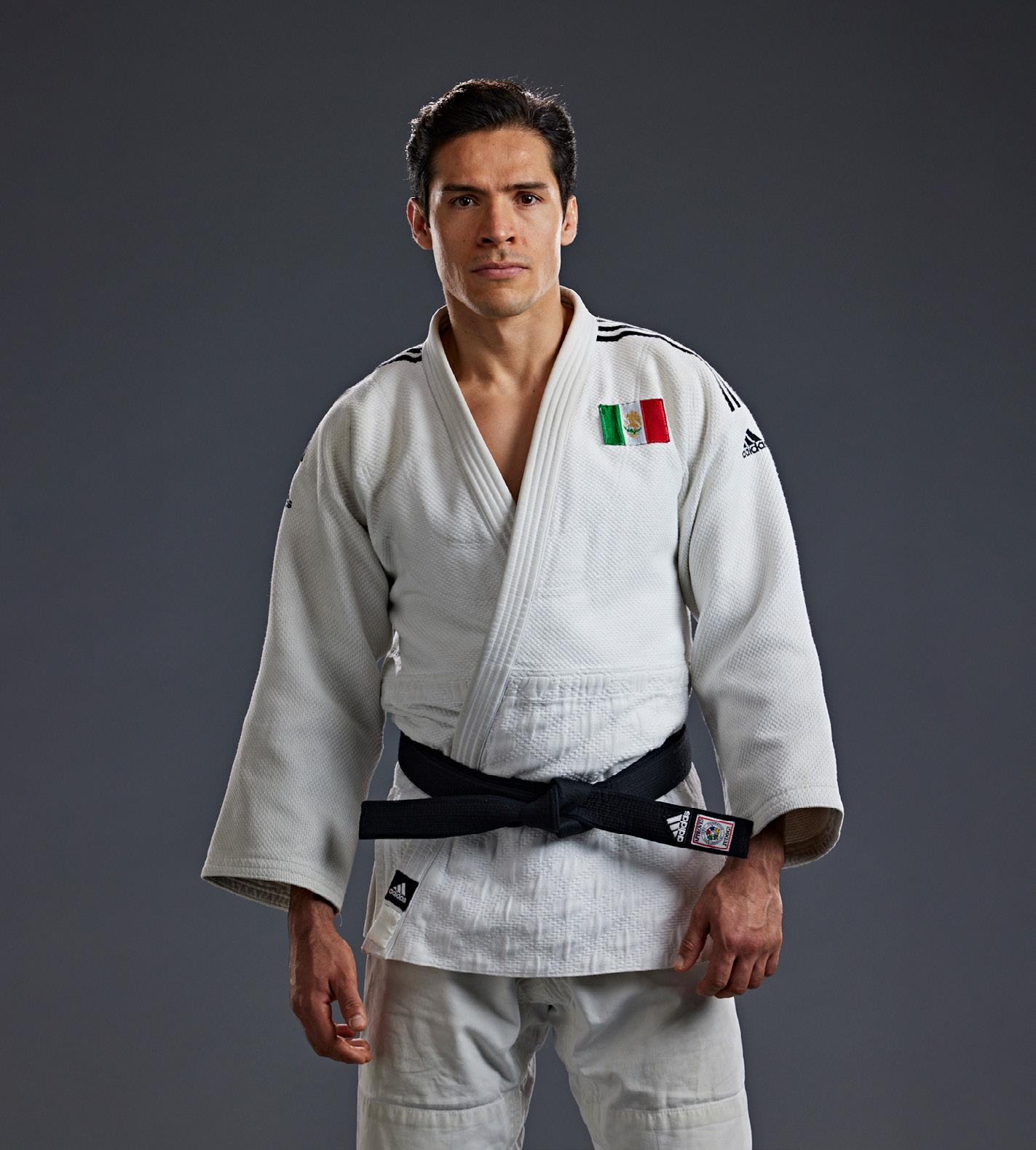
WHO INSPIRES YOU?
When I was about 11 years old, I saw a Mexican Paralympian swimmer Doramitzi González who broke swimming records and won many medals. I met her and she was incredibly inspiring!
ANY ADVICE FOR THOSE WITH VISION IMPAIRMENT?
Don’t be afraid to do what you want to do. But it can be hard by yourself …it helps to have family support.
My mother was strong with me. She said do you want me to hold your hand your whole life? Do you want to walk by yourself? She gave me confidence and encouraged me to be independent.
WHAT IS NEXT FOR YOU?
I was in a reality TV show (like Survivor) and it will be released across Latin America and the US in the latter half of this year. Hoping for other work on future TV shows and movies!
Because your dream holiday should never be cancelled
Planning a holiday is exciting. You research, choose dates, get your NDIS funding for supports approved, pack your bags—and then comes the call: “Trip cancelled due to low booking numbers.”
It’s frustrating and disruptive. That’s why Leisure Options does things differently. We promise our travellers: if you’re booked, you’re going. No compromises. It’s our ‘Holiday Guarantee’, and it sets us apart from other disability travel providers.
WHY CANCELLATIONS
Booking a supported holiday takes time, planning, NDIS funding, and emotional investment. A cancelled trip can affect schedules, funding, and confidence. We have heard too many stories of people left disappointed and
unsure who to trust. That’s where we step in.
WHAT IS THE ‘HOLIDAY GUARANTEE’?
Once you are booked, your holiday will go ahead—no matter how many others sign up.
Leisure Options are proud to say:
• We never cancel due to low booking numbers
• We won’t change plans last minute
• We deliver on our promise —because your holiday matters.
If you have booked a 1:4 support ratio but are the only traveller, you still go ahead at no extra cost, with 1:1 support for the price of 1:4. And it applies to all group departures, from road trips to overseas escapes.
WHY IT MATTERS
Our guarantee gives peace of mind.
• Your plans are locked in
• Your trip is happening - no matter what.
It eases anxiety for first-time travellers and stress for families and carers.
IT’S OUR COMMITMENT TO YOU
With 30+ years’ experience, Leisure Options is one of Australia’s most trusted disability travel agents and NDIS providers.
We care. We deliver. And we make travel fun. Start planning your holiday.
Note: The Holiday Guarantee excludes cancellations beyond our control, such as airline disruptions or severe weather.
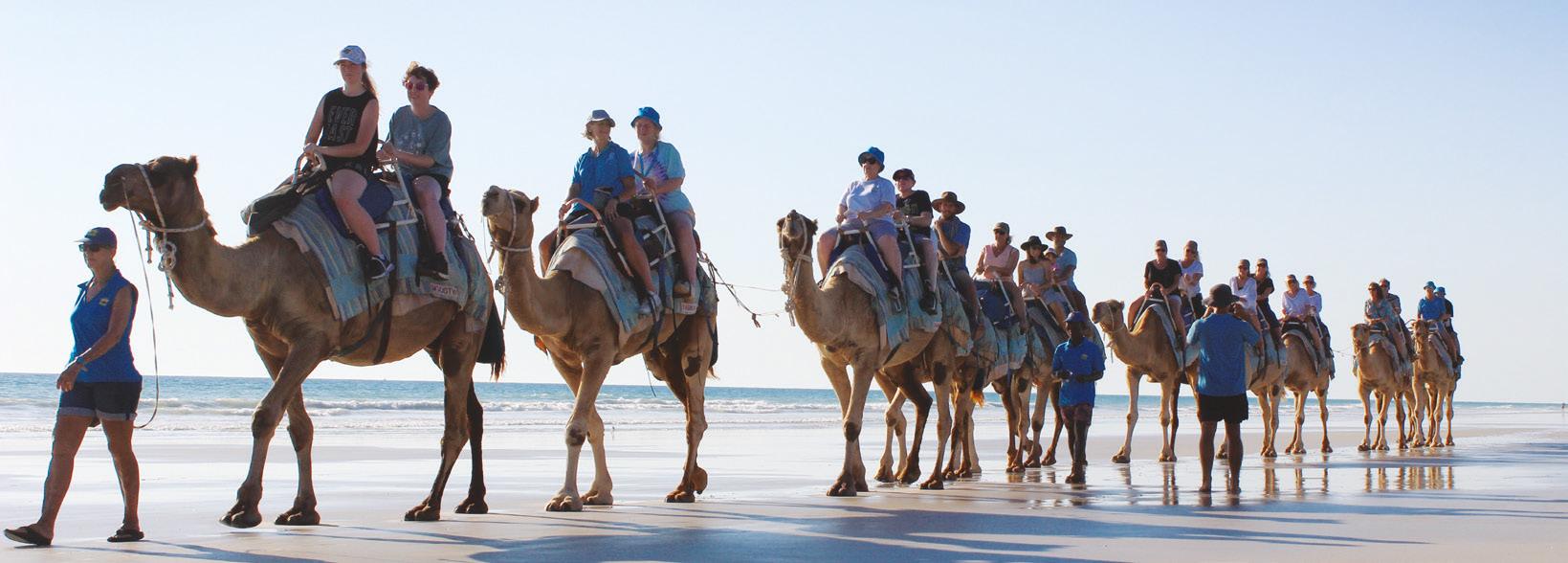
With more than 30 years’ experience in both the travel and disability industries, Leisure Options is Australia’s only national award-winning, accredited travel agent specialising in supported travel for the disability sector.
Focus on providing holidays that allow maximum choice, loads of fun, high staffing ratios, commitment to individual needs, and a supportive holiday environment
• Choice of either group or individualised touring
• Respite care offered in a stimulating and fun-filled environment
Over 80 departures annually to local, national and international destinations Passionate, energetic, and professional tour leaders with extensive qualifications and a world of experience
• Registered service provider with the NDIS




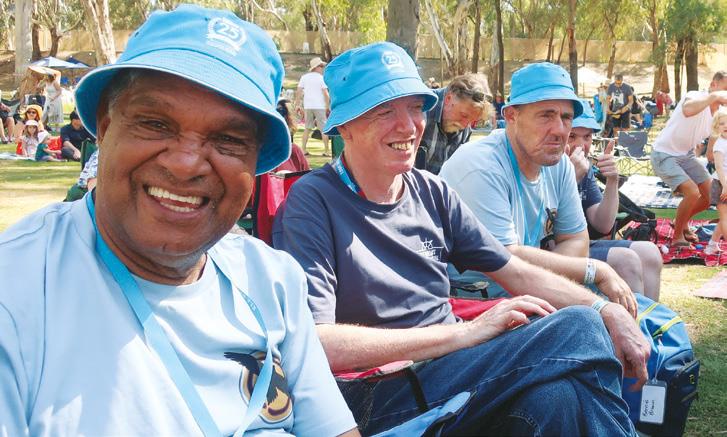
For more information call
or visit our website
Have we ticked enough boxes for it to be mainstream?
Has diversity truly become mainstream, or is it merely a superficial trend in the advertising industry? While there is a noticeable push for inclusivity on screens and in print, a closer look reveals a more complex reality. I recently shared my views at the Mumbrella360 Conference in Sydney, questioning whether the industry is becoming more diverse but in a way that involves shortcuts and stereotypes, or whether we are aiming for genuine representation.
Pushing for diversity and greater representation is undoubtedly the right thing to do. However, the methods employed often fall short of expectations. The issue arises when diversity becomes a box-ticking exercise, resulting in superficial rather than genuine representation. Instead of deeply understanding and portraying diverse experiences, the industry risks putting people into boxes and representing them based on preconceived notions.
In Australia, 22 per cent of the population lives with a disability, yet they represent less than 1 per cent of people in advertising and TV production. This discrepancy highlights a significant gap in representation. It suggests that while there may be a push for diversity in some areas, the representation of people with disability remains severely lacking. This underrepresentation reinforces societal exclusion and perpetuates harmful stereotypes.
To address these issues, it’s essential to recognise that everyone views the world through their own lens, regardless of your open-mindedness. This means engaging with the right people—those from diverse backgrounds and with lived experiences—to ensure authentic representation. This engagement requires more than just surface-level interactions; it involves actively listening and learning from diverse voices.
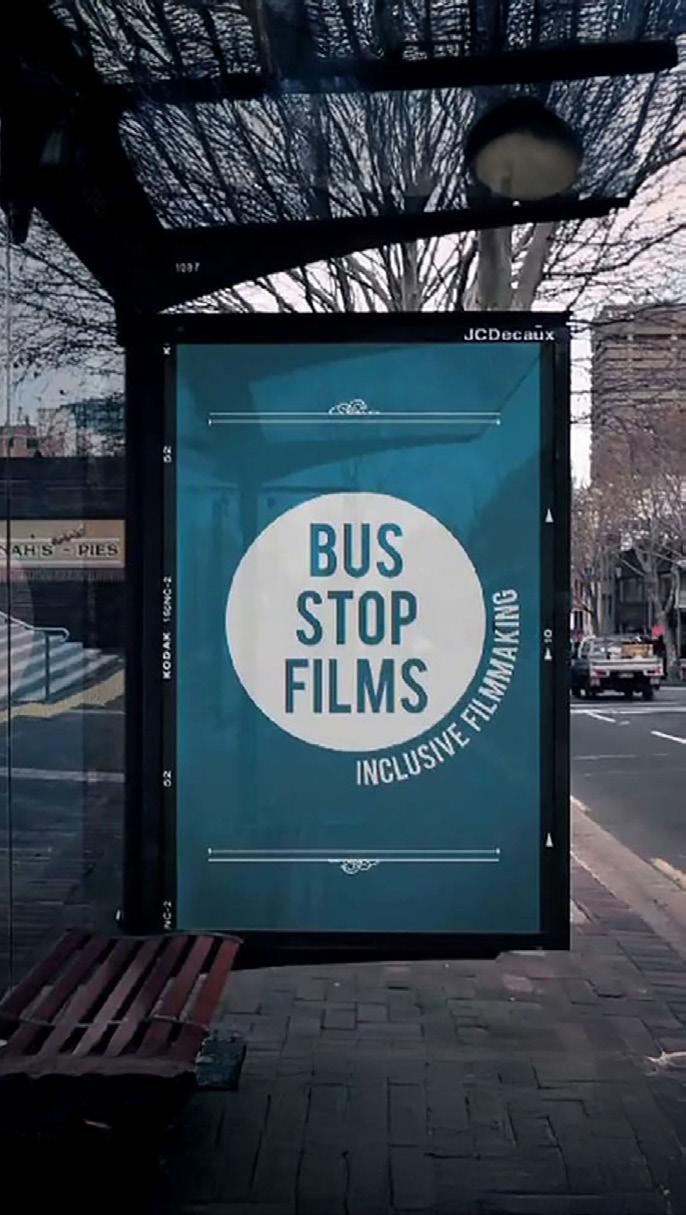
By Guillaume Papillon*
While it may seem quicker and cheaper to cut corners, shortcuts can be detrimental and harm a brand’s reputation in the process, regardless of the good intention behind them. There’s been documented examples of ‘Inspiration Porn’, a concept by the late Stella Young, that shows that advertisers tend to depict people with disability in a way that is not true to them. Each community and individual has unique stories and experiences that deserve to be represented authentically. This means investing time and resources to understand these nuances and avoid generalisations. It means moving beyond tokenism and embracing the complexity of real-life diversity.
And it’s not just about who is in front of the camera that’s important, but also who is making the decisions and shaping the narrative. It is crucial to
bring in diverse perspectives at all stages of the creative process, from initial brainstorming to final production. By having more people with disability behind the camera, we can ensure a broader range of stories are told and that these stories are told with greater authenticity. The great work Bus Stop Films is doing to increase representation of people with disability behind the scenes in Australia is worth a call out.
People need to be part of the conversation, not just the subject of it. By involving diverse communities in the creative process, the industry can move beyond superficial diversity and toward genuine inclusion.
The opportunity with social media lies in its ability to genuinely celebrate individual stories. When you engage with influencers who genuinely connect with your brand and you allow them the freedom and space to tell their story from their perspective and in their own words, that’s when the real magic can happen. This approach can cut through the traditional barriers of tokenism and offer a more authentic way for your customers to connect with your brand.
While there have been strides towards diversity in the advertising and marketing industry, there’s a risk of diversity becoming merely mainstream in an unproductive way. To ensure genuine and meaningful representation, the industry must move beyond box-ticking and embrace a deeper, more authentic approach. This requires engagement, authenticity, a shift in creative vision, leveraging social media, and ensuring diverse voices are part of the conversation. Only then can the industry truly achieve a rich and inclusive representation of people with disability, both in front of and behind the camera.
* Head of Marketing & Communications, Mable
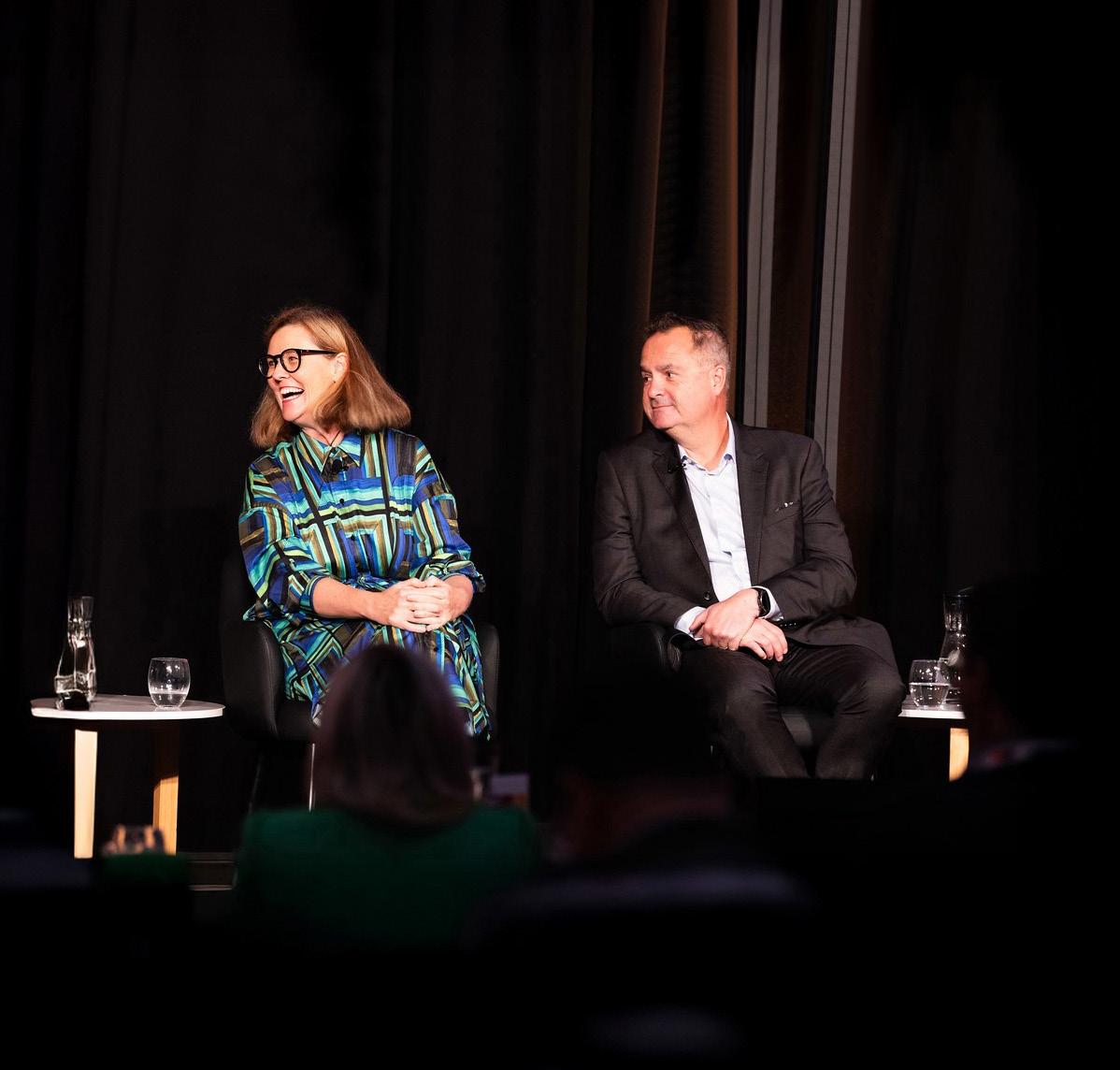
For the 400 guests at the Disability Confidence Awards it was a night of celebration, recognition and renewed purpose, for organisations and individuals whose commitment has created meaningful change towards fostering disability inclusion.
Speaking at the awards, Australian Disability Network CEO Deborah Homewood said: “tonight we are celebrating remarkable things and remarkable people – things 25 years ago no one thought was possible. We received a record number of entries this year, reaffirming that Australian organisations remain deeply dedicated to diversity and inclusion”.
The award for ‘Disability Inclusion Changemaker of the Year’ went to Erin Carey from The Achieve Foundation, who helped create employment for hundreds of people with disability. Erin
Carey died in December 2024 after a short illness.
“Erin believed that authentic could only be achieved by collaboration with people with disability and every program she developed was informed by lived experience,” Homewood said.
Australia Post was awarded Top Performer in AusDN’s Access & Inclusion Index, which evaluates organisations’ progress in accessibility and inclusion, marking the second time for the company, having previously won in 2023.
The conference that followed was an opportunity for around 500 delegates to come together to listen and learn on how to make Australian workplaces more inclusive.
Speaking in a panel discussion on disability inclusion in the workplace, lawyer and advocate Graeme Innes believes the barriers are still there: “When we have a person with disability is CEO of Westpac or CBA, or senior leaders of major organisations, that is when we start shifting the dial,” he said.
It was announced at the event that when the time comes the next CEO for the Australian Disability Network would be a person with a disability.
Westpac group business units, chief information officer Miranda Ratajski, said the banking group’s offerings must be accessible to everyone.
“Westpac has cards for people with vision impairment, noise cancelling headphones for neurodivergent people, and a quiet room which is available to everyone,” she said.
Taking the workplace inclusion session further was a panel discussion led by ABC reporter Nas Campanella.
According to Bunnings managing director Michael Schneider, with 55,00 employees the hardware behemoth wants to be as inclusive as possible, reflecting the whole community. He said what got the company started came from team leaders who began a conversation with people with different abilities and disabilities to find a way to participate more, “and it has been a rewarding journey so far, by not just listening to the team but our customers as well”.
Hanes Australasia president Tanya Deans said that some companies held unreasonably high expectations about being a disability-friendly framework organisation. “They think it equals costly, but in our experience, it is not costly or hard. It’s about starting small and taking meaningful steps that can make a difference. We also get very generous feedback from our customers when we don’t do things right!”
An Australian production, ‘My Eyes’, premiered at Event Cinemas Indooroopilly, Brisbane, with cast, disability and access advocates and members of the healthcare and vision communities in tow. The film was inspired by true events on the journey of a mother determined to save her daughter’s eyesight.
The Australian Disability Network held a special awards event at the Sydney International Convention Centre. The evening recognised people and organisations committed to diversity and inclusion in workplaces for employees and customers.
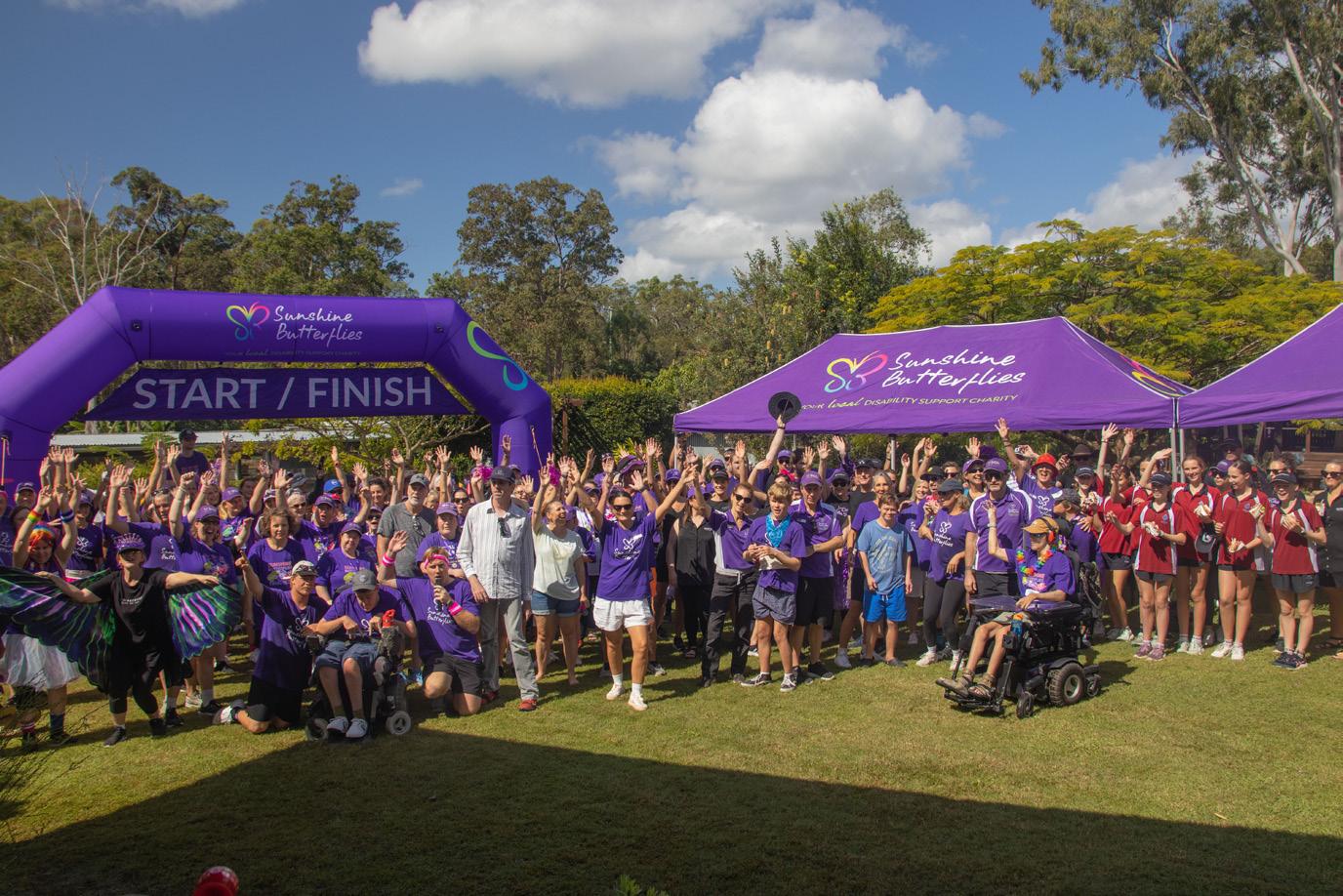
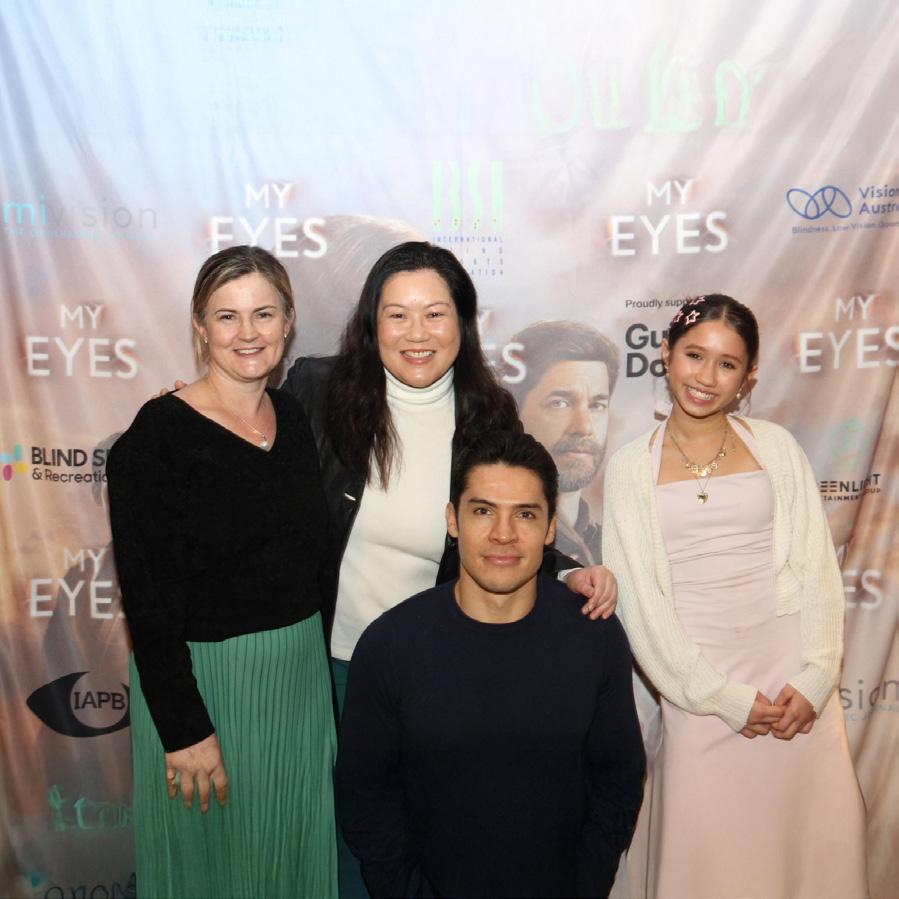
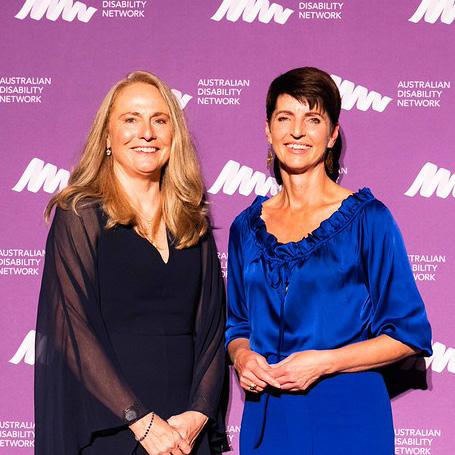
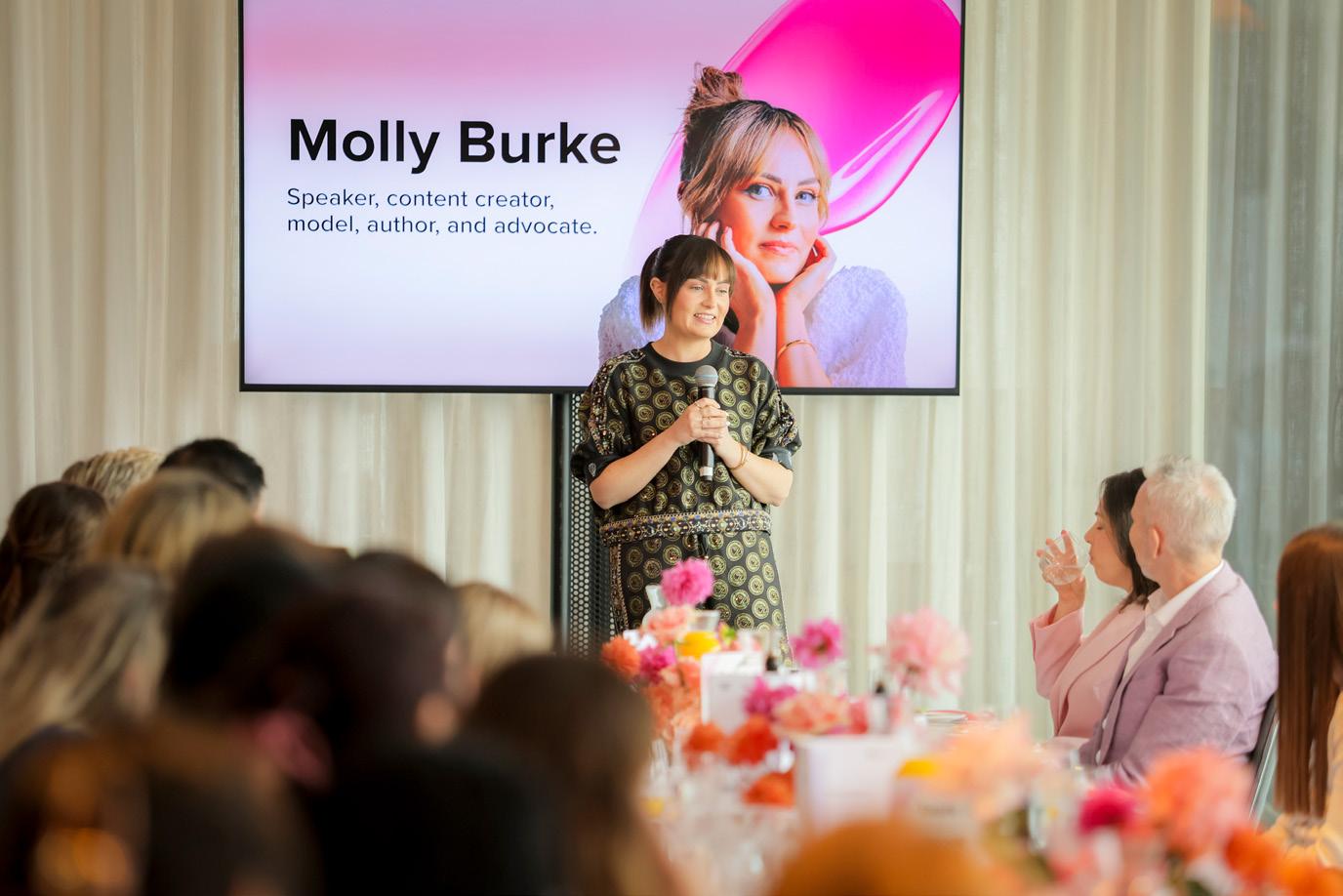
Sunshine Butterflies recently held its annual Triathlon at their 15-acre community facility, ‘Our Backyard’, in the Noosa countryside in Queensland. Participants took part in three inclusive events, a running race, a bike ride with wheelchairs, and a water-based relay.
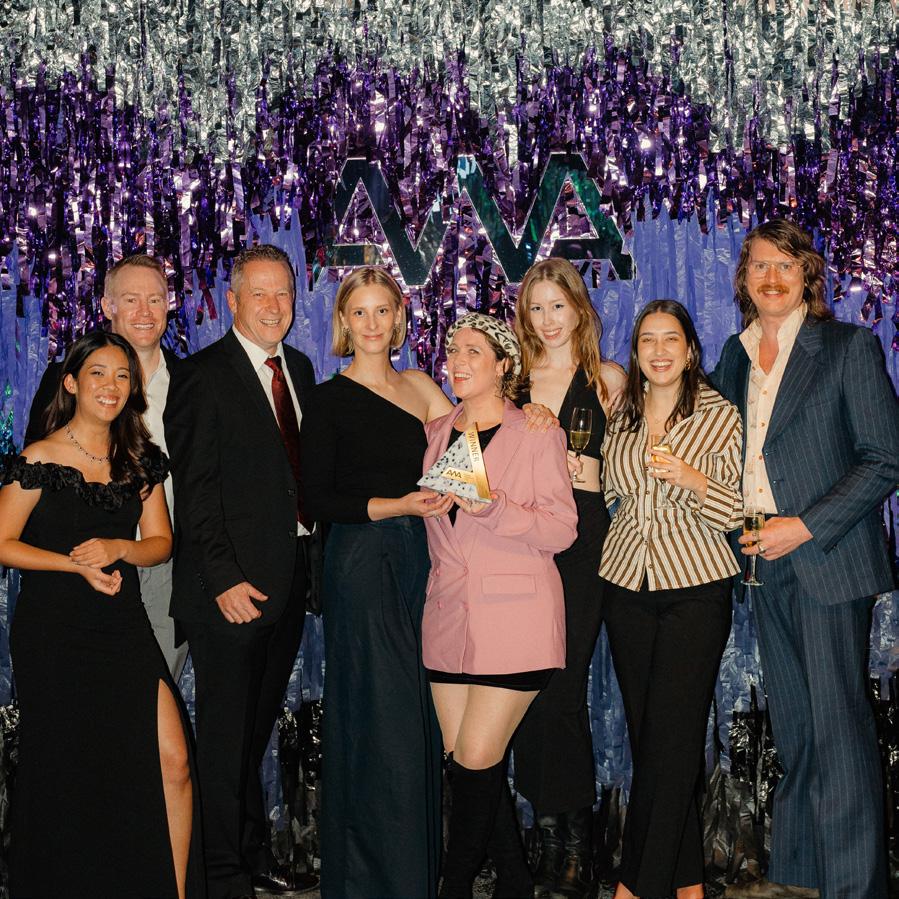
elbourne-based digital agency Sod has been recognised for its commitment to inclusive digital design, taking out the Best-in-Class Award for Accessibility at the 2025 Australian Web Awards.
New guidelines for inclusive product design were launched at the inaugural Boundless Beauty Summit that called on beauty brands to step up and design packaging that works for everyone.
Para and Ability Dance WA recently hosted the 2025 Perth Para Dance Sport Competition with Para Dance and Vision Impaired dance competitors and demonstrations from All Abilities.
Choi Moon Jung was awarded the Hillary Weeks Trophy, and All Abilities dancer
Anna Gray received the Sam Hall Trophy, in honour of two para dancers.
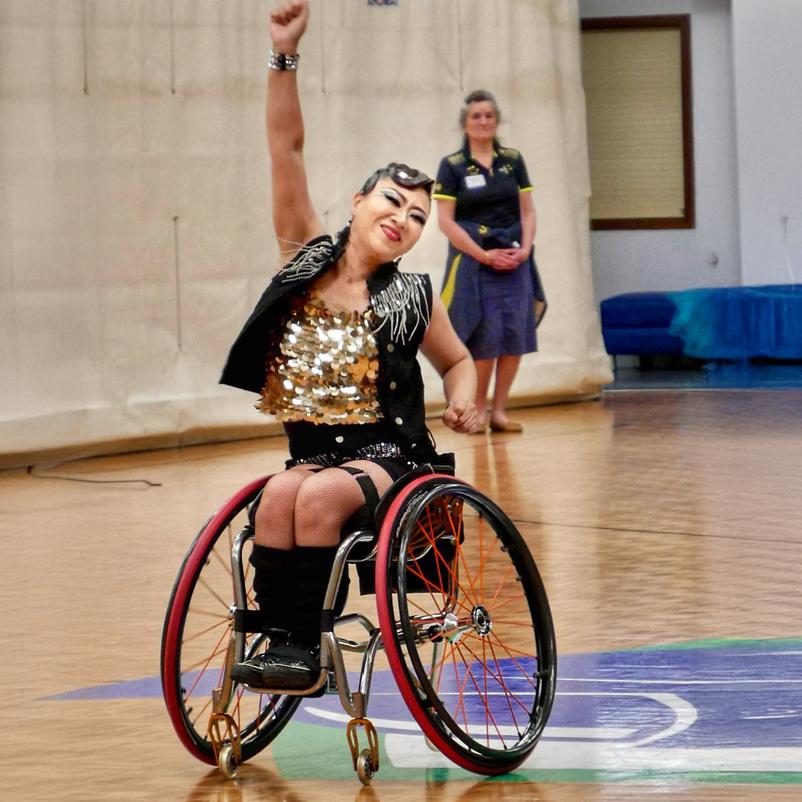
Melinah Viking was the winner of our recent book giveaway – The Intrepid Wheelies.
“Thank you so much for these books! They are definitely an inspiration for me to continue travelling and striving to maintain the best quality of life possible regardless of what life may bring.”
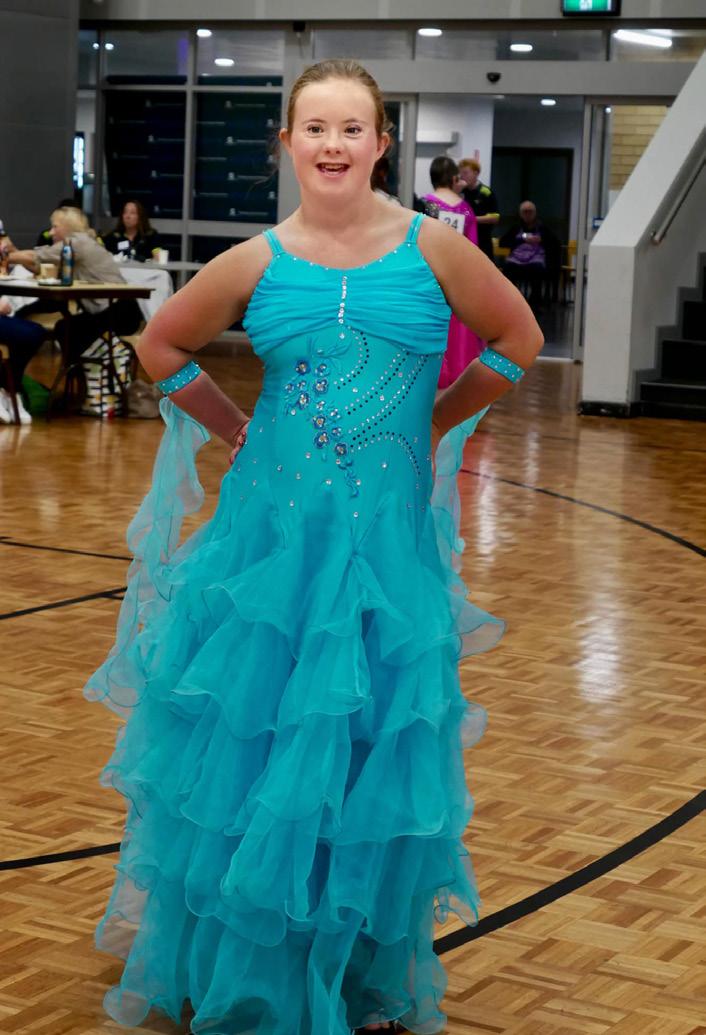
Chinchilla local Alyshia McKenna took centre stage at the 2025 Business disABILITY Awards of Australia, winning the Elissa Flanagan ‘Aim High’ Scholarship Award. The awards recognise businesses and individuals across Toowoomba and the Darling Downs, Queensland who support, educate and employ people living with disability.
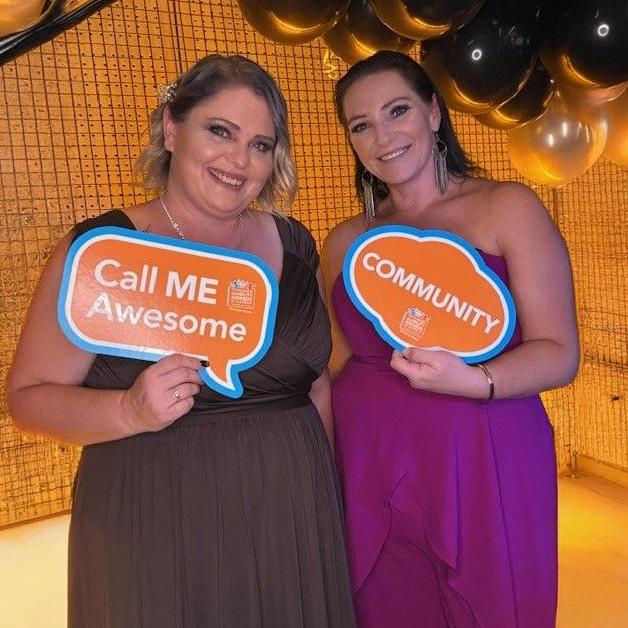
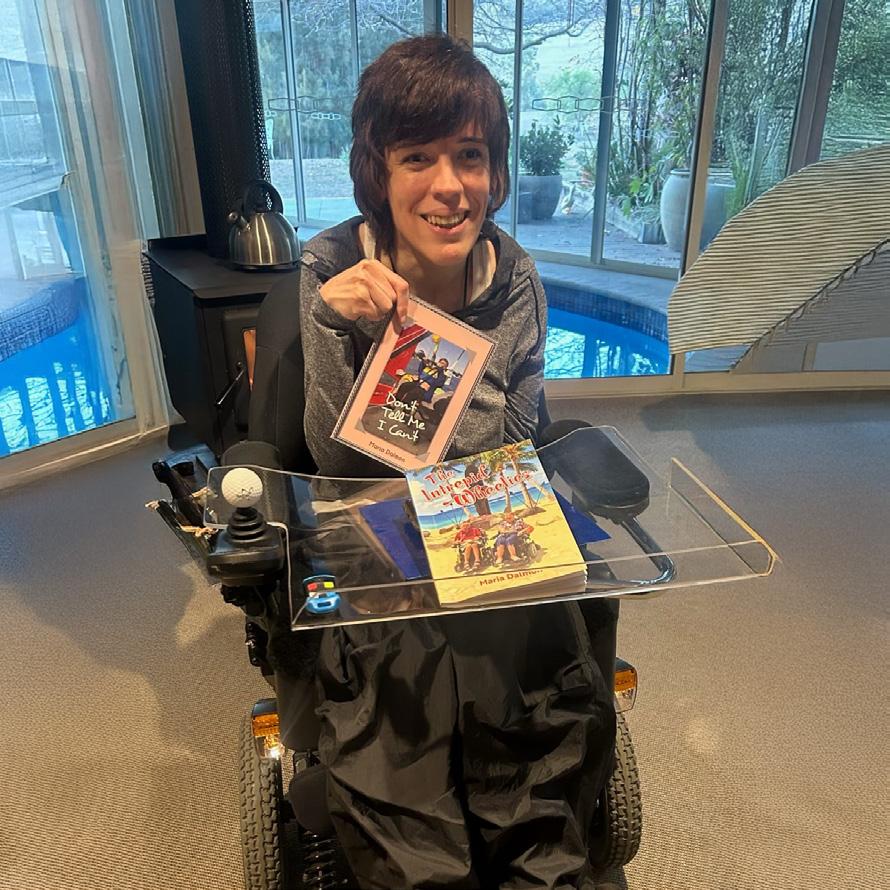
A collection of 300 works at the Art Gallery of NSW includes art forms from bark paintings, drawing, prints and sculpture in both wood and metal alongside video works and immersive digital installations. Yolnju power: the art of Yirrkala celebrates eight decades of art and culture from a small Aboriginal community in Arnhem Land. The exhibition runs until October 6.
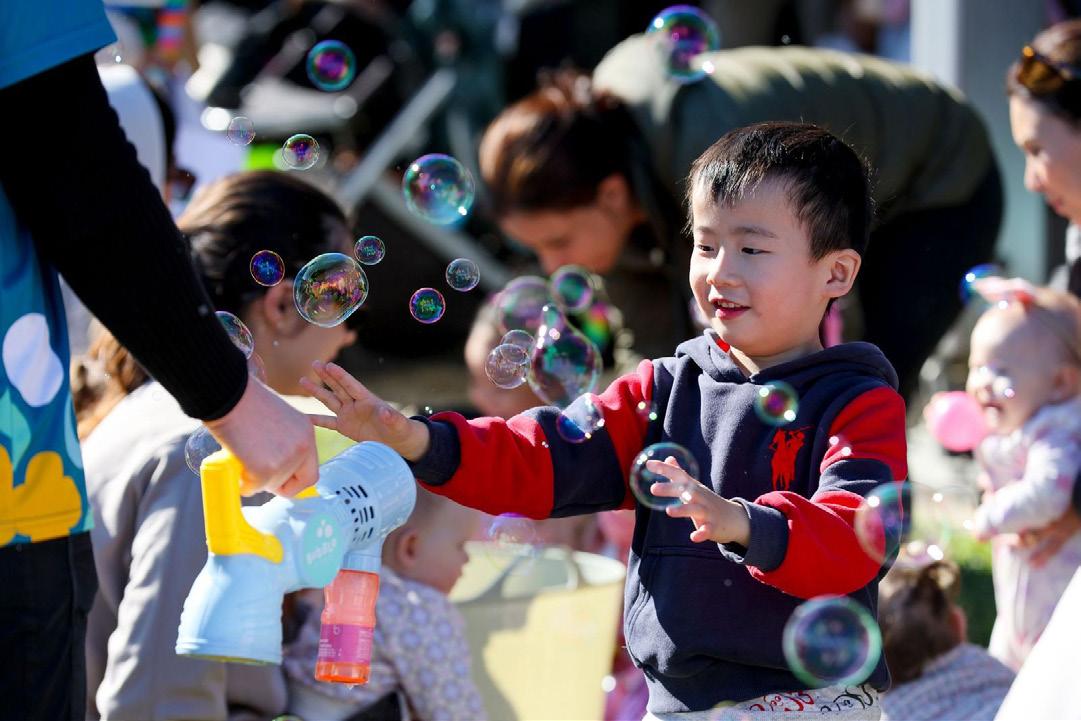
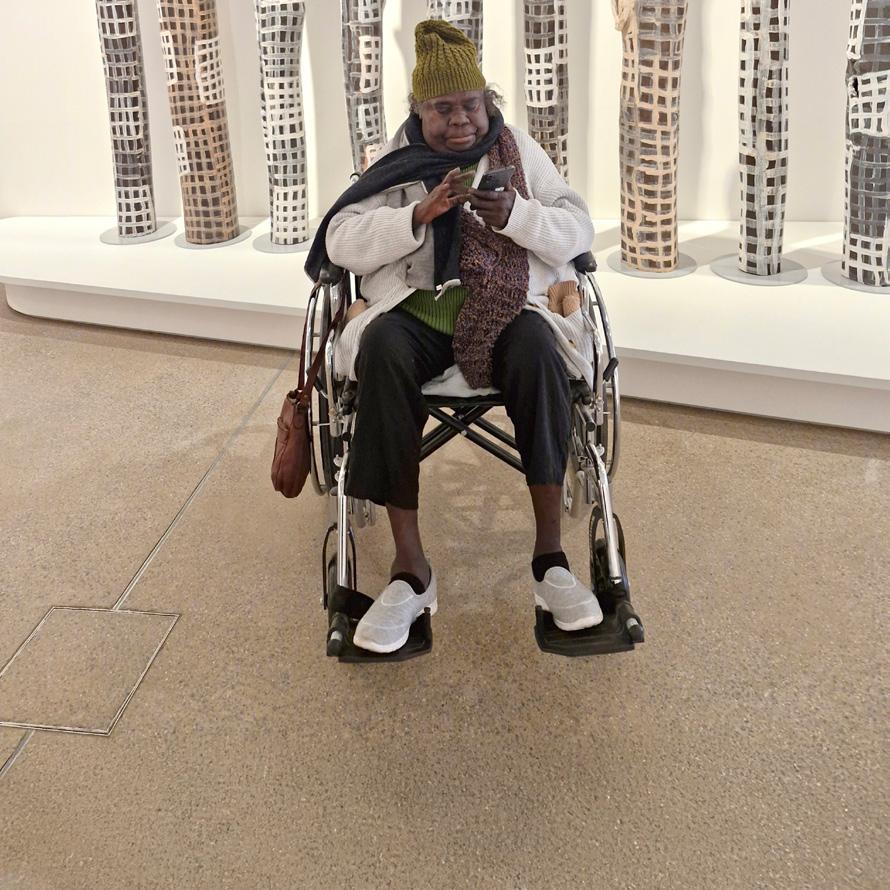
laygroup NSW launched its inaugural Big Day of Play, drawing thousands of families to Luna Park, Sydney to mark International Day of Play. It was a wonderland for children aged 0–5, with face painting, balloon twisting, sensory play zones and family-friendly rides.
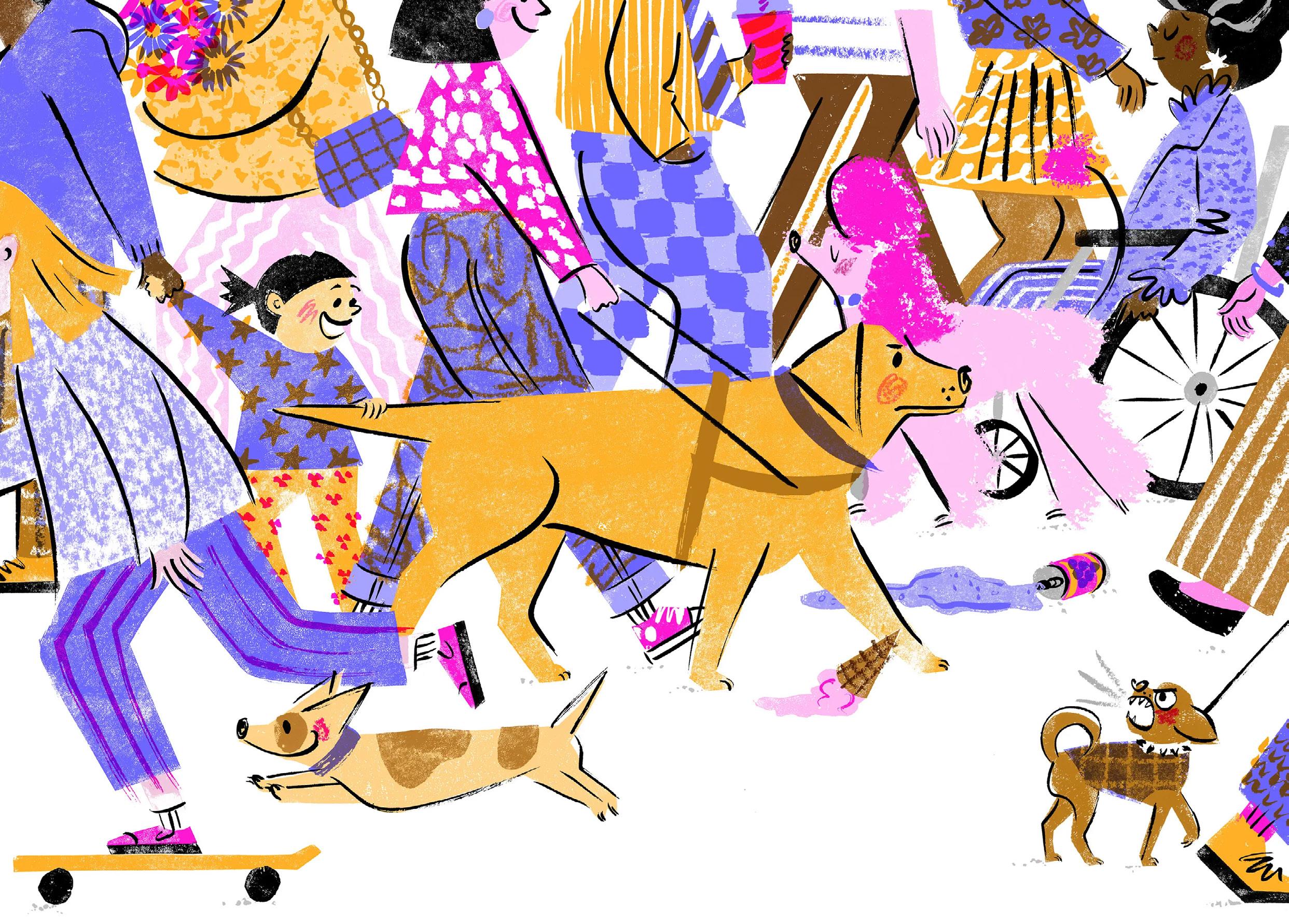
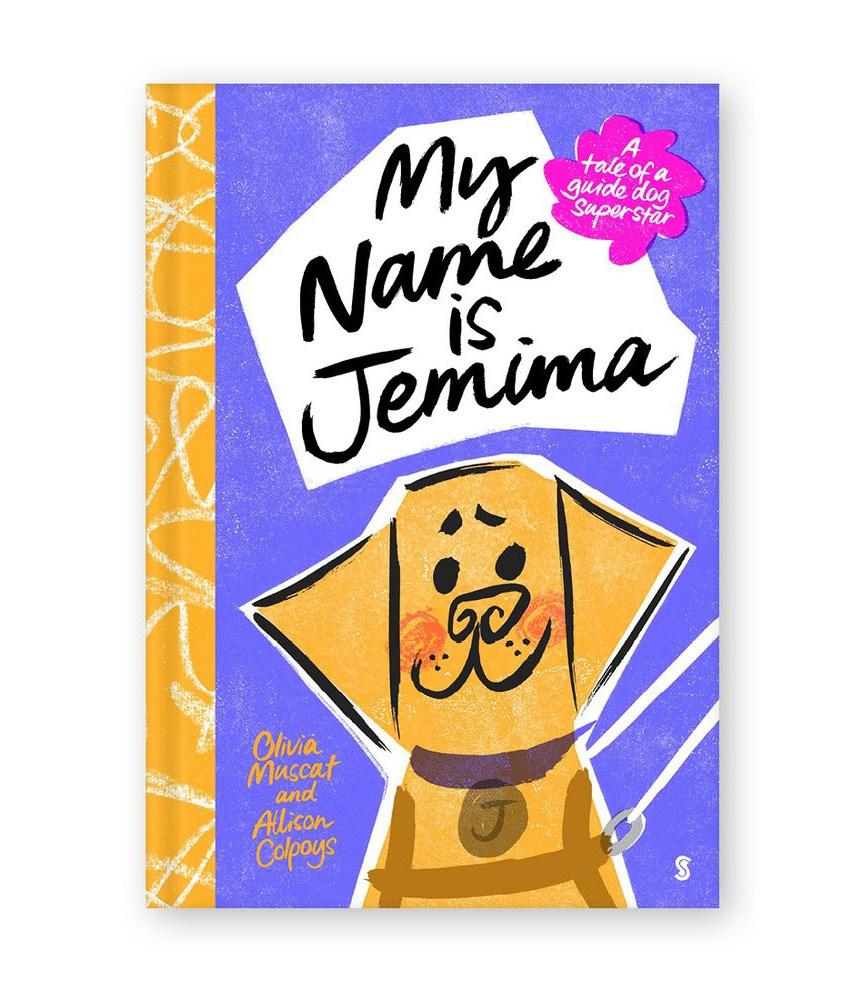
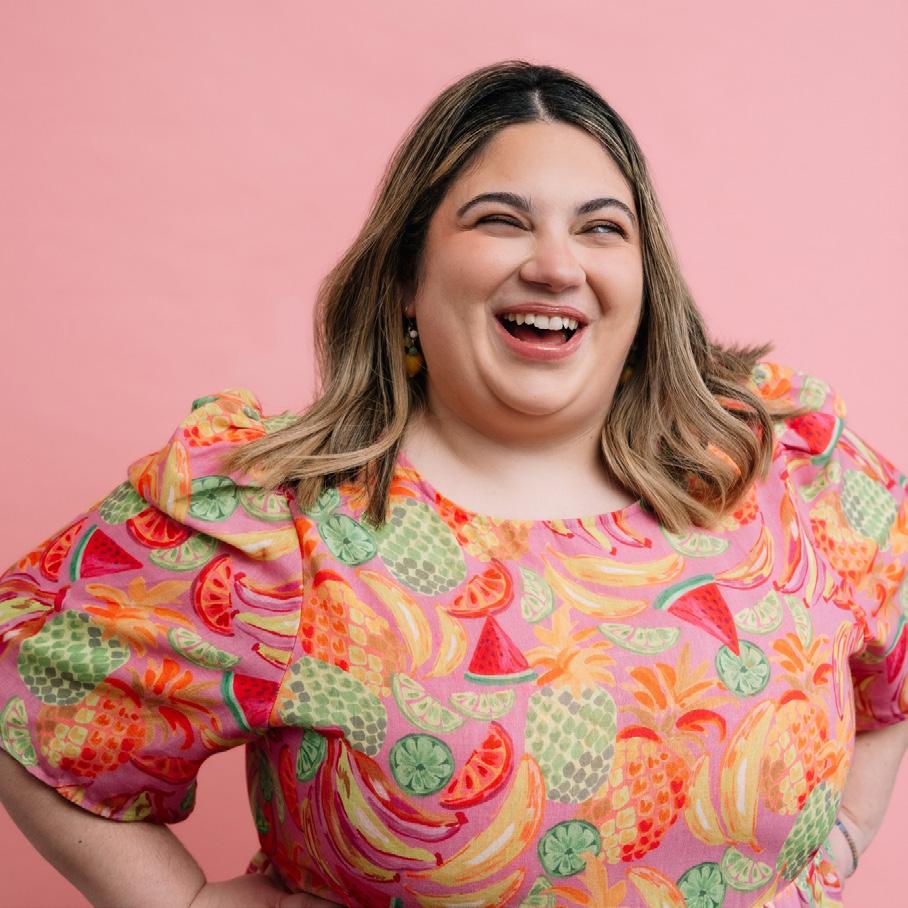
Meet Jemima, a Labrador with a very important job. Jemima is a fully trained guide dog who lives with blind disability activist Olivia Muscat, the author of this book.
The book draws on her experience and expertise about the special bond
between a guide dog and her handler, with vibrant illustrations by awardwinning illustrator Allison Colpoys.
The book also includes an audio version narrated by Muscat, making this tale of a guide dog super star accessible and engaging for all readers.
AUGUST 2025
2: Scuba Masked Ball thescubagym.com.au
7: Aged & Disability Expo – Adelaide disabilityexpo.com.au
8-9: Sydney Disability Expo (Impact Institute) sydneydisabilityexpo.com.au
8-9: WorkAbility Expo – Sydney workabilityexpo.com.au
13: Sunshine Butterflies Community Open Day sunshinebutterflies.com.au
9-17: National Science Week scienceweek.net.au/events
14-15: NDS Disability At Work Conference – Melbourne nds.org.au
15-16: Care Expo Melbourne careexpomelbourne.com.au
SEPTEMBER 2025
12-13: Canberra Disability Expo (Impact Institute) canberradisabilityexpo.com.au
12-13: WorkAbilty Expo – Canberra workabilityexpo.com.au
18-19: National Disability Summit nationaldisabilitysummit.com.au
28: Special Olympics DanceSport WA State Games padwa.org.au
My Name is Jemima – RRP: $24.99, hardback, available from selected bookstores, Big W and Amazon.
To enter the book giveaway send you name and contact details to: kymberly@intermedia.com.au by September 19, 2025.
